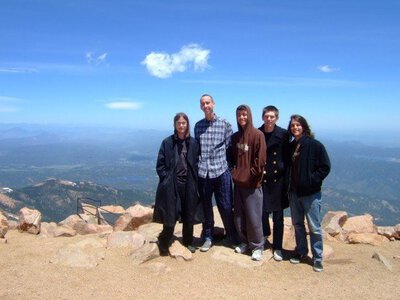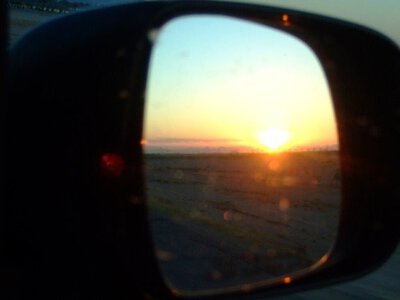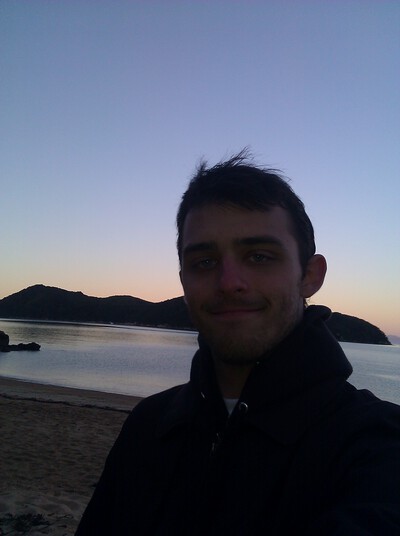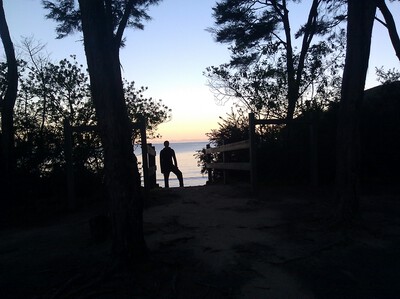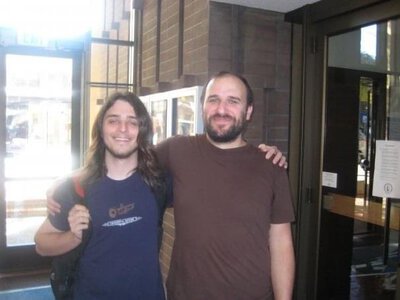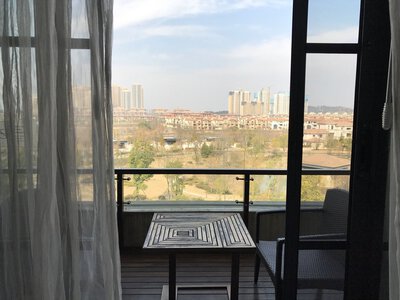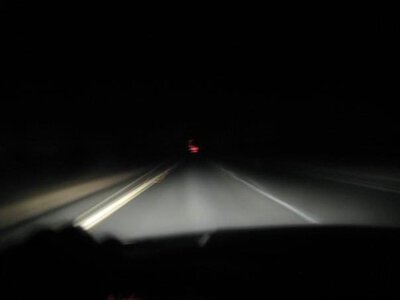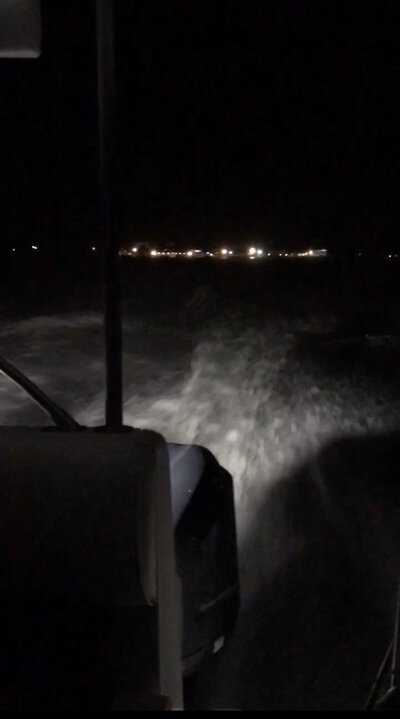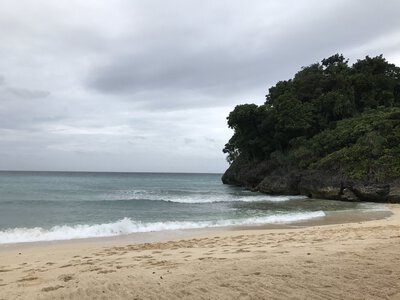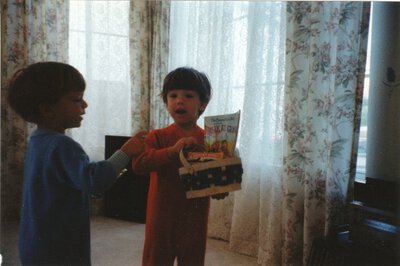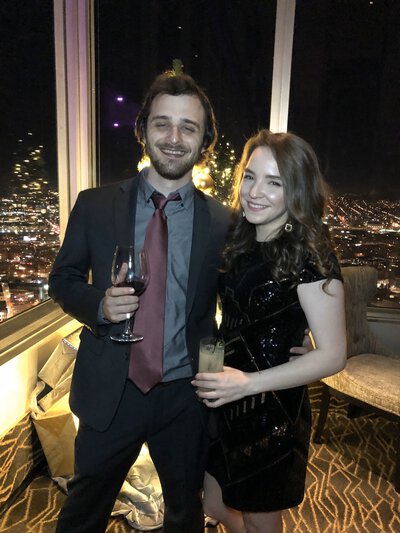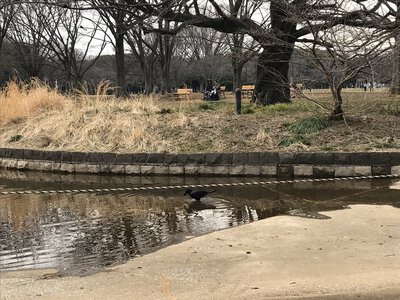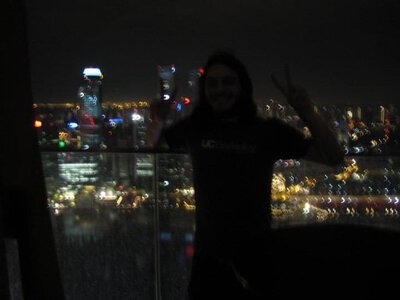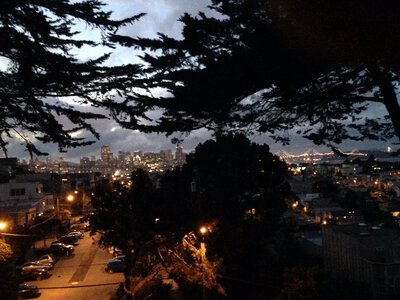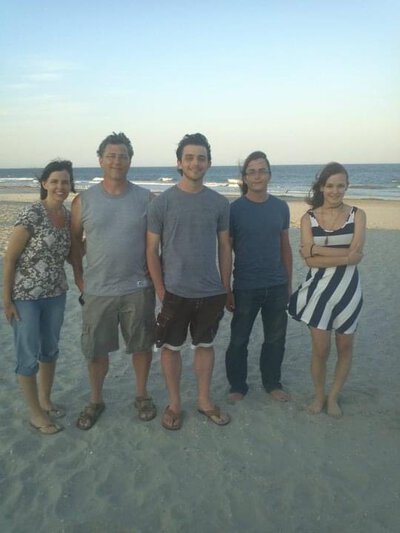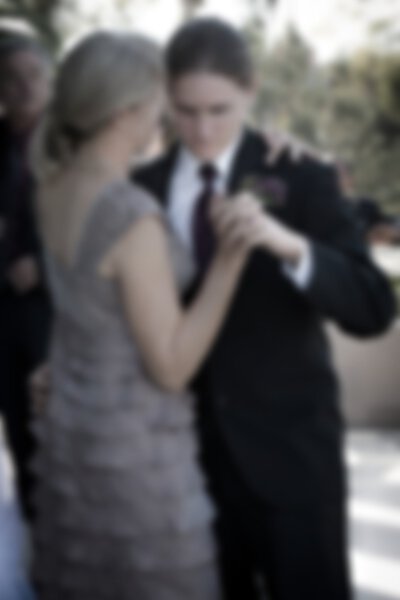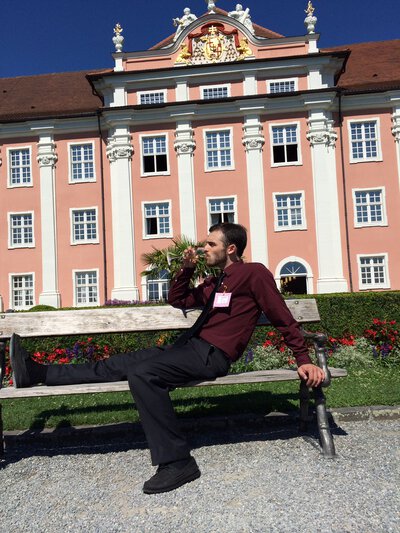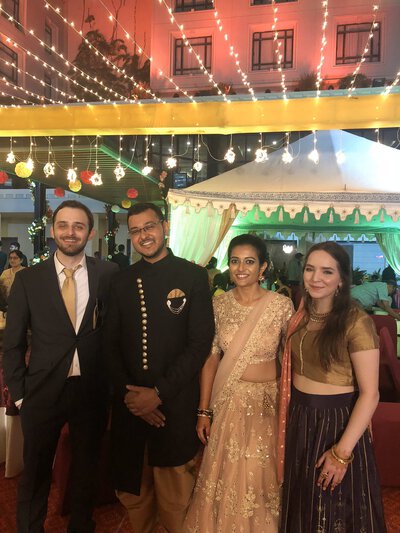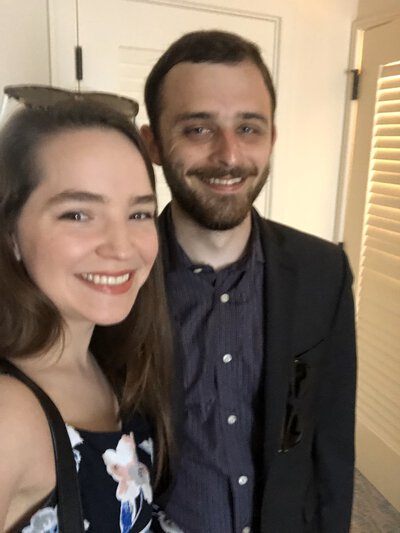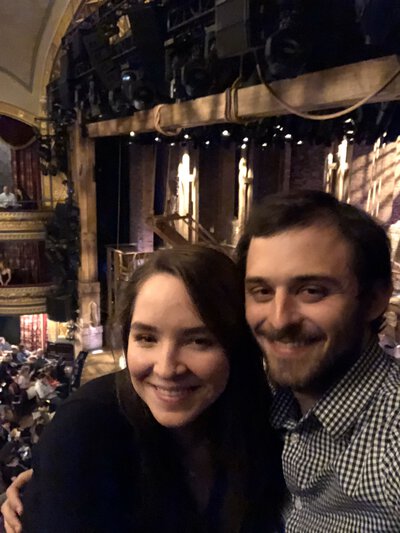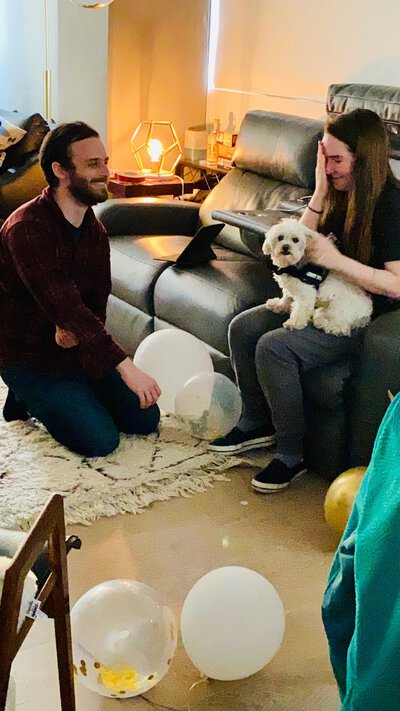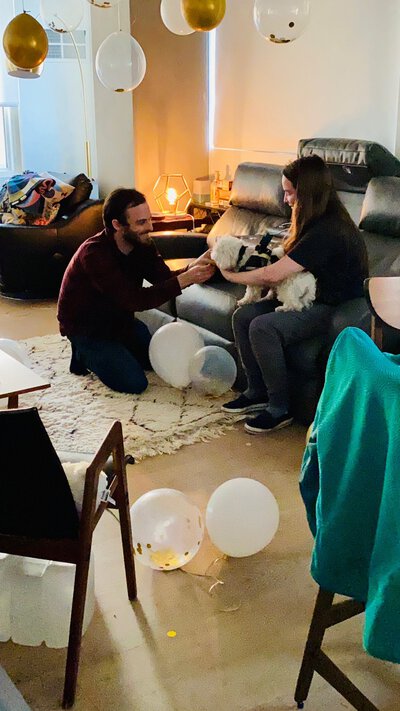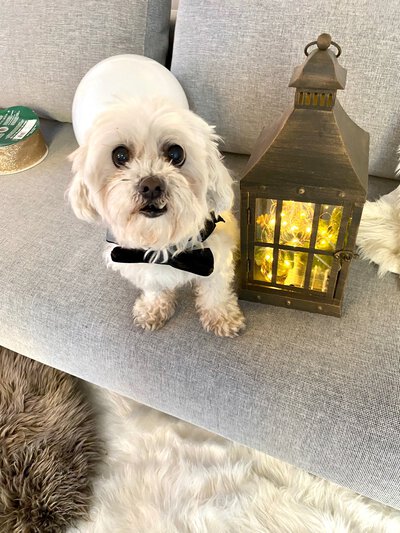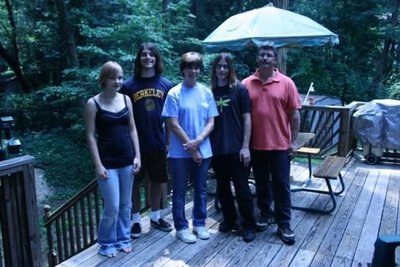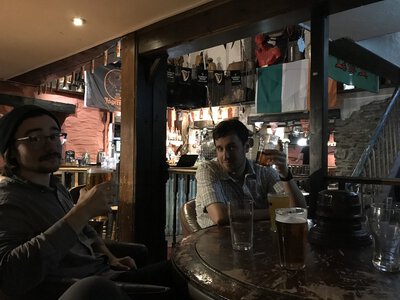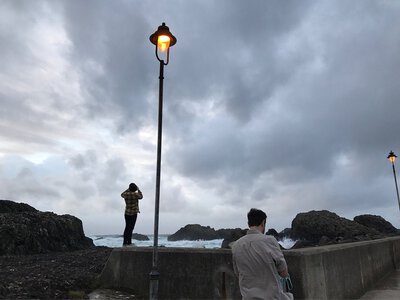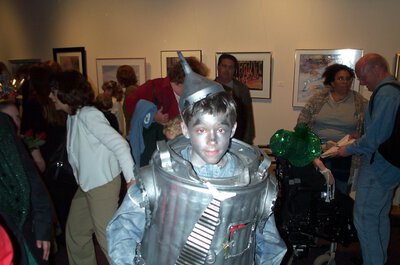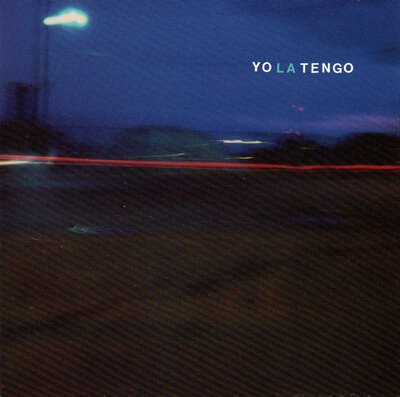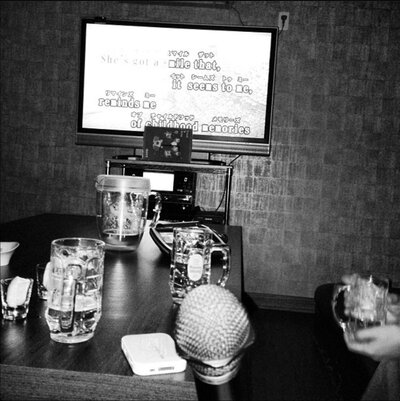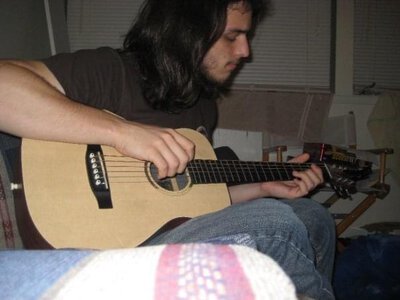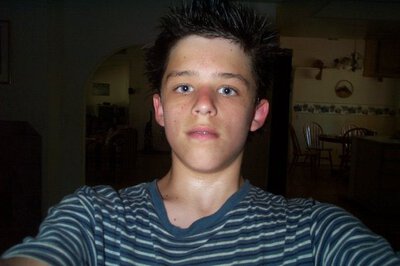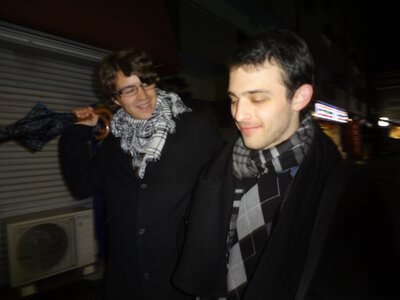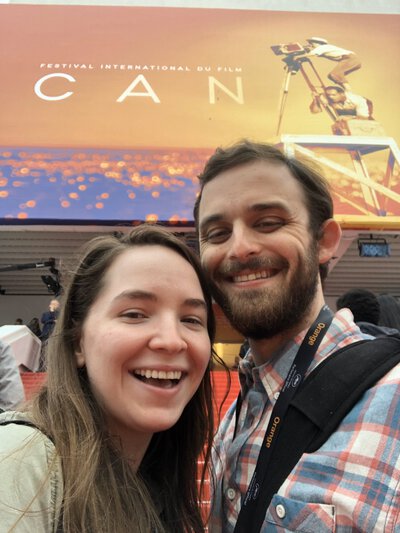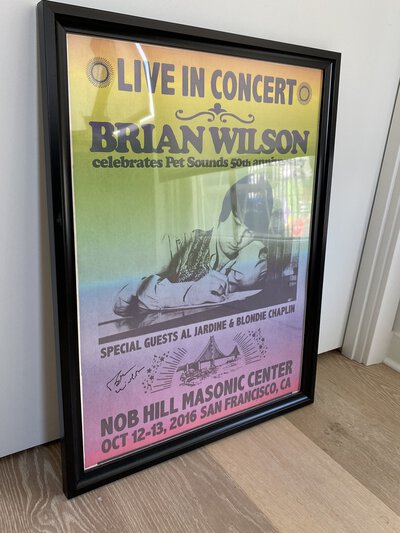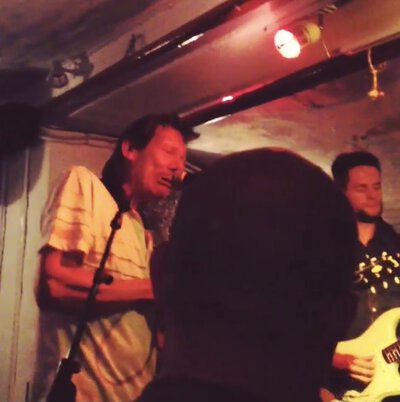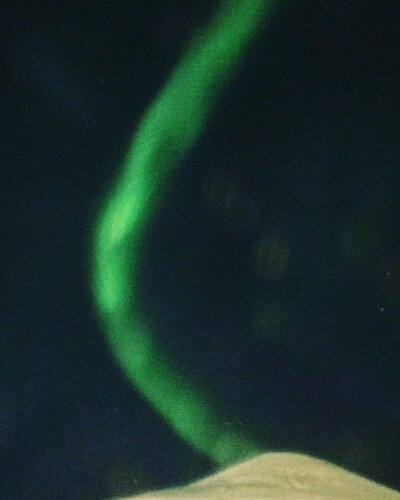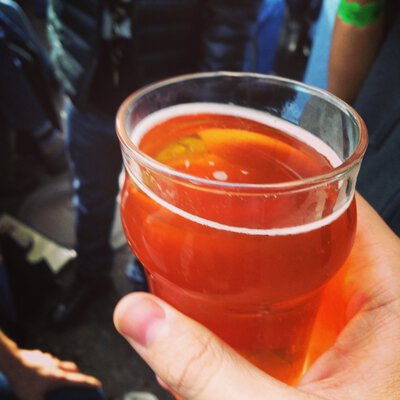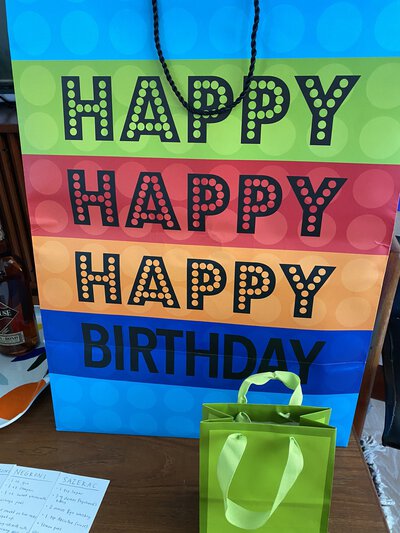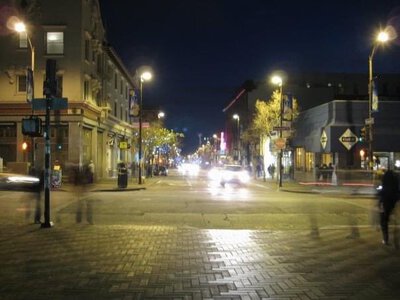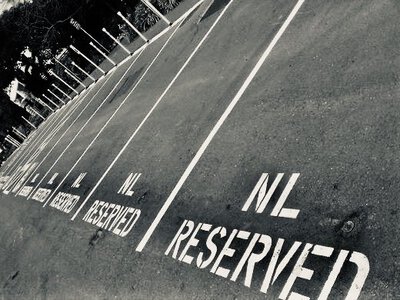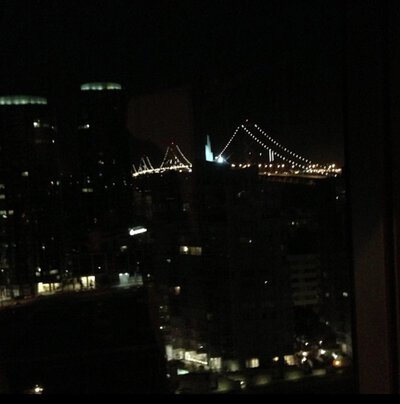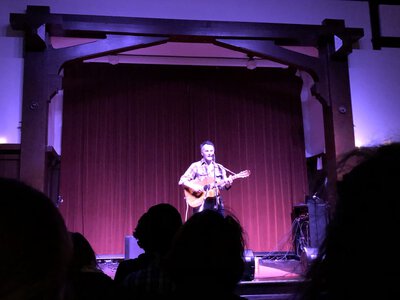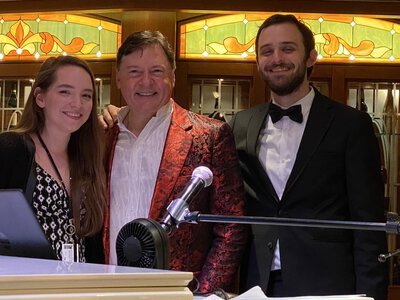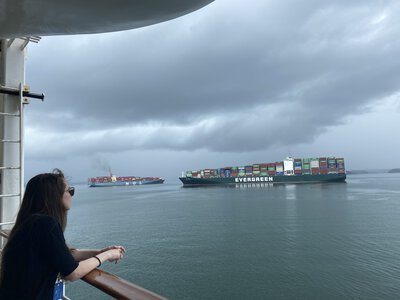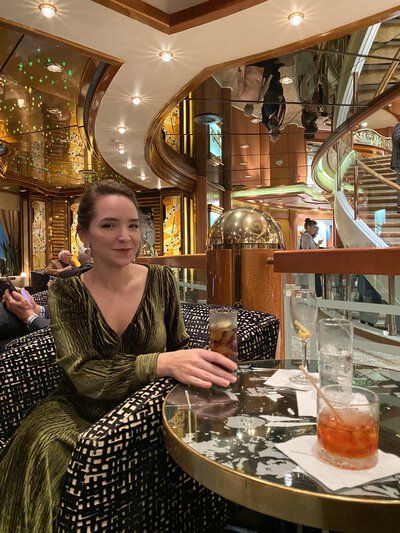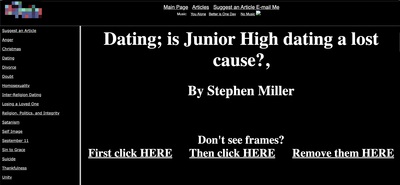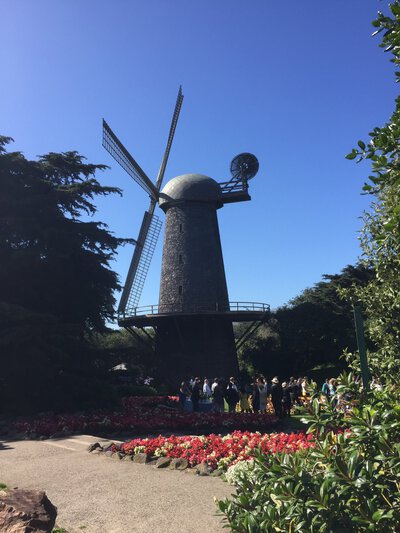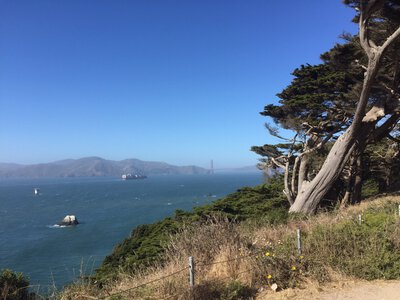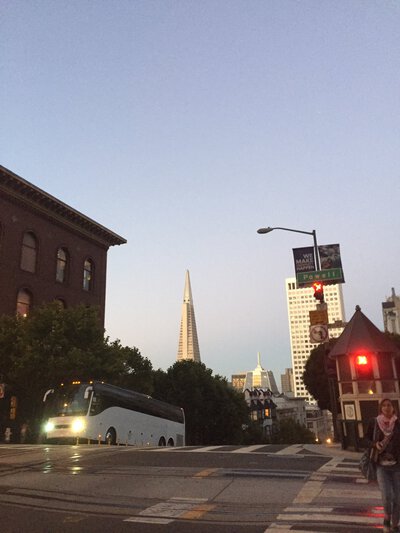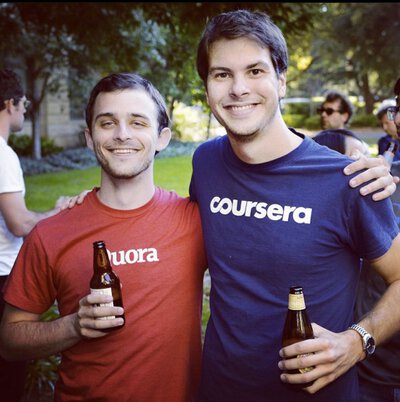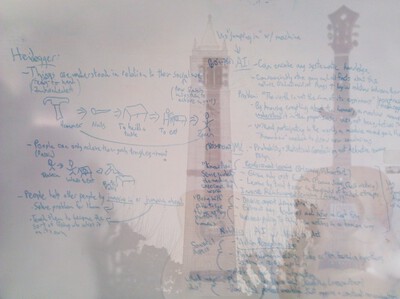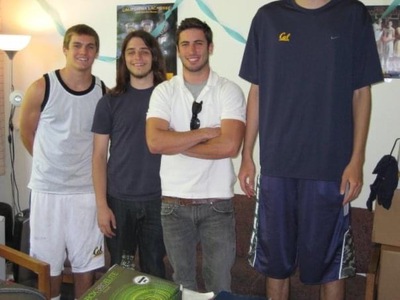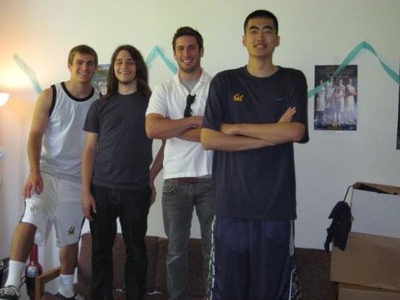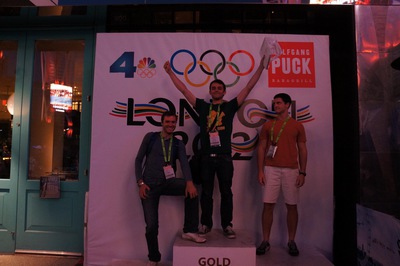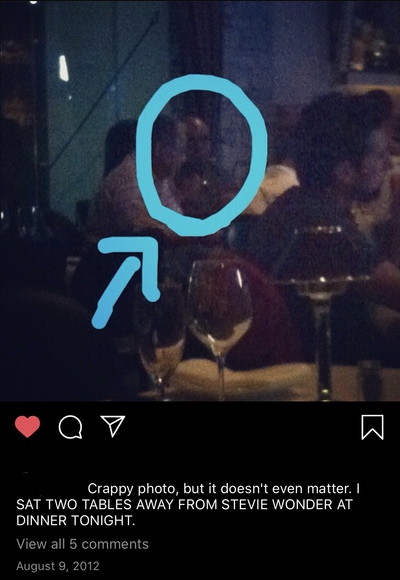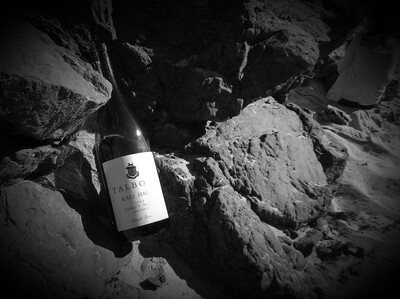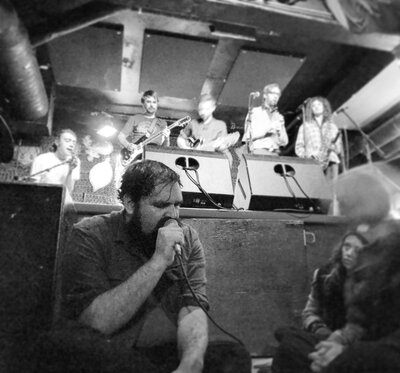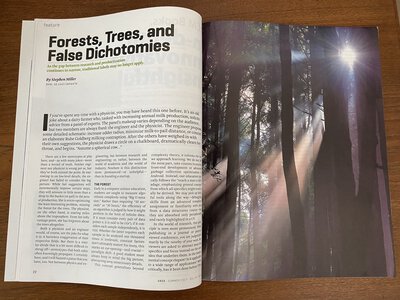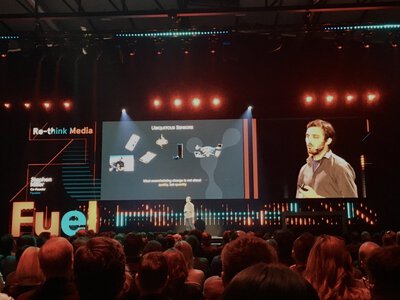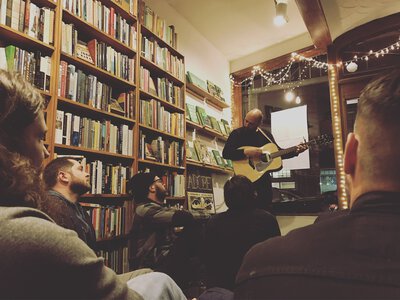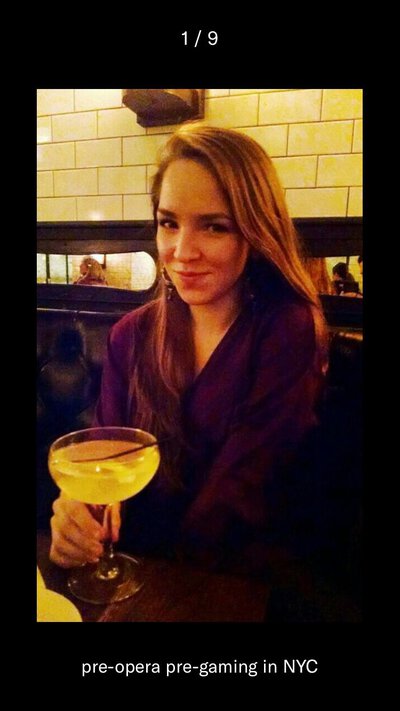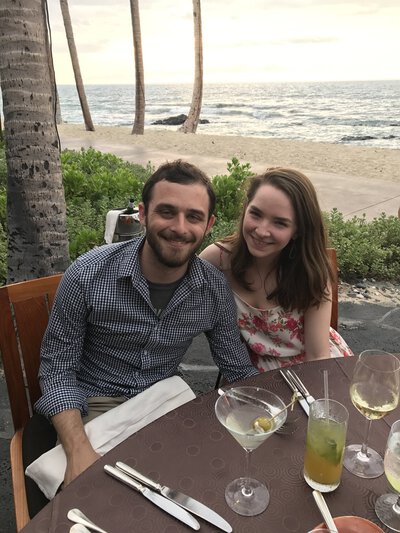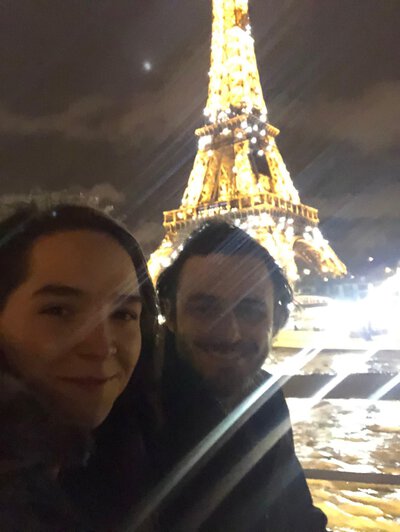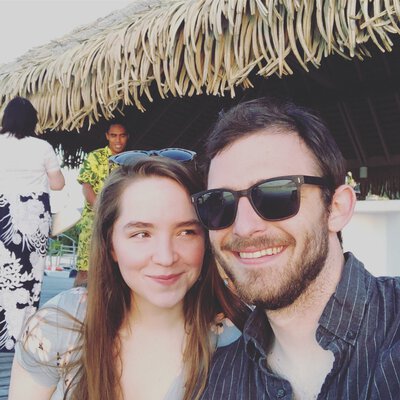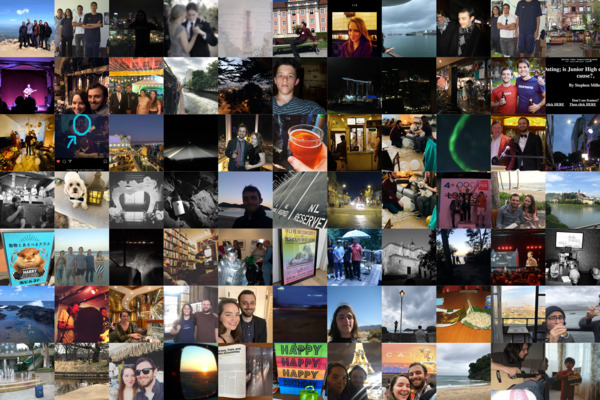
Note: In addition to being a music-inspired memoir, this is also meant to function as a literal playlist! You can listen along on Spotify, Apple Music, or YouTube.
What Is This, And How Am I Supposed To Read It?
For me, music is almost entirely about memory. The songs that stick are always entangled with certain times and places. Some are great, others embarrassing—all inform who I am. So on March 19 2020, towards the beginning of shelter-in-place, I decided to embark on a challenge via this Twitter thread. Every morning, 7 days a week, I would share a song and a piece of writing about a memory it recalled. It would go “until this thing ends.” I assumed that meant two or three weeks. I had no idea what I was signing up for.
Still, a commitment is a commitment. So for 100 consecutive days, I followed a very particular routine. I would wake up before 7am, no exceptions, and write. Sometimes I’d have a draft or two saved up from the previous evening, and the morning would be an opportunity to polish. Others, I’d wake up with absolutely nothing. Regardless, the conclusion was the same: By the start of the workday, I would have some song paired with some memory, condensed into 2-4 iPhone-sized notes screenshots, and hit “Post.” There was no ability to edit, and it shows. The longer the project went on, the more complicated these stories became, and the more difficult it became to keep writing. Every week or two I contemplated quitting, certain I had run out of ideas. Those weeks, in hindsight, produced some of my favorite pieces.
The result is rather difficult to pin down. Is it a playlist, a creative writing experiment, a short story collection, a 50,000 word memoir? I can’t say; I’m still too close to it. I do know that it covers every year of my life from age 10 and up. I also know that it is, by virtue of memory, prone to wild inaccuracies—the errata alone could fill another 20,000 words. I also feel (though, again, I’m too close to it) that it gets substantially better as it goes along: While there are early entries I’m immensely fond of, I feel it wasn’t until Day 60 or so that I really settled on the style. You can be the judge. What follows is a lightly edited reproduction of the original thread.
A note on reading. These are mostly meant to be taken as independent stories, and shouldn’t require any prior knowledge (about the music or myself). Much like a playlist, there’s a certain emotional ordering to it: Almost every entry is somehow connected to the one that precedes it. Sometimes the connection is musical: a muffled preacher tying Godspeed You! Black Emperor’s “Static” to Julien Baker’s “Go Home”, the ending whirl of Neutral Milk Hotel’s “Communist Daughter” becoming the opening guitar riff of Death Cab For Cutie’s “Blacking Out The Friction.” Sometimes it’s thematic: a series of wedding-related entries (Song 33–39), two Valentine’s Days multiple years apart (Song 64 to Song 65), a week devoted to overthinking / authenticity amid the protests of the murder of George Floyd (Song 72–80, more or less). Many choose to shuffle their playlists, and this should mostly hold up to that. However, there are some sections where chronology is quite important: Songs 13–14, 22–23, 28–29, 69–70, 96–98.
My humble opinion is that you should read them in order, with one exception: I think to get a bit of context, you may want to start with Song 100 (which functions more as a summary / epilogue) and then loop back to the beginning. Ideally you’d have the playlist on in the background and your finger on the “Skip” button…but that is, admittedly, a lot to ask of a stranger on the internet!
Speaking of context, there’s no easy way to transpose a Twitter thread (with its ramshackle immediacy / sense of iterative building) into a blog post. I’ve tried to find a solution that is more readable than a series of screenshots, but still captures the real-time aspect. You’ll see call-outs:
To indicate my introduction to, or additional thoughts on, a piece at the time of writing. You’ll also see images, videos, and misc links that were posted with the text on the day of writing.
Finally, since 100 entries are quite a bit for a browser to load in one go, I’ve split this into multiple pages, 20 entries per page. You’ll find this pagination widget at the bottom of every page; or you can hit “All” to view a collated version (this is my personal reading preference).
Thanks, and happy reading!
Tiny tech detail: Every song can be indexed with an anchor link of the form “#SongXXX”. Song 65, for instance, lives in the “#Song065” anchor of both Page 4 and of the collated page.)
Song #1: Lost Verses
Artist: Sun Kil Moon
Date: March 19, 2020
Listen
Permalink
In 2007, I moved from San Diego to attend college at Berkeley. For the next few years, there was always a background hum of loneliness — some sense of impermanence, that “home” was forever 500 miles south. I found myself romanticizing freeways. I loved the idea that one contiguous stretch of asphalt separated me from my family and friends; that on any given night, I could hop on that conveyor belt and be surrounded by morning. 5 or 10 weekends a year, I would make up an excuse to do just that: wait till 10pm on a Thursday or Friday night for traffic to die down, fill up a pair of disgustingly large 7-11 travel mugs, spend 7 or 8 solitary hours on I-5, get home just before sunrise. Sunday always came too soon, and at 10pm I’d follow the same ritual in reverse.
Music meant a lot to me on those all-night drives. It made it feel like a spiritual journey, a sacred ritual, with a self-seriousness only college could allow for. And no slot in my playlist was holier than this: It’s for the moment on the return trip, after some 4.5 hours of Nothing But Cows, when the 580 snakes down a hill and all the lights of the Bay come bursting into view. That slot was for the happysad, the melancholy, the you’re-lonely-now-but-that-loneliness-is-good. And it was almost exclusively reserved for “Lost Verses” by Sun Kil Moon.
I came up from under the ocean
Evaporated sea salt water
A mist above the skyline
I haunt the streets of San Francisco
Watch over loved ones and old friends
I see them through their living room windows
Shaken by fear and worries
I want them to know how I love them so
Song #2: Dead Man’s Will
Artist: Iron & Wine
Date: March 20, 2020
Listen
Permalink
It was fall of 2005, and I’d only recently gotten my driver’s license. The freedom felt amazing, and music was the perfect expression of it. First, because I could finally blare it. Second, because I could drive myself to a record store and (with my vast Dairy Queen riches) buy whatever album I wanted. I had a Sony CD player with a tape-deck adapter, a giant binder of CDs under the seat, and a smaller CD holder attached to my sun visor…for reasons I can’t even fathom, given the way San Diego sunshine & polycarbonate interact.
This is one of the earliest purchases I remember from those days: a collaboration between Iron & Wine and Calexico. I bought it the day it came out. This song, in particular, gutted me with its heart-on-sleeve simplicity. I remember driving to some secluded part of town that evening, cranking up the volume to some ungodly level, and setting it to repeat.
May my love reach you all
I’d lost it in myself and buried it too long.
Song #3: All My Friends
Artist: LCD Soundsystem
Date: March 21, 2020
Listen
Permalink
Scrolling through the 80 or so candidates I jotted down for this list, I realized the vast majority of memories I associate with songs take place at night. Not just night, but very late at night—the freeway just before sunrise, a 2am trudge home in Tokyo, an all-nighter in a coffee shop in Singapore Airport after abysmally failing at some grand romantic connection. I’ll get to those.
Today’s memory is about all-nighters. Namely, the all-nighters I would do at least 3 times a week in the robotics lab at UC Berkeley in my junior and senior years of undergrad. Chalk it up to poor time management or sheer ambition, but I loved all nighters. I loved the way time seemed to dilate: I could end classes at 4pm, finish homework, grab a bite, show up to the lab at 7pm, and know that I had 14 hours of solid work time available to me before real life would set in again. Hard-to-reproduce bug in the laundry folding code? Experiment needed to be rerun? A conference paper was due tomorrow and I still didn’t have any tables filled in? No problem! I had infinite time at my disposal. The fancy espresso machine I’d guilted various professors into buying for our floor didn’t hurt, either.
Sometimes, around 4am, I would step away from the computer, make a cappuccino, and sit on the 7th floor balcony overlooking the Bay. This is the song I would listen to on repeat.
And if the sun comes up, if the sun comes up, if the sun comes up
And I still don’t wanna stagger home
Then it’s the memory of our betters
That are keeping us on our feet
Song #4: Leave A Trace
Artist: CHVRCHES
Date: March 22, 2020
Listen
Permalink
It was September of 2016, and I’d found myself in London with a few coworkers (total coincidence, separate trips). It was Thursday night, and we all needed to be back in the San Francisco office by Monday. I was staring at maps and ferry routes, trying to square the circle on one obsession: I needed to get to Islay.
For the uninitiated, Islay is a tiny island off the west coast of Scotland. You may recognize it as the place Ron Swanson goes for his birthday on Parks and Rec. With its neighbor Jura, it’s known as the mecca of peaty whisky—"peat" being that distinctive smokey note you get when you dip into, e.g., an Ardbeg or Laphroaig or Lagavulin. All of those distilleries are centuries old, and all are on a single 2 mile stretch of road on the perimeter of Islay.
Coworkers were skeptical, but I hatched a plan. Three of us would fly to Aberdeen early on Friday morning. We’d rent a car and drive through Speyside and the Highlands, tasting along the way. One would get dropped off at Glasgow Airport on Saturday around 2pm for an early flight out, and the two remaining would continue westward to the port in Kennacraig, catching the last ferry of the day. We’d make it to Islay just in time for dinner, have a few good drams, pass out, and spend Sunday morning doing as many distillery tastings as possible before the 3pm ferry out. (I know that sounds crazy, and potentially reckless given the driving…but I’m telling you, there’s something in the air out there.)
Against all logic and reason, the plan worked flawlessly. I remember driving back to Glasgow that drizzly Sunday afternoon, rolling through idyllic little lakeside towns as we alternated stereo duty. This song by CHVRCHES is the one that sticks with me the most. The sun was setting in the most gloriously muted way, and I was filled with that preemptive nostalgia you get whenever you know a trip is coming to a close.
There is grey between the lines
Song #5: Good For Me
Artist: Amy Grant
Date: March 23, 2020
Listen
Permalink
By starting this list with a few Pitchfork-friendly tunes, it might seem like I’m trying to cultivate some image of myself as having been remotely cool or ahead of the curve. Let me assure you, I was not. Picture a bowl cut, a lisp, and a T shirt that goes almost to the knees. The face you just conjured was my own.
This memory comes courtesy of the first album I really sank my teeth into: “Heart In Motion” by Amy Grant. Age unknown, though to save face I’m going to guess I was about 6 (honestly might have been 10). My mom had recently gotten a new Sony Walkman, and wherever we found ourselves — grocery store, YMCA for swimming or Tae Kwon Do lessons, an assortment of beige office buildings about which I only cared enough to retain the word “Errand” — I would be glued to a pair of comically large Sennheisers, blasting Amy’s controversial crossover sensation.
Others may have gone with the wildly more popular “Baby, Baby,” or perhaps the end-credits-in-a-90’s-romcom-worthy “That’s What Love Is For.” But I was no chump. I knew a real banger when I heard one. “Good For Me” was, and continues to be, one such banger.
Song #6: On Our Way to Fall
Artist: Yo La Tengo
Date: March 24, 2020
Listen
Permalink
I’ve tried to limit myself to one song per artist in this list, but I’m gonna level with you: Unless this lockdown ends recklessly soon, Yo La Tengo is showing up more than once. They’re a band that I can’t seem to shake, lurking in the periphery for months or years at a time only to strike at precisely the right moment. “You know that particular mood you’re feeling? We’ve got an entire album dedicated to it.”
I discovered YLT in my Freshman year of undergrad. Like any musical discovery worth its salt, this one came on the heels of a breakup. It was a gloomy Sunday afternoon, and I’d just ended things with my highschool sweetheart. You know the story. You move away to college, learn a tiny bit about yourself, and realize you don’t have to be tethered to who you were at fifteen. Realize that maybe, just maybe, being vaguely content with a tinge of annoyance—making some teenage Archie Bunker face whenever teenage Edith speaks—isn’t the height of romantic possibility. You brush the thought aside, but it keeps creeping back, until eventually it all pours out in an extended argument about something wholly unrelated. A few tearful hours in the dorm parking lot, earnest promises to stay best friends (“just like Jerry and Elaine”), one last sight of her little red Honda, and you’re entirely on your own.
I didn’t want my new roommates to see me cry. So rather than head inside, I walked a few blocks to Amoeba Records, where I could aimlessly peruse the Used section while I gathered my thoughts. After a while, I noticed the music coming from the loudspeaker—hushed vocals, gently bobbing bass, tender and mournful and light all at once. It was a hopeful sort of melancholy I hadn’t experienced before, the sort where love sounds just a little bit sad and tragedy a little bit joyful. I asked the clerk what he was playing, and he handed me my first of many Yo La Tengo albums. I wore the metaphorical grooves out of this one that night.
So we’ll try and try, even if it lasts an hour
With all our might, we’ll try and make it ours
Because we’re on our way
We’re on our way to fall in love
Song #7: Woman (In Mirror)
Artist: La Dispute
Date: March 25, 2020
Listen
Permalink
So many great songs are about the beginning or end of a relationship, those times when everything feels so stark, so hugely consequential. Uncharted territories. An ongoing relationship, however wonderful, lacks that sense of hyperbole. So songs that deal with it often compensate by upping the stakes: I am the luckiest, the happiest, the most undeserving of the absolute perfection that is your beauty.
There’s a time and place for the cheesy stuff. But to me, love is rarely about superlatives or grand romantic arcs. It’s about a thousand quiet vulnerabilities, incidental intimacies; those conscious, continual decisions to open yourself and receive the other likewise, in (to crib from David Foster Wallace) “myriad petty, unsexy ways every day.” That everyday-ness is where “Woman (In Mirror)” resides.
This song has come in and out of my life, but the starkest memory I associate with it is from a couple years ago. My twin brother was getting married, and Joanna and I were down in San Diego for the wedding. We’d been dating a little over a year at this point, and we were staying in a tiny AirBnB. It was a retrofit pool house on one of those enormous properties that are surprisingly common in Southern California, and always euphemized as “upper middle class.” I had finished getting ready and was lounging around in a button-down and tie; Joanna was standing in front of a small circular mirror in a flower print dress, putting the final touches on her makeup.
In truth, I have no idea if I actually listened to this song while she did that, or if the two have simply intertwined over time.
There are moments here only yours and mine
Tiny dots on an endless timeline
Go on and on and on
All the motions of ordinary love
Song #8: Unwell
Artist: Matchbox Twenty
Date: March 26, 2020
Listen
Permalink
I don’t remember much about the first time I couldn’t breathe. I must have been 12 when I woke my mom up with the news. I don’t recall how it happened, but filling in the blanks from a lifetime of experience, I’m certain it was terrifying. Breathing is a bit like juggling: When you’re lost in the flow of it, it’s damn near effortless. Tweak a parameter just a smidge, though, or fixate on any constituent part, and that delicate equilibrium topples. Seems impossible from the start.
To this day, it’s scary when an asthma attack hits…if it even does hit, that is. The condition is so intermingled with the fear of the condition, I can’t truthfully tell you where one ends and the other begins: shortness of breath begets anxiety begets shortness of breath. At best it’s a darkly funny cycle; at worst it can be debilitating. It’s taken decades of medication (daily inhaler, albuterol for emergencies), lifestyle changes (cardio, intermittent therapy), and placebos (a constant supply of honey lemon Halls) to tilt the latter into the former—to truncate those 2-4 weekly asthmapanicwhoknows attacks into mild annoyances that are dead on arrival. Even still, some nights are worse than others, and the spectre of an acute respiratory pandemic hasn’t exactly helped. So I can only imagine how scary it felt that first time, back when it was all so new, so uncertain. That sudden loss of invincibility.
What I do remember, all too vividly, is the Urgent Care waiting room. It was a dramatic arc I would repeat at least a half dozen times: the rising tension of a sprint to the hospital culminating in bored, anticlimactic triage. Your vitals are fine; you aren’t wheezing too badly; sit down, kid, we’ll get to you when you can. There would be treatment (15 minutes with a nebulizer, a rote prescription for prednisone) but first came a solid 90 minutes of nothing.
It’s a strange thing to be simultaneously terrified and embarrassed, your id fighting for survival while your ego smiles apologetically. The longer I waited in that sterile, tiled Purgatory, the more it dawned on me that I was going to be fine. No one survives 90 minutes of “not breathing.” But it wasn’t a relief to be fine; it was a burden. Fine meant I’d wasted everyone’s time, made me the boy who cried “respiratory failure.” A flatlining medical device or sudden loss of consciousness might have given a doctor something to go on. Absent any drama, I could only feel crazy.
A TV hung in the corner of the waiting room, blaring what I assume was VH1. Would you believe me if I told you that, just as my fear-shame spiral was reaching its nadir, I heard Matchbox Twenty’s early-aughts anthem for the very first time? Truth be told, I’m not sure I’d believe me either. Sometimes memory, like shortness of breath, can be conjured from scratch. But it’s real to me now, and is there really any difference?
I’m not crazy, I’m just a little unwell
I know right now you can’t tell
but stay a while and maybe then you’ll see
A different side of me
Song #9: Winter Winds
Artist: Mumford & Sons
Date: March 27, 2020
Listen
Permalink
Continuing the trend of Things That Scare Me: I am mortified of public speaking. People are often surprised by this, because A) I do it all the time, and B) my primary crutch is to cultivate an easygoing demeanor. Don’t buy the facade. If you ever see me on stage, know that I am genuinely terrified of you. That terror never goes away, you just learn to mute it. Years of false alarms, paired with no shortage of coping mechanisms, have taught me to quarantine my panic, put the fight-or-flight instinct in a box.
In May of 2011, I had no boxes. I had spent all four years at Berkeley running from the monster. I only took classes which didn’t have a participation score; I did 80% of the work in any group project so the rest of my team would present to “make it fair;” on multiple occasions, I dropped a course solely because the word “presentation” appeared on the syllabus. Yet here I was in the final week of my senior year, pulling an all-nighter to re-re-re-rehearse the first public speech I would give since highschool graduation—not for a small class project or a buddy’s wedding, but for an audience of some hundred academics at an international robotics conference in Shanghai.
The breakfast buffet in the 54th floor lobby was in full swing, and I couldn’t dilate time any longer. It was about 7:45; my session started at 8:30. It’s not an exaggeration to say that my entire body was shaking, from nerves and lack of sleep and empty-stomach coffee. But I had to get moving. In less than one hour, I would be on stage. The notion wasn’t just scary, it was literally unimaginable: There in that windowed lobby I couldn’t string 5 words together without quivering. How would I make it through a single slide, much less 40? I imagined breaking down at that podium on the other side of the world, as all the top professors who’d seen “promise” in my application a few months prior suddenly recognized the fraud I’d always been.
It was hot on that walk to the convention center, and overexposed in a way that made the whole scene feel surreal—the city’s signature haze compounded with my anxious, swirling fog. As I levitated through the bustling city, pulled toward my inexorable death, I fumbled for the only thing I could control: the soundtrack. I don’t know why this song is the one I chose. Was it the motivational swell of the horns and banjo? The battle between two parts of oneself? The singalong vocals as a mini- support group? All I know is I had it on repeat all day: walking through the city, entering That Room, leaving hours later in a triumphant, slack-jawed daze.
Song #10: Chicago Seemed Tired Last Night
Artist: The Hold Steady
Date: March 28, 2020
Listen
Permalink
This entry isn’t meant to funny per se, but neither is it meant to be a cautionary tale. It just is what it is: the story of my first blackout. Or, for you glass-half-full types, the story of my second-to-last blackout. (The last would come a year and a half later, involving a chipped phone, an empty wallet, and a surprise bill for an extended international call placed from Tokyo to San Diego. We’ll get there.)
The setting is St. Paul, Minnesota, May 2012. Same conference as yesterday’s entry, one year later. This time around, I wasn’t on the hook for a single presentation: My only directive was to learn and connect—"connect" being the euphemism professionals use to make drinking sound productive. I was in my early twenties and productivity was booming.
I don’t miss too much about academia, but I do miss the Conference Buddy phenomenon. The Conference Buddy is a hybrid between Old Friend and Acquaintance, someone you’ve spent time with on 3 or 4 continents who you would never so much as text back home. These particular Conference Buddies had closed out a bar with me. We compared notes on our schedules the following morning, said our goodbyes, and dispersed. I walked back alone, keeping the blurry Crowne Plaza logo continuously in sight, and I was nearly there when—well, I have no idea what happened next.
When I came to, I was a dozen blocks east and I was mid-conversation, hurriedly walking with Michael. Michael was an affable guy, maybe 35 or 40, who was guiding me to the nearest 24-hour ATM. He really appreciated my generosity: He’d lost his house after the disability checks stopped coming through, and my offer to buy him a hotel room was exceedingly kind. Yeah, no, we’re almost to the 7-11, anyway what was he saying? Robots. They sound so cool; he used to work in construction himself, and can only imagine how robots will change that.
If this sounds like it’s heading for disaster, don’t worry. Nothing happened. I pretended to know what the hell we were talking about; we made it to the 7-11 and Michael waited outside; I took out $120 (a small fortune in grad student currency) and handed it to him; we hugged and he pointed me back in the direction of the Plaza. I walked back alone, probably 3:30am at this point, trying to piece together what exactly had happened. I put in my headphones to temper the confusion, playing the band I’d been repeating the whole trip—The Hold Steady, because it was the Twin Cities and I am obvious. The streets were flooded with a dim, orange light, and it all felt perversely spiritual in a way I can’t explain. Like recklessness and guilt and excitement and love.
We gather our gospels from gossip and bar talk
And then we declare them the truth
We salvage our sermons from message boards and scene reports
And we sic them on the youth
Song #11: I Found A Reason
Artist: Cat Power (a cover of The Velvet Underground)
Date: March 29, 2020
Listen
Permalink
It was summer of 2007 and our road trip was coming to a close. Over the last two weeks we’d driven thousands of miles. Our first stop had been Vegas to link up with the girls' trip. Then, armed with printed MapQuest routes and $15 per diems, we five teenage nomads pressed on. It was a straight shot through Utah to Boulder, CO, followed by a camping stay in Garden of the Gods. Detour up Pike’s Peak and on to Santa Fe, feat. what many agreed was the best pizza of our lives. Hours wasted in Albuquerque in search of a record store; an evening in Flagstaff perusing used books; a hike around Grand Canyon, South Rim, sunrise; an eerie night in Phoenix, whose downtown could best be described as “post apocalyptic.” It was a season of inside jokes and faux disagreements, urine-filled bottles and sun-baked bacon cheeseburgers, dusty tents and cramped Best Westerns and long swaths of asphalt overflowing with nothing. It was coming to a close.
We woke up before sunrise in a suburb of Phoenix and loaded the van for the very last time. It was a 5-hour sprint to Escondido if you stuck with the interstate, but that hardly seemed like a fitting end. We opted instead for the scenic route: the one that dips south around Blythe, sweeps by the sand dunes just east of Brawley, and winds its way through the Anza-Borrego Desert before eventually hitting home. I don’t know how we agreed on it, but I know it was unanimous. College would be starting in about a month, and try as we might, the group would never be the same.
The whole trip had been a goldmine of transcendent music moments, but none more beautiful than this: listening to The Covers Record in virtual silence, rolling through the desert as sun peeked above the hills, the five of us left with nothing to say as we staved off adulthood for a few hours more.
Oh I do believe
In all the things you see
What comes is better than what came before
Song #12: Woke Up New
Artist: The Mountain Goats
Date: March 30, 2020
Listen
Permalink
In Song 6 I wrote about my first breakup. And while the description was technically true, it only gave partial information. It detailed a more or less mutual decision, a clean separation, with evergreen promises to stay Jerry and Elaine. It didn’t mention that I would change my mind a week later, after the loneliness had time to really sink in. Nor did it include the months I’d spend clumsily putting back together the pieces of her trust, with half-felt reassurances and desperate escalations, only to inflict far more pain when it inevitably collapsed. The first had lent itself to catharsis, certainty. The second time around it was an uglier sort of grief, tinged with a sadness that felt murky and wrong. She had a right to mourn, not me. I was the selfish one, the perpetrator of a preventable hurt.
The least I could do, I decided, was give her space. So I withdrew from our group of friends almost entirely: They were her support system now, not mine. I spent a lot of time alone that first summer home from school, and what little social life remained was focused on the college group at church. I loved that there were new people there, ones who knew me solely as a Me rather than half of an Us. They gave me space to carve out a new identity, some hybrid between the persona I’d cultivated growing up in the church (the Extremely Earnest Guy, the perennial Good Friend) and the one I was awkwardly trying on up north (the Brooding Intellectual, the One With Good Taste). Looking back, I can trace a clear line from that patchwork of identities to the adult I eventually became. Glimmers of my authentic self started to peek through.
It took a few months. But eventually the guilt and tension dissipated, and the old cleansing feeling—that distilled brand of sadness that was allowed to feel good—took its place. She was okay and I was okay, and I re-entered my friend group just a little bit changed. The Mountain Goats had been a favorite of mine for years at this point, but one album, Get Lonely, had always been too devastating to touch. Now I couldn’t get enough of it. This song in particular became my rallying cry:
The wind began to blow, and all the trees began to pant
And the world, in its cold way, started coming alive
And I stood there like a businessman waiting for the train
And I got ready for the future to arrive
Song #13: Dents
Artist: The Acorn
Date: March 31, 2020
Listen
Permalink
The hardest part of grad school is also a perk: There is zero separation between life and work. Usually this is emotionally draining, lulling you into a cycle of 14 hour workdays and 7 day weeks. But it cuts both ways, if you let it. You learn to cobble together a life out of the things you do “for work,” and if you play your cards right, life can be pretty fantastic—spending days honing personal skills, hosting visiting professors over Michelin Star meals, taking advantage of near-infinite excuses to travel. It’s the only time I’ve ever had truly guilt-free vacations. I was never on or off the clock; there was no clock.
In July of 2012, my labmate and I attended a conference in Sydney. As with all good conference trips, we’d left a few free days at the tail end to sightsee. After considering the Barrier Reef (“too obvious”) and the Blue Mountains (“too many Drop Bears” the locals insisted with a straight face), we settled on New Zealand. So we flew into Christchurch, ditched our camper van near Nelson, took a water taxi 40 km north, and embarked on a three day hike down the Abel Tasman trail.
The backpack was heavy and I was very out of shape, but it was worth it. I recall waterfalls and jutting cliffs and large flightless birds; deep blues and greens fading into impossibly dark nights; glorious sunsets and freeze-dried “fish pies” and Pinot by the fire with an orchardist named Bruce (whose “papples,” a cross between apple and pear, we’d find waiting for us in a goodie bag the following morning). I’d been carrying so much anger for the better part of a year, but it all felt so petty amid a world that was good. I had to let it go.
In a tent on the beach, I wrote a note to myself, describing a sense of “chocolate tranquility.” I don’t know what it means, but I know how it felt, and I remember the song that was stuck in my head.
One by one the seasons change you
Maybe once but not for all.
Song #14: I Never Wanted You
Artist: David Bazan
Date: April 1, 2020
Listen
Permalink
When I sketched out a plan for this series, this entry wasn’t on the list. If I’m honest with myself, it’s a bit painful to dwell on. Not because of the song (which is still the best sort of heartbreaking) or the events it conjures (which were completely unremarkable), but because of who I remember being at the time I listened. Or, to be generous, who I’d let myself temporarily become. This song transports me to a particularly ugly headspace. It isn’t a flattering look. Then again, this project wasn’t meant to be flattering.
In yesterday’s post, I mentioned the anger I was carrying as I hiked around New Zealand. As with so many emotions that feel insurmountable till the moment you clear them, this one had sprung from a breakup. The details don’t matter: She was a person, I was a person, what usually happens happened, and now I was a wreck. Blame it on the denial that comes after wishful thinking—on the toxic conviction of young men everywhere that love is awarded based on merit, a commodity they are owed, some moral contract bound by duty or by guilt. How dare she leave me, after all the things we shared! All the promises we’d made; all the hope that I’d invested. Songs I claimed to understand couldn’t have spelled it out more clearly: “You wanna fight for this love, but honey you cannot wrestle a dove"— The Shins; "Why do we keep shrieking when we mean soft things?” — Magnetic Fields. Yet there I was, fighting for a future that was never mine to own. Shrieking about injustice, the “betrayal” of soft things. The answers I “needed.” The closure I was “due.” Those phony, feral howls of the self-appointed Nice Guy, when romantic gestures fail and he feels the limits of his cage.
All that contempt, which hindsight has turned inward, was at this point in time trained exclusively on her. I ranted my version of events to anyone who would listen; I spent hours drafting e-mails I would (thank god) never send. I treated my heartbreak like a puzzle to be solved or a case to be litigated: replaying every moment in excruciating detail, trawling social media for exhibits or for clues. Imaginary shouting matches with grand rhetorical conclusions, repeated like prayers. As if love could be persuaded by an ironclad syllogism; as if shouting could be anything but proof that she was right; as if a heart needed proof. I experienced something which had never happened to me before, and which I’ve refused to let happen since: I fell asleep angry and woke up angrier. My bitterness was all-consuming, hateful, and deeply, deeply wrong.
Music was a means of exorcism in those days, and mine was a full-body anger an acoustic guitar couldn’t channel. I bought a 76-key Yamaha and tried to revive what little technique I’d learned as a kid. I spent hours scrutinizing David Bazan’s live piano rendition of “I Never Wanted You,” fumbling through an arrangement till it was close enough to draw blood. Over countless nights to come, I would follow this routine: Plug in headphones, max out the volume, and bear down on my misery while singing in a whispery-wail—silent to any neighbor, full blast in my mind.
You know we never connected
You only thought we did
But baby I was faking the whole time
Song #15: Secret of the Easy Yoke
Artist: Pedro The Lion
Date: April 2, 2020
Listen
Permalink
When I wrote about Yo La Tengo, I mentioned that some bands seem to weave in and out of my life. With David Bazan, there’s no weaving necessary. Line up the arc of his music against the arc of my life and, give or take a few years' offset, it’s a nearly perfect match. In Junior High it was all about Pedro The Lion, the Christian indie darlings who sang earnestly about doubt without losing their sense of hope (Whole, Hard To Find A Friend, The Only Reason I Feel Secure). In High School they’d morphed into an edgier, concept-driven group, musing about life’s darker aspects and the hypocrisy of the church (Winners Never Quit, Control, Achilles Heel, Headphones). College began with Bazan dismantling the band; I and his solo EP were now decidedly more ambiguous, filled with a complicated mournfulness that was better felt than explained. At the tail end of undergrad came Curse Your Branches, Bazan’s searing rejection of the faith of his youth—a fiery “breakup with God” that I told myself at the time was a cautionary tale rather than precisely where I was headed. Denial is a drug, but it doesn’t last for long. My wrestling with the theological soon gave way to the political, followed by a time of contemplation, punctuated by sadness, culminating in an acceptance that made all that wrestling feel absurd. Strange Negotiations, Blanco, Care, his final re-emergence as Pedro The Lion. There’s a reason I’ve followed him through two decades of monikers, from packed concert venues to intimate living room shows. It runs too deep to be objective: We became finite together.
Back in Junior High, I had no sense of what the future held. I only knew that there was a gnawing gap between the person I aspired to be and the person I knew deep down. Outside: Bible studies, mission trips, fierce arguments about Calvinism; a hardcore Church Kid in every respect. Inside: struggles of passion, thoughts I “knew” to be sins, and the occasional flare-up of one terrifying thought. That nothing was certain. That the scaffolding around which I’d constructed my eternity might not bear all this weight. That I might lose everything. Don’t misunderstand me. I fully believed, and have mortifying receipts all over the Internet Archive to prove it. I just couldn’t reconcile my heart with what I thought my mind knew. Couldn’t explain why this thing of which I was so certain felt so…cheesy?…spoken aloud.
I used to bawl my eyes out to this particular tune. “Secret of the Easy Yoke.” At the time, what overwhelmed me was that unthinkable confession, the thing we felt but dare not say:
I still have never seen You
And some days
I don’t love You at all
Today I smile at the release of it all, our prophetic letting go:
Peace be still
Song #16: Jesus Walk With Me
Artist: Club 8
Date: April 3, 2020
Listen
Permalink
In spring of 2017, I found myself in Wuhan on a last minute work trip. Or I should say I found myself in the Hubei Province: as with many major Chinese corporations, the HQ I was stationed at was pretty far removed from any metropolitan center. You get the distinct sense, when visiting these places, that a branch of a large company creates a city unto itself, an isolated cluster of hotels and residential buildings that exist solely to prop up visitors and staff. This sort of phenomenon can be found just about anywhere (as any visit to the Rust Belt can attest). But the sheer scale of infrastructure in China, paired with my total lack of Mandarin, served to heighten my sense of isolation.
The first few days were an emergency, hence the frantic redeye out. But once a plan was settled and teams were set in motion, there wasn’t much left for me to do but wait—for their devs, for mine, for any new fire that might crop up. I couldn’t really leave, but neither could I help; that awkward, urgent impotence shared by managers around the world. Twiddling my thumbs in the client’s office felt intrusive, so I started passing days in the hotel room alone.
Like many business hotels in East or South Central Asia, the one I’d holed myself up in was almost impossibly nice. Immaculate suites, labyrinthian buffets, a Bellagio-esque foyer (fountain very much included). It was in a recently developed area, and off-season to boot, which cast the entire experience in a Truman Show light: The place was comically enormous, and I had it almost entirely to myself. If I wandered the hallways, I would only see staff; if I went to the gym, one employee would check me in, another would hand me water and a towel, and a third would offer to help me stretch. The feeling extended to the surrounding area. Lovely, maintained garden paths with nobody walking them. Luxury homes in all directions and not a single car.
This memory is of Hubei, but it’s a stand-in for a phenomenon I’ve experienced many, many times. It goes like this: You race to finish the [project, presentation, paper, deal], and for a brief period you tell yourself the whole world hangs in the balance. You say it first as a mental trick, but eventually you start believing it. The goal subsumes everything; it blots out the sun. Then, just as you really feel you’re hitting your stride, it’s done. You’re transported back to a mundane everyday-ness you’d spent manic weeks forgetting. It’s a funny sort of relief, that whiplash, and it carries with it the tiniest ache. A hint that it was always mundane, your racing included. That the cycle never ends and it’s likely for the best.
I remember those days fondly, when everything suddenly slammed against nothing. I would sleep in till noon, zone out to Netflix, and pace the gardens of my bespoke sanctuary while listening to this song.
Fool me into believing
I don’t care if you’re deceiving me
Song #17: Denton, TX
Artist: Damien Jurado
Date: April 4, 2020
Listen
Permalink
There’s something I associate with my early 20’s, which to this day I don’t quite know how to explain. It’s the unique blend of emotions I’d feel when driving at night with a girl sleeping beside me. Put in words it sounds chauvinistic or obliquely romantic, and in truth that may have played a part—some bone-deep urge to feel protective or needed after years of being taught that my role was to lead. Have at it, Freud. But significant others, good friends, acquaintances—it really didn’t matter, and I never interrogated it. All I know is that it made me feel special every single time, like some small measure of vulnerability was being entrusted to me. There’s no other way to say it, it was tenderness that I felt. Platonic (to my knowledge!) but tender just the same. Maybe with male friends I felt I didn’t have permission to recognize it as intimacy, to call those gestures acts of love: their easy breathing, slumped against the passenger-side door; my quiet sips of coffee, eyes glued to the road.
There’s a reason so many movies take place on road trips. Long drives bind us together, even if only briefly. They evolve like tiny, self-contained relationships: from clumsy silence to small talk to genuine conversation to a second, deeper silence that comes from knowing it’s allowed. From “What do I say?” to “Why say anything?”; similar in outcome, worlds apart in meaning. You don’t always get there, in the real or highway variant. But if you do, it’s more memorable than volumes of intended heart-to-hearts.
Some drivers use loud music to keep them awake. I preferred music that fit the occasion. If it was a long, overnight drive (as it so often was), the playlist had to sound like a darkened interstate feels: a soothing sort of melancholy, wistful, open-ended. Damien Jurado fit like a glove. When conversation petered out and only one of us remained, I would throw this album on, set the volume even lower, and take solace in everything I knew or imagined the silence to imply.
She walked in with sadness in her eyes
I could tell she’d been sleeping with the stars
Well hello, I am Dawn
Song #18: The Luckiest
Artist: Ben Folds
Date: April 5, 2020
Listen
Permalink
One exchange from Magnolia has always stuck with me. It occurs near the end of the film, when Donnie (William H. Macy) finally unburdens himself to Jim (John C. Reilly). The child-prodigy-turned-emotionally-stunted-adult has just taken a nasty fall, a botched step in a scheme meant to make him incrementally more attractive. Bloodied and humiliated, he exclaims to the officer: “I really do have love to give! I just don’t know where to put it.”
When I reflect on my adolescence, that’s exactly what I see: A shy, awkward whiz kid struggling to find footing, bursting at the seams with too much hypothetical love. In Junior High I had no clue what it was I was searching for—I’d never so much as held a girl’s hand. But I felt, at my core, that I was missing something vital. Everything I did, from music theater to church group to hours spent online, was suddenly a vehicle for longing. I was no longer the Tin Man learning his lines, I was the guy who might make Dorothy notice him. If I stood up during worship, I did so in an attempt to appear “deep” to onlookers. Late night chats on AIM, which had opened me to countless co-ed friendships, suddenly involved a scoreboard. How many laughs had I gotten in group chat? Was there any inside joke from which I risked being excluded? Had she signed off with a heart emoji or simply said “goodbye"—or better, had she deployed one of the Holy Trinity of acronyms, sought by "Best Friend"s far and wide? ILY (I love you). LYM (Love ya much). LYLAB (Love you like a brother). Usually it was the last one, and it would take years of unreciprocated crushes to teach me to take the "LAB” at face value. Back then, I was blinded by the letter at the start.
It’s tempting to draw a straight line from this love-hungry adolescent to Song 14’s spiteful ex. Hope as a sort of contrapositive resentment: if I put in more of myself she might love me –> by not loving me she therefore negates who I am.
Those early habits may have curdled somewhere, but today I’m choosing to cut the kid some slack. I don’t think this bowl-cutted, pre-teen Casanova was really after romantic love at all. He put his longing in that box because it’s the only kind he knew; it’s what every song was selling, what his newly coupled friends were giving constant, rave reviews. I watch him from a distance, now, this boy straining every muscle to connect. The beat his heart skips after a scripted hug from Dorothy; the flutter of excitement when someone types the letter “L”; the naive optimism he carries as he pedals all across town, racing towards this FroYo trip or that mall get-together, things he has no desire to join but is somehow terrified to miss. The way he does every little thing for an imagined audience: alone at his mom’s piano repeating the same arpeggios in D, crooning about his not-yet luck to some faceless, future You. What he’s aching for in that moment has nothing to do with romance. It’s to be validated, understood, seen.
And in a white sea of eyes
I see one pair that I recognize
Song #19: I Won’t Be Found
Artist: The Tallest Man On Earth
Date: April 6, 2020
Listen
Permalink
I had a different post lined up for this morning. Then I woke up to an “11 Years Ago Today” memory on Facebook, and decided I had to switch gears. It’s a video of me at 19 years old, playing an acoustic guitar and singing. Somehow I’d found the strength of will to post it, unedited, to a social network that included some 300 friends, exes, crushes, classmates, teachers, pastors, my mother, my grandparents—even my roommates, who at the moment of recording were certainly away at class, and near whom I would never have been caught dead singing face to face.
I watch that video now, from this world before Likes and encouraging reactions, from back when every post began with an adjective to follow an implicit “Stephen Miller is…,” and I try to remember: What prompted me to do this? I didn’t like performing. This was during that stretch of time when I refused to take any course with a participation grade for fear of speaking up. It surely wasn’t meant to impress anyone. Honestly, I think I did it simply for the love of the song, a joy of discovery I’m not sure I still possess.
On April 5, 2009, I was driving with my roommates around midnight, when one of them put on an artist I’d never heard before. It was Swedish singer-songwriter Kristian Matsson, who goes by the stage name The Tallest Man On Earth. It was love at first listen. I adored his voice, laden with gravelly yelps like some tortured, Appalachian Dylan. I admired his guitar-work, a breakneck fingerpick that did the work of three instruments at once: gliding melodies at the fingers, pulsing bass at the thumb, audible creaks and scratches that formed a sort of accidental percussion. And the lyrics—they had this feral, overgrown quality to them. Americana as a sort of gnarled found art, broken and reassembled by someone an ocean away.
That next day, I returned from class and got to work. No complete tab yet existed of this song, but someone had at least worked out the tuning and a few essential fingerings: a crucial step, given his unorthodox playing style. I remember listening to the song’s first few bars over and over and over, playing at a snail’s pace till muscle memory eventually started to kick in. It’s the sort of twisty rhythm which sounds effortless sped up but feels impossible in slow motion; a precarious machine always on the verge of toppling over. I never came close to mastering it: it’d be more accurate to say I sprinted behind it. Wound it up, unleashed it, and hoped my singing voice could keep pace.
On April 6, 2009, I posted the video. It’s a one-and-done performance, shot from the neck down by a point-and-shoot Canon propped on a pile of textbooks, of “I Won’t Be Found by The Tallest Man In the World [sic].” In a sense, it’s as embarrassing to watch now as it must’ve felt moments after sharing: the twangy, scraping bass string of my beat-up Baby Martin, my quivering voice lagging as I fumble for the words. But it also makes me feel so good, to be reminded of the me that made it: the focus, the energy, the insistence on making my mark.
Deep in the dust forgotten, gathered
I grow a diamond in my chest
Song #20: The War Criminal Rises and Speaks
Artist: Okkervil River
Date: April 7, 2020
Listen
Permalink
Last Spring, Joanna and I found ourselves on the road in South Carolina, en route to a family wedding. The plan had been to take a redeye to Charleston, spend a day exploring her old stomping grounds, and drive a rental out to Myrtle Beach in the morning to arrive hours before the rehearsal dinner. Since there’s no way to make a day’s worth of rerouted flights sound interesting, you can simply take my word that things did not go as planned.
We were racing down the highway somewhere between Charleston and Myrtle Beach, having driven far more miles (and slept far fewer hours) than we’d originally intended. I was at the wheel with coffee; Joanna was in the passenger seat, drifting in and out. The Lowcountry, she’s told me, is prone to sudden, heavy storms. If my bare foot on the pedal (soaked shoes drying in the back) wasn’t proof positive, the fresh torrential downpours that came with each new mile marker served to hammer the geography lesson home.
It was the one of those highways that cut through the center of small towns, provoking a meditative cycle of fast and slow, freeway and stoplight. The sort that gives you the tiniest glimpse of a hundred scattered places, decelerating for a moment to parse out stray details, then hurtling to the next one to remind you of the scale. Living in a major city with an entire life in walking distance, it’s easy to forget just how spread out the US is.
On drives like this, I’m reminded that every town is a hometown, every street sign a neighborhood, every highway-side Waffle House someone’s vital social hub. I remember Escondido, and the small strip of freeway it grazes in contrast to the mental space it holds. How massive the distance from two consecutive exits had once felt; all the emotional mile-markers scattered on the side streets in between.
Okkervil River was coming to the Bay in about a month. Given the hallowed status they once held as my Favorite Band™ (in that five year stretch of time when such labels truly mattered), I had taken it upon myself to organize a large group of friends to go. I’d even made a playlist to convert those friends, filled with songs that used to mean so much to me which I hadn’t thought about in years. I floated in those memories as we barreled through the flood, whizzing past the grey outlines of other peoples' lives.
The heart wants to feel, the heart wants to hold
The heart takes “past Subway, past Shop and Stop, past Beal’s"
And calls it "Coming home”
Song #21: Motion Sickness
Artist: Phoebe Bridgers
Date: April 8, 2020
Listen
Permalink
For most of these entries, I’ve tried to tease out an emotional through line, some sense in which the memory means what the song is about. Many of these connections were drawn when the memory occurred: a lover of lyrics, I’d often find myself reaching for the perfect song to express a given mood. Others are constructed in post: mini creative exercises tinted with hindsight, aided by some happy lyrical fluke. Today’s is neither of those things. It’s an intense connection I made immediately, and I don’t have a clue what it means.
It was early 2018 and I was in Tokyo for business. I could easily spend a full week of this project with memories of Tokyo alone, each representing its own separate trip. There’s just something about that city that demands a soundtrack: the blur of lights seen from a late night metro, the way you rise into each neighborhood filled with some distinct, specific vibe. (NYC is the only place that comes close, and in New York I’m rarely alone with headphones.)
I was sitting in a cafe during a lull between meetings, waiting for my third or fourth cappuccino of the day. I was listening to the same thing I’d been stuck on for the duration of the trip: Phoebe Bridgers' debut album “Stranger in the Alps.” Today I’d put her squarely at “famous,” but in early 2018 I considered her a rare discovery, a lucky rec by a friend of a friend. She was the sort of fresh voice that made me genuinely excited; an artist I would evangelize to you given the tiniest conversational opening. I was on the track “Motion Sickness” when my order was called. I took out my headphones…and the song kept playing.
Whenever I try to tell this story, it falls flat. It was a Starbucks; it’s her most famous song; she wasn’t the “unknown” I’d thought her to be. I know all that, and yet: How can I describe the surreal mix of emotions that ran through my head as Phoebe continued singing at the precise section I’d left off? Implausible explanations raced through my head. Was my phone somehow connected to the overhead speaker? Was this some esoteric new feature they had rolled out to Japan, a tailor-made soundtrack that only I could hear? Was I really even hearing it, or was it a jet lag induced echo—the ghost of her voice ringing in my ears, pulsing through the aether on the other side of the world?
I grabbed my coffee, raced out the store, and the song just kept following me, like some bizarre, cosmic flashmob with an entire multi-story mall in on the joke. Confusion led to momentary, sanity-questioning panic, followed by the dumbest grin. Whatever it was, I surrendered to it.
And I want to know what would happen
If I surrender to the sound
Song #22: Sun in an Empty Room
Artist: The Weakerthans
Date: April 9, 2020
Listen
Permalink
I remember the fall of 2016 as a blur of despairs personal and political melded into one. She moved out suddenly, just before the election; a long time coming, though I couldn’t see it at the time. What I saw instead was a world untethered, spiraling into chaos for reasons no one could explain. Things I’d once understood were suddenly littered with vacuums: one wrong turn and I might find myself in some contradictory memory, or infuriating broadcast, or a swarm of friends and pundits weaving half meanings from scratch. I couldn’t breathe inside all that nothing. The old panic attacks flared up from their semi-dormant state, and with no one there to quell them, they just hit and hit and hit. Sometimes they’d wake me up in the middle of the night, and I’d write tiny Brautigan-esque “poems” to exhume them.
The other night I rolled
onto your side of the bed
and a fire ghost
torched
me awake
A change of scenery was clearly in order. I needed to get out of my head, to be surrounded by a present more substantial than the past. A coworker mentioned that an apartment above my favorite music venue had just opened up to rent, and I applied on the spot. I loved the idea of bass booming through the floorboards, of crowds lining past my door 6 or 7 evenings a week; of a second “home” downstairs that would always be full and open late, bustling with bartenders I would know by name and music to escape through. If I couldn’t out-think the nothing, I could at least drown it in sound. And it worked, more or less. That two year living arrangement would have its drawbacks, and I couldn’t be happier with the condo Joanna and I now call home. But as an act of survival in those numb and blurry days, it was absolutely perfect.
I spent the weeks leading up to Christmas clearing out my old loft. There were boxes and boxes, of things that were mine, things that were hers, things that had been “ours” which would now be orphaned. I could tell you about photographs, birthday cards, souvenirs from trips—those obvious knickknacks you stumble on that fuel an entire breakup industry. But in truth, my sadness wasn’t that specific. I’m not even certain what it is that I grieved as I stared at this now-empty loft in this meaningless country. The passage of time? The gap between expected and actualized futures? The years I would re-render from a distant, skewed perspective; the happy details that exercise inevitably obscures? Maybe it was just the space that I was grieving, along with whatever incidental meaning had sunk in to the floorboards.
Know the things we need to say
Have been said already anyway
By parallelograms of light
On walls that we repainted white
Song #23: Drive It Like You Stole It
Artist: Sing Steet (Original Motion Picture Soundtrack)
Date: April 10, 2020
Listen
Permalink
There’s one more change I made when I moved into that noisy apartment from yesterday’s story: I seriously took up running. For years I’d done it once or twice a week, to clear my head or help me focus. But this time it was targeted, intense. I needed to empty every ounce of myself. For that first month I stuck to a strict, daily regimen. Three miles every single day, regardless of sleep or sickness or schedule. Zero exceptions. I chased all-nighters with an espresso and a sprint; when I had international travel, I ran pre- and post- flight.
At first I ran out of desperation: Please, just let this work. By the time I’d landed in the Philippines some 3 weeks in, desperation had turned into conviction: It will work, you know this, keep moving.
We’d booked a 48 hour layover on a business trip headed elsewhere, and despite many cancelled flights we managed to (barely) keep it. After a Bond movie’s worth of frantic drives and jet boat rides, we made it to Boracay well after midnight. We’d have to get moving by noon.
I remember sitting on that boat around 2am, smirking at the wake and the speed that sadness travels: How much faster could I possibly move to shake this cliché? It was there with me still, a residual haunting, but that smirk was my first hint that it would eventually deflate. If I could see it for what it was, it meant there was an offramp; a sorrow I could laugh at was a sorrow I could steer.
That next morning, as I ran along brilliant white sand beaches which didn’t give a damn what “made sense” or what I’d “lost,” I carried just a little extra hope. Timing my steps to the soundtrack of a film I’d rewatched and sobbed to on yesterday’s plane.
This is your life
You can go anywhere
You gotta grab the wheel and own it
And drive it like you stole it
Song #24: The Start Of Something
Artist: Voxtrot
Date: April 11, 2020
Listen
Permalink
By late high school, music was a major part of my identity. I loved it in its own right (as this project can attest), but I also loved being seen as the sort of person who would love it. I eschewed all manner of “mainstream pop” and studied Pitchfork reviews like the Dead Sea Scrolls. I took pride in my refined, discerning taste, which more or less boiled down to “If it’s easy to like then I probably don’t like it.”
In hindsight, I find that pretension almost painfully funny. First, because that “taste” I held in high regard was almost entirely cobbled from others: Half the songs on this very list I learned from my brother. He and our friends did the digging, I just shared in the reward. Second, because my inclinations were very pop in nature—provided the barest indie figleaf was attached. Unmuffle the microphone, lose a few “hyperliterary” lyrics, and those songs I felt so cool for loving were indistinguishable from the hits I claimed to hate.
If the signifiers were flimsy, the underlying passion was sincere. And for reasons I cannot recall, I refused to illegally download music. Maybe I knew it was more special that way; maybe I had a sense even then that “cool” was only a fleeting feeling, and that scarcity would help prolong the thrill. Regardless, physical disks were my only option. There was a great used record store out by the coast, and every other week we’d make the 30 mile trek. There might be dinner or a movie or an obligatory beach trip. But all of that was peripheral; the store was the event. It felt intoxicating, like digging for buried treasure: scanning every single semi-alphabetized shelf, small quantities of cash burning a hole in my pocket, hoping to discover my next obsession.
One band at the time, Voxtrot, had proven particularly elusive. They were critically beloved (at least according to Pitchfork), but they’d never released a full-length album. Just a handful of EPs, which were packaged in thin vinyl sleeves rather than your typical jewel case, making them virtually impossible to clock at a glance. Your only real hope was to leaf through every single disk on the unordered Recent Used Arrivals shelf and pray you’d recognize the cover on sight.
Future generations might scoff as we recount this: how we not only paid for music we’d never heard before, but we fought tooth and nail for the luxury of doing so. Maybe scarcity was just a marketing ploy, or maybe they really were as unknown as I believed them to be. Either way, I’ll never forget the sense of accomplishment that Saturday afternoon when a sleeve caught my eye.
Is this the end or just the start
Of something really, really beautiful
Wrapped up and disguised as something really really ugly?
Song #25: Dance
Artist: Caedmon’s Call
Date: April 12, 2020
Listen
Permalink
I listened to a lot of Christian music as a kid. With a few wholesome exceptions (musicals, Weird Al, radio-friendly subsets of classic rock), it might be fairer to say that for the first 13 years of my life I only listened to Christian music. This wasn’t due to some Footloose-style decree against The Devil’s Music. As with many church kids, I think it happened organically. Everyone wants to listen to whatever the cool kids are into, and in youth group that meant DC Talk, Audio Adrenaline, Newsboys; music that spoke to us, that seemed to be about us. Throw in Sunday/Wednesday worship sets, summer camps which pack major coming-of-age milestones and G-D-Em-C progressions in a puberty-powered blender, and…well, it doesn’t take much sleuthing.
Volumes could be written about the Contemporary Christian Music (CCM) industry’s shortcomings. There’s a reason it barely appears on this list. Still, there’s one facet of the genre I both admire and miss, and it’s something few others can fully embrace: earnest, relentless hope. Plenty of music is happy of course, but its subject is usually fleeting: a party, a trip, “this moment,” “tonight.” Hope, if it appears at all, implies some equal-and-opposite pain: darkness + dawn, lights + tunnels. Specific contexts might thrust hope upon us. But to hope broadly, continually, caveat-free…that’s a perpetual struggle, a chosen perspective. Unless you’re drawing from an eternal set of certainties. Then it’s just another Sunday.
For all the drawbacks of that certainty, I love the hope that it inspired. And I love the thousand mundane vulnerabilities it pried open in me: silent, shared prayers; taking notes on love and forgiveness in a folded paper outline; giving testimony to strangers and listening in turn; singing in a group as a matter of habit, without irony or mockery or at minimum four drinks. I look back on that sincerity, that proudly uncool joy, and I’m thankful for the good bits I’ve managed to salvage, the good that continues in so many I love. The five of us packed in a van winding up to Family Camp, bouncing to the Caedmon’s Call CD my dad bought for my 13th. Old friends who still make a point of keeping in touch, who ask how I’m doing and genuinely care when I answer. My great aunt, her memory fading, who gives the warmest smile with every re-introduction, who leaves assisted living once a week to join my parents' service. All of them inside this Easter, no longer allowed to leave, tuning in remotely after a decades long streak. Their gathering won’t be face-to-face, but the spirit will be the same:
One day I’m gonna dance right out of here
Song #26: An Accidental Memory In the Case of Death
Artist: Eluvium
Date: April 13, 2020
Listen
Permalink
I can’t say I had much of the prototypical “college experience,” but the closest I came was Sophomore year. I was sharing a crummy apartment with my two best friends who’d moved up from San Diego. None of us were “free” per se, but you couldn’t call us busy: They were commuting to a local junior college, and I was skating through two relatively easy semesters at Cal. Freshman year had been defined by imposter syndrome—a fear that I couldn’t keep up with the daunting engineering course load—and Junior and Senior years would be consumed by extracurricular research so heavy it’d render coursework a nagging afterthought. Sophomore was the one year of my life that was truly, completely relaxed. I knew I could survive it without breaking my back, and I didn’t yet aim for anything higher than survival. We filled our days with ironic TV viewing, elaborate inside jokes, drives to visit friends at nearby colleges, and, of course, whatever parties we could swing. (Not coincidentally, this is also the year that broke my 4.0.)
Is there anything more exciting at 19, or more depressing at 22, than what we used to call a “party?” I’ll set the scene. A condo or frat house packed wall to wall with hormones. Counters overflowing with Captain Morgan and Malibu and Bacardi 151. 24 packs of Natty Ice strewn in every corner of the room, or a keg of Bud Light for the really classy affairs. Everything humid and sticky and thick, shoes clinging to the floor with each wobbly step. One or two couches for a lucky few squatters, the rest of us standing in circles, screaming. Or chugging. Or passing a bong among a dozen or so strangers (a nightmarish picture in this post-outbreak world). Pretending to love songs we actually hated, whose lyrics carried all the depth and present-tense nuance of the Cha Cha Slide: “Crack a bottle, let your body waddle,” “Red solo cup, let’s have a party,” or (the one that truly shredded my soul) “I love college, I love drinking, I love women, I love college.” Volume cranked high so we’d strain our voices higher, to make vapid conversation we’d already forgotten in a desperate attempt to slow the room’s spin.
This song is for the After. That moment around 4am when the crowd has dispersed and the playlist’s tapped out and the spinning has flung you to whatever surface you could claim. Blinding overhead lights, no pillow or blanket, floor littered with solo cups and pizza boxes and puddles; above it a bouncing “Sony” screensaver with no remote in sight. Faint murmurs of conversation in every direction. The occasional escaped “WOO!” from a rager down the block.
I remember sharing a sectional with 2 or 3 others, contorting my body around the crook of the L, expending all of my energy trying to right the storm-tossed ship. I would fish the iPod out of my pocket by its still-connected earphones, focus on a fixed point on the horizon, and listen to this instrumental album on repeat—its swirling arpeggios, drifting in and out of silence, telling a story no less present than the anthems from before.
Song #27: Downtown
Artist: Majical Cloudz
Date: April 14, 2020
Listen
Permalink
The first time I visited San Francisco, I was overwhelmed. It would be decades before I’d know it well enough to love its particulars, but the idea of San Francisco took me in at first sight. To a child of suburbia, it was the biggest thing imaginable: the skyscrapers of FiDi, the street musicians on Market, the bustling slopes of Chinatown, the tram no local would ever actually take to that crowded, windy Pier. It was, to me then, a sort of Platonic Ideal—of City, of Culture, of what adulthood had in store.
I’ve since spent 7 years orbiting the city’s periphery, and another 6 more living in the heart of it. I know it so much better than I did as a kid, overwhelmed by fizzy imprints of cablecar and skyline. But I do still carry a hint of his wonder, at the scale of certain buildings, at the reality of calling it “home.” In the daily tedium it’s easy to forget it; to cling too tightly to your neighborhood, to pace the same 20 block loops. Some nights, though, when I break that cycle, it all comes tumbling out. The vibrancy, the bigness, the way its disparate pieces fit.
Whatever this song originally meant, today it means Joanna. It’s lodged into a memory I can barely place, or maybe in the sum of a dozen. We’re heading to a dinner, a movie, a show, a comedy club, a Christmas party, an after-work drink—it doesn’t really matter where it is that we’re headed so much as the intention, the habit of the thing. It’s the outbound motion from Home to Somewhere and the reversal it implies. By Lyft or by BART or on foot if there’s time, passing scenery I gawked at at 7 years old which is now, in a tiny sense, ours.
What a gift it is to be familiar with these places, to cultivate affection in its minutia against the backdrop of its scale. This corner store, that row of restaurants, the street we walked a 7 mile stretch of just to find out where it ended. To know its component parts so intimately and still have the wind knocked out of you when you take it in at once. Abstract and particular, infatuation and love.
We’re going downtown
Song #28: Orpheo Looks Back
Artist: Andrew Bird
Date: April 15, 2020
Listen
Permalink
In December 2012, I was at the tail end of my very first trip to Japan. The startup I’d come to consult for was a “startup” in the purest sense of the word: five of us pulling 10am-3am shifts and 7 day weeks in a cramped office lit by a yellow fluorescent glare. To this day, I look back at those 2 months as the most extended period of intense focus of my life.
My flight out was in under a week, and I still hadn’t taken one full day off work. Which isn’t to say I hadn’t explored. Tokyo being Tokyo, every dinner was transformed into its own mini-vacation. I’d even managed to squeeze in some sightseeing with a wonderful local, a friend of a friend. But these moments were always bookended by that same fluorescent room.
Resolved to shake up something before leaving for Christmas, I asked a colleague to make arrangements for Kyoto. All in, the trip would be just over 24 hours: take the Shinkansen at dawn, wander the city till nightfall, crash in the hotel, return before lunch. A veritable blitz as far as tourism is concerned, and yet following that work schedule it felt unbelievably relaxing. Those 24 hours stretch on for weeks in my mind.
I arrived in Kyoto Station without an inkling of a plan and, unlike Tokyo, virtually nothing was written in a Latin script. But my hotspot was working, and so (barely) was Google. I saw a picture of a shrine advertised in the station, and hopped on the first bus with kanji that seemed to match.
So many sights and sounds come flooding back to me. The Golden Pavilion, Ryōan-ji temple. Lighting a candle for Newtown after the news had poured in, wondering if the gesture was appropriating or profound. My first yakisoba, piping hot off the griddle. Taking a tram to Arashiyama, finding a park filled with monkeys, perusing a market as the sun began to set. Siphon coffee in a shop filled with smoke. The briefest glimpse of a Geisha as I set out for dinner. The restaurant I stumbled in, whose name I will never know: Glowing red lantern above an unassuming curtain; no English menu but a patient, kind chef; one of the best meals of my life, eaten at the counter. The hotel onsen with my awkward American disrobing. The sleep that ensued with the real velocity of “falling.”
I listened to this song while crossing a bridge in Arashiyama, and have returned to it on countless travels since. It sounds, to me, the way wandering feels: propulsive, cleansing, free.
There are places we must go to
To bring these hollow words on back from
You must cross a muddy river
Where love turns to love turns to fear
Song #29: First Big Weekend
Artist: Arab Strap
Date: April 16, 2020
Listen
Permalink
The love of travel is a bit like infatuation, or grief, or a fear of public speaking. It never really goes away, only deepens, settles in. Reading yesterday’s story, I’m reminded of the newness that imbued so much of my early twenties, and the outsized weight that newness now carries in my mind.
In working out this project, I often find myself forgetting details after about age 24. Years blur together. Chronologies cease to match. Entire seasons evaporate. Yet I remember every minute of that first Japan trip: the taste of the yakisoba, the flicker of a candle, the precise podcast I listened to as I walked between shrines. I remember it with an intentionality that could only have been designed in present tense. The me that wandered played cinematographer, editor, and actor in one; he saw the world as raw material for a memory he’d craft in post.
What replaces that newness is a somber contentedness, an intense desire not to craft. When I land in Narita or Haneda now, I no longer feel that heart palpitation, that rush to take it all in. I feel fondness, recognition, and a smiling melancholy. It’s as if past and present were perpetually colliding. As if everywhere on earth were both too distant and too near.
Five years after my initial visit, I was back in Tokyo. A 7th trip by my count, though the details start to bleed. It was winter, and brisk, and I was floating in the distinct calm that comes just after jetlag. This memory is cast in the loveliest gray. I had finished my breakfast meeting, and had about 6 hours to kill before heading to Haneda. In the old days that would have meant racing for something—some hallowed food or beverage or previously-unseen view. Today there was nothing to race for. The view was everywhere.
I grabbed a cup of coffee from a shop in Harajuku, and made my routine pre-flight trek into Yoyogi Park. It’s a beautiful public space, some hundred acres in size, and in spring it would be crowded with families. The winter was quiet, but not exactly dead: couples on benches, the occasional jogger. Cherry blossom season was not yet upon us, but you saw its potential in the muted greens and browns. I can’t explain it any better than that—even in barren trees and patches of dirt, you felt a sort of preemptive color, a future peeking through the past. It remains one of my favorite places on earth.
I walked along a dirt road that circumnavigates a lake, my footsteps slowed to the rhythm of my soundtrack—a song about aimlessness, stretching out time, with a bleakness that feels like the potentiality of joy.
Went out for the weekend, it lasted forever
Song #30: The Modern Leper
Artist: Frightened Rabbit
Date: April 17, 2020
Listen
Permalink
I’ll lose the preamble and cut to the chase: This is the story of the worst date of my life. I’m not even positive what we had was a date, but if it quacks like a duck…well, it was certainly something.
It was the week before finals in my senior year at Cal. I had a huge crush on a girl who went to school two hours north. Song 18’s clunky AIM Romeo had come back in full force: We were friends who texted daily for the better part of a year; our infrequent meetups were filled with strained bouts of silence; she was single and I was lonely but never dared broach the subject. We were stuck in a limbo of my own design, wherein everything was romantically fraught and plausibly deniable. In short, it was all my fault and it was awkward as hell.
We were texting about study schedules and the tedium of being “responsible,” when I worked up the nerve to shoot my shot. Responsibility be damned! We were young; it was Saturday! She should drive down and visit me at Berkeley, spend an evening in The City, crash at my place, and head back after brunch. Amazingly, she agreed. She’d hit the road soon and be down by 7; dinner and drinks were on me, the DD.
The problems began immediately. First, my engine wouldn’t start. A glitchy hazard switch had run the battery dry. After two hours of failed charging and jumping attempts, she offered to let me drive her SUV. We headed for Nob Hill to hit “The Coolest Bar In Town"…where I circled for ages in search of an SUV-sized spot, hitting every bump and pothole along the way. We walked some seven blocks up a hill that was deadly for heels; when we finally arrived, the bar had closed early. We trudged through the Tenderloin in search of "The Coolest Restaurant In Town”; nothing jumped out at us, coolest or otherwise. Demoralized, she suggested we head back to Berkeley, where I knew the night life better (in hindsight, a generous way of acknowledging what I didn’t know here). I agreed, and got lost four or five times en route to the bridge. By then it was well past midnight, and everything near my apartment would be closed. “What about Denny’s?” I resignedly suggested, beckoning to the sign just off the Emeryville exit. “Sure, whatever.”
We sat down and ordered, and I excused myself to the bathroom, where I immediately and loudly vomited. I returned with no appetite; she had strangely lost hers. Ever the gentleman, I picked up the tab. We went back to my place and watched a perfunctory hour of TV, sitting in tense silence while I debated holding her hand. I made the move, and she even held back, but it felt entirely unnatural: misshapen, begrudging, a desperate sort of clutch. I let go soon after and we never spoke of it again. She slept on the couch. By morning she was gone
I was gutted. I felt terrible. And I responded the only way I knew—with a massive overcorrection. That afternoon, I went for one last wild gesture, throwing together a “study package” of snacks and wine and music, and making the 2 hour drive north to deliver it by hand. As I drove up the I-80 wondering what the hell I was thinking—Would this seem sweet or overbearing? Would she even open the door?—I blasted Frightened Rabbit and sang at the top of my lungs:
Is that you in front of me
Coming back for even more of exactly the same
Are you a masochist
To love a modern leper on his last leg?
Song #31: Blankets Stare
Artist: Carissa’s Wierd
Date: April 18, 2020
Listen
Permalink
“You look like Jesus, you know that?”
That was the first thing she said to me as we waited in line at the rooftop bar of the Marina Bay Sands hotel in Singapore. I was sleep deprived, 21 years old, juggling my first ever international conference with grad school apps and winter finals…and, yes, I knew exactly how I looked. I upgraded my order from one overpriced Heineken to two, and began a conversation that would extend long into the night.
Her name was Katherine, spelling unknown, about my age and hailing from London. She was halfway through a 2 year stay, studying hotel management and working a gig as a concierge. We spoke for three or four hours, though I haven’t the faintest idea about what. Here is what I do remember: an infinity pool giving way to a jaw-dropping skyline, a dozen variations on the sentiment “I never thought I’d be standing here, on the other side of the world,” traded contact info, an offer of dinner (BBQ Stingray, whose virtues she’d extolled), posing for an impromptu photo, the phrase “Orchard Hotel” or possibly “Orchid Hotel,” and an abrupt, final exit.
When I woke the next morning, there was no new contact in my phone, nor was there any sort of napkin-pencilled address. All I had was the name “Katherine,” spelling unknown, a nonspecific dinner plan, and 20 hours till my flight. I searched Facebook for every possible variation: “Cathy Singapore London,” “Kathryn England Singapore hotel,” and so on. No dice.
It was my lone day to explore, and I knew it was silly. Surely sightseeing was more productive than hunting for a needle in a 5+ million person haystack. Then again, which would be the better story in the long run? “I gave up, explored, and ate dinner in silence”? Or “I rolled my wheely bag through the rain for hours, into the lobby of every Orchard-or-Orchid-related hotel in the city, and just as the small, still voice in my heart told me it was time, I spotted her.” I was 21 years old. The decision had already been made.
Everything happened according to plan—the wheely bag, the rain, the dozen hotel lobbies. Everything, of course, except for the ending. I never did find Katherine [sic?] at the Orchard [sic?] hotel, and when that small, still voice called it I begrudgingly agreed. Time of death: 20:30 SGT. Cause: statistics and Singapore’s propensity for orchids.
As I trudged to the market to order BBQ Stingray for one, I took in the flicker of passing headlights and listened to the song that would become synonymous with the trip, its shimmering guitar line a shorthand for every high and low I had rolled through.
Another one of those times
When I blanket stare
Song 32: Somehow The Wonder Of Life Prevails
Artist: Mark Kozelek and Jimmy LaValle
Date: April 19, 2020
Listen
Permalink
On the night I moved to San Francisco proper, I took a break from unpacking boxes and went for a walk. That first studio apartment sat at a dead end at the top of Potrero Hill, and behind that dead end was a park. With a 90 second hike up the grass, you could see it all. To the east, the Bay with its ferry boats and barges and reflection of stars; the cranes of Oakland behind it that look exactly like AT-AT Walkers, apocryphal inspiration or no; the barest hint of the Berkeley campanile, or at least where I imagined it to be. To the north that shimmering skyline, Song 27’s Downtown; the promise of everything my move entailed, of what I might one day see as familiar, mine. To the west, Twin Peaks; the unexplored terrain; the parts of the city I couldn’t name, what I hoped to eventually discover (and where I presently sit). To the south, a tennis court and another even taller hill. (You can’t ever really see it all.)
I stood in that spot for a very long time, shivering at the bay breeze and the falling of not-quite rain. It was late and it was March and my Sperry Top-Siders were soaked in mud, but I couldn’t look away and risk losing that view. Like Simba being hoisted above his kingdom’s great expanse, I wanted to inspect it, take every angle in. That familiar jolt returned to me, the thrill of an airport runway—but I wasn’t going anywhere. I was static; I was home. A traveler in his own neighborhood, perpetually amazed. I hoped it would be perpetual.
I know I end a lot of stories with this phrase, but I truly did listen to this song on repeat, with all its SF specificity about ferry boats and barges. As Kozelek wove between tragedy and wonder, between a lifetime of hardness and a daily, conscious awe, I thought back to all the places I’d been, the feelings I’d strained so hard to capture. I think back to them now, too, as I construct this list: the awkward self-consciousness, the desperate romantic impulses, the idealism I so often wielded as a double-edged sword. Whether I can really see that campanile or it’s a memory of my invention, I see clearly what it represents: Point A to Point B. And I’m thankful for all of these distant signposts, visions of the past in the present horizon, scattered glimpses of who I’ve been and would eventually become. Hints of where, too, and with whom I might share it.
And in the midst of all the agonies and all the hardness I felt
Somehow the wonder of life always prevails
And in the midst of all the awkwardness and all my growing pains
Somehow the wonder of life always remains
Song #33: Wedding Bells Are Breaking Up That Old Gang Of Mine
Artist: Shearwater
Date: April 20, 2020
Listen
Permalink
It was summer of 2007, shortly after Song 11’s road trip. I was spending a week in Sea Isle City, at the southern edge of the Jersey Shore. My parents were both born in New Jersey, and most relatives live there still. Growing up, we’d take a trip “back east” at least once a year. I have a lot of nostalgic memories of the state (let me be clear, The Boss will show up on this list). But this particular memory is less about “where” and more about “when.” Fall semester was starting at the end of the month. In a week or two I’d be packing my bags for Berkeley.
I can’t say I was entirely sad to be leaving: The budding “traveller” in me was thrilled at the universe of possibilities that would soon open up. I imagined chilly weather and sweaters and books devoured in clinking coffee shops; arguments about philosophy spanning late into the night; concerts in the city, study sessions in Golden Gate Park, weekly trips to Pier 39 to eat chowder in bread bowls. (It pains me to tell you, dear reader, that only some of these predictions came to pass.) I was excited for whoever I was about to become. Even here in Jersey, I couldn’t help but take my shiny new College Self out for a spin. I remember trying out jokes on cousins, making small talk with aunts, playing poker at the “adults” table while the “kids” hung out at the beach—testing out a maturity I’d never before considered. It didn’t handle quite right, yet, but it did feel good to try.
I was also trying out loneliness: a deeper kind, maybe for the very first time. My whole life I’d been surrounded by a consistent set of friends. A few would join in High School (especially The Girls™), but by 5th grade The Best Friends were mostly set in stone. My life was a collection of after-school hangouts; I rarely went a day without seeing them, let alone a week. What could it possibly mean to leave them behind? Here in Jersey, too, I tested those waters: pacing the beach alone, meandering into town, holing up for hours listening to my newest road-trip-record-store finds.
This Shearwater song, in particular, refused to let me go. I couldn’t relate to the details—friends coupling up, starting families—but I was filled with the same sense that the Old Days had seen their end. It was that blend of mournfulness and hope I’d learn to love so well: The world is changing, and you will be lonely, but that loneliness is good. It’s exactly where it needs to be.
There’s not a soul down on the corner
And that’s a pretty certain sign
That I shouldn’t try to play the reformer
Picking up pieces of that old gang of mine
Song #34: Learning to Fly — Live
Artist: Tom Petty
Date: April 21, 2020
Listen
Permalink
We all raised our glasses to the bride and bawling groom. I passed the mic, took another nervous gulp of beer, and sat down. It was over. Thank God.
I was in Santa Barbara for an old friend’s wedding, and this moment at the podium had consumed the whole trip. At this point I was mildly over my fear of public speaking (see Song 9), but my newfound confidence was built solely on crutches: technical topic, video-heavy slides. To stand for 6 minutes, PowerPoint free, and talk about love to an audience composed almost entirely of strangers…It was terrifying. So, veteran procrastinator that I am, I put it off as long as possible. It wasn’t until the prior day’s drive down from Stanford that I’d resolved to “write” a word, via five hours of repetitive verbal drafting on Highway 101.
Hurtling down the freeway, I tried to talk it through. The groom was a magnanimous goofball and a bit of a dork, with laser-focused passions about which he could (literally) write novels. He loved deeply, to be sure, but also loudly and intensely, and that could easily alienate depending on your mood. He was a real character. Yet here he was, the first in our group to get married. To a bride who was nothing like him in many respects! But it worked beautifully, upon reflection. She encouraged him and tempered him in equal measure; when she laughed “annoyedly,” it was a full belly laugh. It finally hit me, that lucky bastard. He had found the real deal, while I was still flailing. No, “flailing” was self-centered—no one gave a damn about my breakup. Searching. While I was still searching.
So I said all that, the toast went fine, and soon we were out on the courtyard. I was slumped against a wall with the groom’s stepfather, all loose collars and cigar smoke, like husbands in a 1950’s delivery room. Those nervous pre-speech gulps were finally sinking in, my buzz mingling with the survival high and golden hour sun. The emcee gave the signal for the mother/son dance, and prerecorded cheers greeted them as they stepped out to the floor. Tom Petty started singing; the world got still. Mom clutched Son’s hand tight as she mouthed along with the words, and I felt I saw their history all splayed out: rock-a-bye babies, dabs of Neosporin on wounds, words of comfort as balm against a middle school bully; the divorce, the remarriage, the lashing-out, the strain; the urge to shield something delicate under her wing.
They were both tearing up; I was full-on sobbing. He had cracked the code, and it had nothing to do with my “flailing.” It was about self-love, acceptance, and letting time do the rest.
So I’ve started out for God knows where
I guess I’ll know when I get there
Song #35: I Wanna Dance With Somebody (Who Loves Me)
Artist: Whitney Houston
Date: April 22, 2020
Listen
Permalink
A year later I gave a very different sort of wedding speech. Same race to the venue, same pre-speaking jitters. But this time I was in a castle on Lake Constance, wearing a suit twice my size, officiating a trilingual ceremony.
Okay, so “trilingual” is a bit of a stretch. Her family is Taiwanese, his is Swiss. The proceedings were in English, save for two 30 second intros in Mandarin and German which I’d spent much of the flight phonetically memorizing. Da jia hao, wo shi Stephen; jing tian je chang…Hallo, mein Name ist Stephen, und ich bin der Pfarrer…
My relaxing travel plans—land in Zurich Saturday a.m. for a Sunday p.m. reception—had been foiled by delays and cancellations. The best man and I landed hours before the event, bleary-eyed and caffeinated. My lost suitcase would spend the next week chasing me through Western Europe. But no suit, no problem! The gargantuan father of the groom had a spare.
Before we left the states, the happy couple shared a rough outline with me. In it was a section titled “Stephen talks about love — 5 minutes.” It was meant to be filled in collaboratively. But here I was, rehearsing a nonreligious sermon neither bride nor groom had vetted, which I’d cobbled together over the last 48 sleepless hours. It was a mashup of 1 Corinthians 13 (“love is…”) with a bit of Wallace’s “This Is Water.” Love is incredible; love is dramatic; love is the easy part. What this ceremony recognizes is much trickier than love. It’s a conscious decision to co-identify, to be made vulnerable as one. To share in the mundane along with the drama—sicknesses and health, sure, but also mind-numbing boredom and hellish evenings at the supermarket and irritable mornings where neither wants to talk. Their love was self-evident, but this choice was profound and, yes, sacred, however you pray. We were gathered in a castle from every corner of the world, rising to the sacred, silly immensity of that understated choice.
That night, the best man and I had secondary duties: He was the DJ, I was his hype man. At the beginning of the night there were two distinct factions. There were the attendees, sitting around their dinner tables, staring. And there were us—the groom, the bride, the best man, der Pfarrer—performatively dancing. This song was one of the first in the playlist. I remember dropping to my knees whenever Whitney Houston hit the “heat,” my enormous pants ballooning like a cartoon drunk. Making a fool of myself for the bride and groom, and their choice to make love last beyond its natural burn.
Yeah, I wanna dance with somebody
With somebody who loves me
Song #36: Na Ja
Artist: Pav Dharia
Date: April 23, 2020
Listen
Permalink
In December 2018, Joanna and I visited India for the first time. We were attending a coworker’s wedding in Bhubaneswar, Odisha, about an hour’s drive inland from the Bay of Bengal. We were both new to the country, and had booked a sizable buffer before the festivities—sizable enough, luckily, to barely absorb yet another 24+ hour delay. (If you haven’t picked up on this, I am famously unlucky with flights.) The next week would be a frenzy of sightseeing: two nights each in Kolkata, Agra, and Delhi, then on to an NYC intermission, Carolina Christmas, and San Diego New Year. But all that came later. The wedding was the main, and most memorable, event.
An Indian wedding is truly like nothing else, and having been invited to share in one ranks among the great privileges of my life. The events stretch on for multiple days, and the logistics remain, to this day, bewildering: a lovely low-key Mehendi followed by a roaring Sangeet; a morning Haldi ushering in a late afternoon march-parade-dance-off (Baraat), collapsing into a feast and ceremony which extend nearly to dawn. What struck me most was the gorgeous tension at the heart of it all, between performance and authenticity, ritual and raw expression. Everyone is exhausted and carrying permanent smiles; the bride changes costumes more often than Lady Gaga on tour. And yet, it is so overflowing with emotion, so earnest and vulnerable: crying parents, singing siblings, dances and speeches and an abundance of heart. Evoking neither the casual ease of contemporary American weddings nor the rigid confinement of solely religious affairs, it is somehow theatrical and communal and personal at once: Two families staring down the barrel of a logistical nightmare and saying “For love, absolutely, backwards and in heels.”
The Friday night Sangeet was a time for performance, and both the bride and groom’s friends were rehearsing their routines. Of the thousand or so attendees, Joanna and I were the only pair with no ties to India; we were fish out of water, and everyone knew it. So when the couple asked us to participate in a choreographed dance, we were simultaneously nervous and thrilled—nervous of being the American laughing stocks, thrilled at the opportunity to be laughed at for this. I had about an hour to rehearse mine before the festivities began, and I’ll never forget the mistakes that accompanied every eventual step. That moment on the stage felt like a microcosm of the whole thing: free-flowing and restrained, silly and sincere, the element of performance not a barrier but a gift. Take this, all of it, my self-awareness included. Let it all bleed together in this mystery of love.
Song #37: The Sights
Artist: Enter Shikari
Date: April 24, 2020
Listen
Permalink
7 months later I was headed back to India, this time for a schedule with absolutely no buffer. I would depart for Bengaluru at 5am Monday, land 2am Wednesday and immediately prep for meetings, zip back Thursday evening for a funeral in North Carolina, before finally returning home late Sunday night. It was sure to be a whirlwind schedule—perhaps the most insane of my life. But all that would come later. Tonight was still Sunday, and I was in LA for a wedding.
My old advisor Pieter was finally getting married, and he couldn’t have found a more perfect match. It had been evident to everyone in the near-decade since they’d met: Liz and Pieter, Pieter and Liz. What started as a shadowy rumor in our 7th floor lab soon became a three-dimensional person we couldn’t imagine him without. Liz was then, and remains to this day, simply the best. The two are both goofy and serious, independent and inseparable, and the day’s festivities were a joyous sigh of relief. If they could find each other, there was hope for us all.
It was a night of things colliding: the rigor of academia with the looseness of a dance floor, wistful reminiscences with the stress of future flights, Sunday’s wedding with Saturday’s funeral, preemptive exhaustion with present tense ease. Joanna and I knew the alarm would be going off soon, but we resolved to spend this night ignoring its existence. We cheered, we drank, we traded stories with colleagues, and we even chatted with an astronaut about the perils of space.
Everything felt vibrant, and extraordinary, and a little bit unreal: the tableau of Conference Buddies, the charisma of the bride, that we would all disperse by morning just as quickly as we came—some to journey to the other side of the world, others to leave its pull entirely. The adulthood we’d stumbled into via stochastic failures and successes, the impossible loves we’d discovered by mistake. We were explorers that night on a temporary reprieve, barreling from unknown to known before the morning’s reversal. My new favorite travel jam played through my head, as we danced through the thrill of an imminent liftoff.
I’m searching far and wide to find a planet to orbit
Far and wide, I wanna scan and explore it
Far and wide, you’re my new planet to orbit
So fire up the rockets
Song #38: Helpless
Artist: Hamilton Original Cast Recording
Date: April 25, 2020
Listen
Permalink
A couple years ago, I attended the Tribeca Film Festival in NYC for two full weeks, working by day and watching movies at night. Joanna flew out to join me at the tail end of the fest, to celebrate our one year anniversary. We had limited free time and agreed to split it evenly, with each of us planning a half day of low-key celebration. Friday night would be my time, Saturday afternoon hers. With age, I’ve generally toned down on the grand, surprising gestures: More often than not, I’ve found the burden they put on the receiver is as high as, if not higher than, whatever benefit they receive. Ted Mosby is sweet in the abstract, but he’d be exhausting to live with. Still, I’ve never quite lost that old itch for drama. Friday night in Manhattan was my time to scratch it.
We started the night with steak and cocktails at the Minetta Tavern—a bustling West Village gem that feels frozen in time. (I’d sampled their menu a week prior…solely for research purposes, of course). We’d end the night only a block away at The Comedy Cellar, where Sam Morril was set to headline until Attell “surprised” with a last-minute drop-in. The hours in between contained the real mystery I’d been hiding for about two months: a just-close-your-eyes-and-rip-off-the-Band-Aid StubHub purchase for two box seats to see Hamilton on Broadway. Well, three, to be precise: As a quirk of ticket sale rules, we’d have the box to ourselves. (I seriously contemplated “losing” the spare ticket in front of her on the subway, then playing up my horror before revealing the third. If the joke seems cruel, know that it was borne of genuine terror. Those extravagant pieces of paper had been burning a hole in my wallet, and panic that I’d misplaced them was a near-daily occurrence.)
In a rare twist for me, everything went according to plan. The cocktails were fantastic, the food was delicious, and she had absolutely no clue where we were headed till we were under the Richard Rodgers marquee. I had seen the show once before during its first SF run, but this second time around felt like an entirely new thing. With Burr and Reynolds a foregone conclusion, I could focus on the romanticism that undergirds the plot: Hamilton and Burr’s duet about their children, whose subtle sincerity moved me to tears; Eliza’s impossible forgiveness under the shadow of grief; the framing of life as a memory set to music, a story only love can pen. But the part that struck me most was the central romance at its core, and the elaborately choreographed routine that sets it in motion. As I sat beside Joanna, I tried not to mouth along with the words.
My life is going fine cause Eliza’s in it
I look into your eyes and the sky’s the limit
I’m helpless
Down for the count and I’m drowning in ‘em
Song #39: It’s Only Time
Artist: The Magnetic Fields
Date: April 26, 2020
Listen
Permalink
If you’ve been following this week, you may have noticed a theme. I wish I could tell you that I began with this plan—to chronicle the ups and downs of my life as a sort of thesis for why I ought to do what I did last night. But the truth is, I stumbled into it. As the days piled on, I slowly realized every memory could be cleanly split between “Before Joanna” and “After Joanna.” Before Joanna is all grand gestures and striving, those cinematic solo years when everything was set to an invisible score. I think I glorified these memories—the long walk through Singapore, the breakups that cut to the bone—because I believed them to be more substantial, somehow. Thought loneliness was more authentic than joy. Eventually, joy set me straight.
So 3 weeks ago, I penciled in a song entry for a memory that hadn’t happened yet, one that would also function as a speech. The song is by The Magnetic Fields, and it’s about the evening of April 25, 2020. I was 7 weeks into the COVID-19 pandemic, and had been sheltering almost entirely in place. In those 46 days since a “bad cold” first made me cancel a business trip, I’d spent almost every waking moment within a 30 foot radius of Joanna. It was 3 years, almost to the hour, since the first time we’d met.
It didn’t make me realize that I loved her; I knew that already, and I knew the reasons why. But it did serve as a sort of reminder, or symbol of that love. It reinforced a certainty that I already possessed: That if we could survive 46 days of this, we could survive just about anything. That we knew how to comfort each other in times of need and give each other space in times of stress; that we could be partners in all of it—the good, the bad, the endless in between. After 46 days, it couldn’t have been more obvious what I needed to do. I needed to stop waiting for the “Right Moment,” and spend the rest of my life with this hard-working, intelligent, beautiful girl. I had nothing to be afraid of. It was only time.
So I tried to make one more ridiculous, grand gesture. It was a challenge, all things considered, involving multiple fake runs, a phony server outage in Korea, a day of “work” with a prerecorded conference call playing in a loop, and a last-minute request from a pregnant friend for Joanna to help run an errand. There were some 60 balloons filled with a bicycle pump from downstairs, Too Many Flowers delivered to a complicit neighbor, a bottle of champagne smuggled in under a coat, an order from a fancy steakhouse that inevitably went cold, 4 recording devices of which only 2 actually worked, a playlist that would close with a string quartet version of The Luckiest (Song 18), but whose emotional peak was this song. She walked in and the speech began.
I was nervous, and exhausted, and we were both too overwhelmed to pull off the rhythm. Still, I tried my best to time my words to the music. I told her that I loved her and apologized for the secrets, then I got down on one knee…but I didn’t have a ring. Thankfully, just as the song hit its bridge of “Marry Me,” my partner in crime—our neighbor’s eleven year old maltipoo, Louie—rushed in to join the proceedings. He was wearing my bowtie from Cannes, a Go Pro on his back, and had a little black pouch hanging from the ring of his collar. I pulled the ring out of the pouch, took her hand, and did what I’d been waiting to do for so long; what every memory had been converging to; what every song insisted.
She said yes.
Song #40: Till There Was You
Artist: Shirley Jones (from The Music Man soundtrack)
Date: April 27, 2020
Listen
Permalink
It’s been a heavy week, for obvious reasons, so I hope everyone will forgive me if the next few entries are on the lighter side. In Song 25, I mentioned that the two major exceptions to my Christian-music-obsessed childhood were classic rock and musicals. Since I no longer have a reason to keep my themes secret, I’ll just come out and say it: This week is dedicated to those genres. Starting with what I humbly argue is the single greatest American musical—hell, it even has “music” in the title. I’m talking, of course, about The Music Man. (No, I have not watched it as an adult and can only imagine how “Madame Librarian” or “The Sadder But Wiser Girl” would play in 2020. Please, please do not make me do this.)
Now, I am hardly an unbiased observer. My parents owned a copy of the ‘62 DaCosta film, and for a variety of reasons I will never fully understand, I became hopelessly obsessed with it. In sheer number of rewatches, it is rivaled only by The Lion King, Aladdin, and the 1998 direct-to-video rendition of Cats. (In hindsight, did I have some sort of Biff’s Almanac for musicals whose songbooks would be sacrificed to the altar of uncanny CG in 2019?)
Anyway, I took to this like a sponge takes to water, or like Voice #11 takes to raisins from Fresno. It is no exaggeration to say I had the whole thing memorized verbatim—to this day, I find myself breaking out in “Whaddya talk whaddya talk"s or "Ballllllzac"s due to triggers only my subconscious can parse. My love for this film/musical was both intense and long-lived. When I was younger, that love was wrapped up in Winthrop (Ron Howard), whose lisp and general shyness spoke to many of my greatest fears. As I grew older, it was Harold Hill (Robert Preston) and his jaunty, huckster charisma—how he seemed to read people in an instant, made every social space his own. You probably won’t be surprised to learn though, dear reader, that eventually the romance was what struck my sappy heart. Specifically, that gorgeous one-two punch of Marian (Shirley Jones) ballads: yearning and contentment, hypothetical and actualized, "Goodnight My Someone” and “Till There Was You.”
There was love all around
But I never heard it singing
No, I never heard it at all
Till there was you
Song #41: Thunder Road
Artist: Bruce Springsteen
Date: April 28, 2020
Listen
Permalink
The New Jersey of my perception is frozen in the past. My parents grew up, met, and got married in the same 20 mile radius the majority of my relatives call home to this day—cousins, aunts and uncles, all four grandparents still mercifully healthy. They all go to the same church they’ve gone since I was a kid, headed by a pastor who is also my cousins' uncle. Then again, everyone seems to be related to my cousins. My subconscious blots out anything that violates the wholesome, small town aesthetic, amplifying custard stands and Sunday evening corn on the cob till the brewery across the street seems like an asterisk, anomaly. It’s as if time stood still when my parents headed west, to thaw every year or two for a wedding or milestone birthday. Everything in its place, exactly as they left it.
I think it’s that sense of past that Springsteen speaks to in me. He’s singing about an era that ended long before I was born, that was already fading by the time my parents moved. But I see it through their eyes, through sepia tinted glasses: taffy on the boardwalk, church basement dances, small suburban streets tiled with hoagie shops and drive-ins that a 69 Chevy with a 396 might just be able to escape from if you let her engine roar. Chalk it up to some collective myth or generational nostalgia. When I find myself in Jersey, I see it overlaid with Polaroids, with the ghost of Bruce’s characters itching to be free. Little Angel on the corner, keeping boys out of trouble. Rosalita, like my mother, longing for adventure, soon to be coaxed out by a fine romance down San Diego way. And always Mary, climbing in.
Born to Run is a constant in my list of desert island albums, hovering somewhere between #1 and #4 depending on my mood. This despite the fact that it is arguably neither the most fun (The Wild, The Innocent & The E Street Shuffle) nor the most accomplished (Darkness On The Edge Of Town) in Springsteen’s early oeuvre. What it is, is the album most filled with potential, with a desire that hasn’t yet been met but (unlike Nebraska) feels strongly within reach. And while I often crave the joy of its ubiquitous title track, my heart will always belong to “Thunder Road.” I love the maturity of it, that gentle hum of sadness, the way Bruce—25 at the oldest at the time of writing—channels something profoundly adult about the passage of time. I’ve repeated the ritual he dictates to Mary more nights than I can count; hallowed text and communion wine, car stereo and gasoline. Pull my beat up BMW onto the freeway, floor the pedal right around “with a chance,” and just as I’m about to hit the legal limit, release and let it glide. I roll down the windows and soar through the night, exhaust-ridden wind wreaking havoc on my hair, its lonely pre-dawn chill bracing enough to conjure a ghost or two.
Well the night’s busting open
these two lanes can take us anywhere
Song #42: Jack and Diane
Artist: John Mellencamp
Date: April 29, 2020
Listen
Permalink
It might surprise you to learn that I was reasonably good at one sport as a kid—and that, despite growing up in San Diego, it was neither Talking About Surfing nor Skateboarding Loudly In A Megachurch Parking Lot. It was skiing. My best friend’s dad was a part-time ski instructor, and my own father was pretty into it too. So once or twice a year, in that two month window when the snow was serviceable, we would make the trek up to Big Bear to spend a day on the slopes.
Time would teach me that I got lucky with skis: When I finally tried snowboarding in my early 20’s, I broke my wrist on the first run of the day. But skiing, somehow, felt natural to me. I would barrel down Double Diamond grades as if they were nothing, and would routinely go entire trips without a single fall. All this without any padding or helmet, which seems unthinkable in hindsight. Even imagining those steep drop-offs and that icy, man-made snow gives me anxiety today, as I tally every bone and tooth a single wrong move could have broken. But from 5 to maybe 20 years old, I was somehow invincible. I raced to the bottom as fast as I could, and I didn’t break a thing.
My favorite part of skiing was always the aftermath, that distinct high that floods your body when it’s finally given permission to feel. These are the moments that make the word “exhausted” feel earned. Everything is depleted, emptied, exhumed; the same coldness that had been bracing now suddenly acts as its own reprieve. Your feet, freed from boots, carry negative weight, and you float to the lodge like a Spike Lee dolly shot to drink a hot chocolate you’re certain is the best thing in the world…till you discover the coffee at 16 and the bourbon at 21.
I was 6 or maybe 7, in the back seat of a minivan, with my dad in the front passenger seat and our friend/instructor at the wheel. Other kids were back there, somewhere, I’m sure, though the details have faded. We were snaking down the one road that leaves the mountain, hoping to reach the freeway before we found a spot to eat. The sun was going down but it wasn’t yet dark, and the floor of the car was soaked with wet socks and slush. It was a wordless drive, mostly, filled with sips and contented groans and whatever Classic Rock station the radio picked up.
When it picked up John Mellencamp’s “Jack & Diane,” our bond of silence was broken. The two in the front cranked up the volume just before the chorus, and proceeded to sing at the top of their lungs. I didn’t know the words but they were easy enough to learn, and by the second time around I joined the choir of Satisfied Men.
Oh yeah, life goes on
Long after the thrill of living is gone
Song #43: Ballad Of A Thin Man
Artist: Bob Dylan
Date: April 30, 2020
Listen
Permalink
In coming up with songs for this week’s theme—songs from before I was born, whose relative popularity have earned them some level of modern day nostalgia—I’ve realized a few things. The first is that I hate the phrase “Classic Rock.” The more I revisit memories of Patti Smith, Leonard Cohen, Bob Dylan, and so on, the more ill-equipped that particular label feels. The second, is that virtually every memory of the-genre-which-will-not-be-named is rooted somewhere in my dad. If not the song, then my love for the artist (Bruce Springsteen, Paul Simon); if not the artist, then the rabbit hole that led me to them. Some are connected by obvious threads (Bob Dylan to The Band, The Eagles to Don Henley) and others by a desire to one-up, be cooler-than (The Who to Patti Smith, Beatles to Velvet Underground). Follow that thread back to its inception, and you’ll find some concert or long drive or couch lecture from my dad.
Nowhere is that tie stronger than with Bob Dylan. My dad is one of the many proud Dylan acolytes: entire drawers of his CD collection were devoted to the man, each sleeve joined at the hip with some concert story or stray bit of trivia. When I was in high school, he took my brother and me to see Dylan at the Cox Arena; ten years later, I would take him to the Shoreline Amphitheater to try and return the favor. In the years in between, I could only hope to build cred by referencing a song or album that was off the beaten path, by tossing out a stray lyric at the appropriate moment, or (if I was really lucky) by making a contemporary music recommendation he would like in turn. (My one true success story in this department, Wilco, would wind up co-headlining that Shoreline show).
This memory is from an early age, though exactly how early I do not know. We were driving in the dark on the way home from Palm Desert, where we’d met up with relatives earlier that week. My mom and sister were staying longer, so the three boys had the car to themselves. We had taken a shortcut somewhere near Hemet, and there was a very real chance that we were lost. But if we weren’t lost, oh boy, were we making record time.
That drive was my first formal introduction to Dylan, via the album I’ll maintain is his unparalleled best: Highway 61 Revisited. We listened to the record in its entirety, with each song elevated by some verbal commentary from my dad. I remember at the time having the distinct impression that this was important; that there was something for me to “get.” Maybe it was his enthusiasm doing all the heavy lifting, but in my memory of this evening it was love at first listen. I loved his nasally affect, his ramshackle delivery, his jangling arrangements, and especially his lyrics. “What do they mean?” I asked, falling into Dylan’s trap. “No one really knows,” my dad explained, “and that’s what makes them so great.”
One song in particular struck me as so “random,” so “crazy,” I thought it would be hilarious to analyze for a school assignment the next week. Sword swallowers? High heels? One-eyed what’s?! “Give me some milk or else go home”? What would my teacher think, right dad, haha? “That one…” he waded in cautiously “…that’s actually one where I think we know what he means…”
Song #44: You Can Call Me Al
Artist: Paul Simon
Date: May 1, 2020
Listen
Permalink
We had one night in Dublin, and we were going to make the most of it. The last few days had been spent in England and Wales (same conference as Song 4, 1 year later), and the next few days would be a blur of transit: rent a car, drive up the coast of Northern Ireland, catch a boat to Islay, realize the boat service has been cancelled, race to Belfast Airport, yadda yadda yadda. I won’t bore you with the logistics, except to say that we wound up hitting all four countries of the United Kingdom, and Ireland, over the timespan of about a week. I can’t in good conscience recommend the pace, but if you find yourself doing it, the view is fantastic.
I hope I’m not playing into cheap stereotypes when I say that Dublin is a phenomenal city for drinking. Blame Joyce if you must, or my own impressionability. It was my second time in the city, and as the designated tour guide, I felt it my duty to cram as much as possible into our lone evening. We imbibed whiskey flights at Jameson, sipped stouts on The Brazen Head patio, raided multi-story pubs (clubs?) for cocktails as we rolled back up the Liffey, and wound up in Temple Bar exactly on schedule. If there’s a cliché we missed that doesn’t rhyme with Schuinness, I’m unaware of it.
What truly sets Dublin nightlife apart isn’t the alcohol, but the ever-present live music surrounding it. It makes every night feel joyous, intentional, a conscious celebration. I remember settling into the top floor of The Porterhouse Temple Bar, nabbing a table not far from the stage. The band had a delightful presence, and it wasn’t long before the evening became a full-fledged, sloshy singalong. My favorite selection by far was this Paul Simon classic, imbued with fresh meaning for me in that exuberant crowd.
He is a foreign man
He is surrounded by the sound
Song #45: The End Of The Innocence
Artist: Don Henley
Date: May 2, 2020
Listen
Permalink
It was a day ending in “y” after 2016, which means something infuriating had happened. Beyond that fact, I couldn’t for the life of me tell you what it pertained to or when it occurred. Call it age, or awareness, or an unhealthy addiction to political podcasts, but being outraged about things I cannot control is a near daily occurrence. Even calling it “outrage” feels wrong, somehow; it’s more ambient than that, more relentless and numbing. Outrage is a dry heat, something from which you recoil. Whereas this is a muggy Florida August with a busted A/C and all leather furniture. It’s omnipresent, and gross, and there’s no delineated ending. It lingers, and the fact of its lingering is almost uglier than the feeling itself.
I was riding the bus in San Francisco in the summer, heading to a theater with a working A/C. The movie wasn’t starting for at least an hour, but I needed the illusion of forward progress. My irritability extended to the SFMTA itself: its creaky screeches, its shouting occupants, the way every acceleration seemed accidental, wrong. These days are the polar opposite of Song 27; ones when the beauty almost entirely eludes me, when the symphony of the city reads only as noise. I threw on headphones and reached for the first artist that popped into my head. I’d never consciously listened to his solo work before, but The Eagles had come up in recent conversation and Don Henley’s name was top of mind. I tapped on an album, The End Of The Innocence, and the title track began to play.
The song came out a week or two after I was born and was recorded years prior. But as I listened, I had the distinct impression that Henley was speaking directly to me, to my time and place. As a sentence that’s hackneyed (music “speaking directly to me”), but as a lived sensation it’s as good as it gets—art clawing its way through miles and decades to clarify your particular moment. I felt his bitterness mingled with exhaustion, the sense of things irreparably changed. “Happily ever after fails, and we’ve been poisoned by these fairy tales.” I savored the impotent rage of “this tired old man that we elected king.” But he didn’t sink into the leather, didn’t stew in that heat. He channeled it into adulthood and, by proxy, romance. My anger was a form of healthy disillusionment; it could numb me if I let it, but that wasn’t the only option. I could rise above it, live alongside it, render it into art. I looked out the window, oh beautiful for spacious skies, gleaming through 7 figure condominiums and dull yellow cranes. For a moment, it was good.
Just lay your head back on the ground
And let your hair spill all around me
Offer up your best defense
This is the end of the innocence
Song #46: If I Only Had a Heart
Artist: The Wizard of Oz Original Motion Picture Soundtrack
Date: May 3, 2020
Listen
Permalink
King Triton. Captain Hook. LeFou or “Claude,” depending on your tolerance for copyright infringement. And, most pertinent to this entry, The Tin Man.
My middle school was set up with two alternating tracks. Track A would come to school Mondays and Wednesdays while Track B studied from home. On Tuesdays and Thursdays, the equation would be flipped. And on Fridays we would all assemble together for a handful of electives. For me, this meant Choir and Music Theater.
It’s funny to remember just how big a part of my life this was, considering that I would spend the next 8 years desperately avoiding any whiff of public speaking. So why, at the height of puberty and shy self-awareness, did I willingly participate in—and not only participate, but take major roles in—musicals? Had I not yet developed my sense of anxiety? Or was my thirst for companionship (and my tautological crush on every leading lady) so strong that it simply overshadowed my fear? I don’t know. But for four semesters that’s exactly what I would do: audition for every play our school put on, bag a leading- or near-leading- role (male participants being scarce, and ones willing to sing being scarcer), and proceed to tie myself in nervous knots for 8 to 10 weeks till the performance was over and the cycle could repeat.
Picture a 12 year old with a slight lisp, his face caked in silver, belting a Peter Brady half-falsetto while wearing a costume made out of an actual garbage can. Are you wooed yet? I hope so, because that was my ‘A’ move and I took it very seriously. I watched the classic film for inspiration from Jack Haley. I practiced jumping heel-clicks so relentlessly I can perform them to this day. And I paced that stage night after night, metallic beads of sweat pouring down my face, praying I’d nail the high “picture meeee” without cracking or fainting. (This even after my mom, a talented pianist, manually transposed the accompanist’s sheet music down a few steps to give me a fighting chance.) I will never know if I pulled it off, or if the world only humored me. But I do know Dorothy threw me a “Great job” backstage, and that would be enough to tide me over till spring.
Song #47: Two Women
Artist: Angels Of Light
Date: May 4, 2020
Listen
Permalink
Heading east on I-80 just before sunrise, there’s this moment when everything comes into view. The C&H Sugar factory appears to your right, the Carquinez / Zampa Memorial bridges open up ahead of you, and the first glint of sunlight peeks over hills in the distance, casting the San Pablo Bay in a red-orange glow. It’s one of those transitory places that could seemingly only exist in motion. Take the next exit, slow down for a photo, and it all might vanish as suddenly as it appeared.
I should not have been driving. I’ll say that up front. It was the summer after my Junior year of undergrad, and I’d just pulled three consecutive all-nighters for a conference submission (the eventual acceptance of which would lead me to the rooftop of Song 31). No part of “three consecutive all-nighters” is exaggerated in the slightest, and yes, I also find that unthinkable from where I sit today. Lose one night at 30 and I’m a zombie by lunch, but at 21 I believed myself to be wholly invincible. Amped up on the adrenaline of a barely-met deadline (or was it gallons of espresso from the lab’s new machine?) sleep was the furthest thing from my mind when I finally hit “Submit.” Instead I raced home, packed a bag, and hit the road.
I was swinging by Davis to pick up a friend, before continuing down to San Diego for the rest of the summer. The week had been absurd, and my senses were clearly shot, but my memory of that hourlong drive is nothing but peace—the sugar, the sunrise, the shimmering to my left, the dawning of a month without the pretense of work. That weightless sense of having survived something impossible. Floating up the interstate in a sleep-deprived stupor as Angels of Light announced the arrival of the day, I was filled with conviction about nothing in particular: “through the hills of iron, through the leaves of rust, through the turning white mist” and on up to Yolo County.
I arrived around 7:30, shot my friend a text, scooted to the passenger seat, and promptly passed out. When I awoke 7 hours later, the LA sun was blinding. We were almost home.
Painted red, with golden cross
And in your hands of glittering blue
You hold the knife that cuts the sun,
The polished knife, it cuts me too
Song #48: Big Day Coming
Artist: Yo La Tengo
Date: May 5, 2020
Listen
Permalink
Is there anything more romantic than an airport runway before dawn? I submit to you that there is not.
If you’ve been reading along for any stretch of time, you know that I mean “romantic” in the classical sense—achingly emotional, having the power to tint memory. Wherever I go and however often I go there, I always carry a piece of that moment before takeoff. Gray-blue and orange reflecting off the window, bleary-eyed travelers settling in for a nap. Back-of-the-napkin timezone calculations, the sense that things are finally secure. Booking is a crapshoot and airports are hell, but slumped in that seat with the engine whirring, nothing left is asked of you but to flow through it, survive. All the floating conviction of yesterday’s post with none of the danger or sleep deprivation. It may very well be the most peaceful place on earth.
Plenty of musicians have tried to capture this sensation. Lost In Translation devoted an entire soundtrack to it, and I’ll admit that My Bloody Valentine has appeared on more than one pre-flight playlist. But no song has whispered me into as many journeys as “Big Day Coming” by Yo La Tengo. It might be the most visceral connection of this entire project: It sounds precisely like the morning runway feels. That reverb-drenched organ, droning like the hum of a propeller. The crackle of distorted feedback, jet planes passing overhead. Even the album cover commemorating the view out my window, somehow becoming the view more fully with each passing measure. It’s the sound of a gentle tug, of a future on the horizon, in no hurry to open to you, taking its time.
We’ll be on the outside
We won’t care
Because we’re together
And that’s somewhere
Song #49: The End Of The Rainbow
Artist: Richard and Linda Thompson
Date: May 6, 2020
Listen
Permalink
Rain sprinkled on the winding path, light but continuous. It was summer of 2013, and I was walking through the Tiergarten near my hotel in Berlin. It was still the invisible sort of rain you could only prove by inference: tiny dark circles blooming underfoot, accumulated pools on an Old Navy peacoat, too heavy to be mist. There were a handful of Biergartens along this stretch of road, and their occupants were drifting inside at an unhurried pace. For now it was livable, but it would surely get worse.
I had just left one of those Biergartens myself, and a half liter of Dunkels sloshed around with each step. I was filled with a good kind of sadness that I associate with rainy days and travel: sad in the way that a drama makes you sad, beautiful, external, to be leased instead of owned. Like any mind-altering substance, it’s a double-edged sword. You can grow addicted to the good stuff till it becomes something else, or you can down a single glass of it and be on your way. This moment in the park was an exercise in moderation, light but continuous, glistening but not soaked. In my recollection it was just about perfect.
Context is important here. I was on the first leg of a three week trip which would have me circle the world for the very first time. San Francisco to Berlin for a weeklong robotics conference; Berlin to Tokyo, to consult the startup from Song 28; Tokyo to San Francisco, where life would resume. East, East, East, in a collection of ~8 hour leaps. A week prior I’d been sitting in my lab at Stanford, trying to work out who would reimburse which flight. A week later I’d be climbing Mount Fuji (if you call standing in line on a stairway “climbing”) in the same tennis shoes and coat that were presently mounting evidence for rain. On neither trip would I be remotely alone. Yet the combination of the two felt uniquely isolating. I was hurtling through a life of my very own design—academia and industry, Western Europe and East Asia, two places wholly disconnected except for my choice to pass through. There was no constant but motion blur. I was becoming unglued.
Rain was starting to come down a bit heavier. It was time to leave the park. I opened my umbrella, consulted a map, and reached for my headphones. There are a thousand reasons I might have picked this song—raindrops and rainbows, the good kind of ache, nothing at the end of my circular journey. Maybe I was just on a Richard Thompson kick that week. However I got there, it’s tied to this memory, now, and the feeling it expresses: unmoored and in transit, propelled by a lack of meaning I could steer.
There’s nothing at the end of the rainbow
There’s nothing to grow up for anymore
Song #50: Mr. Brightside
Artist: The Killers
Date: May 7, 2020
Listen
Permalink
Lukewarm cups of Sapporo on the table. Shot glasses emptied of shochu, stacked in a pile. Our voices hoarse from far too much shouting, dizzy from digital lights and sleep deprivation and everything else scattered glasses imply. It was 2012 in Tokyo, and we were singing karaoke.
I have countless karaoke memories I could have pulled for this song, but this is my favorite. We were four temporary coworkers pushing on a big project. This is that relentless period I mentioned before, the one without a single day off. If we couldn’t swing a day, we would at least steal an evening. One of us was leaving the country in the morning; another had just had his heart broken by a girlfriend back in the States. “Hows” and “Whys,” like the customer, could wait. Tonight was for emptying, exhuming the thing.
My perspective is narrow and undoubtedly skewed, but I can’t untangle the Tokyo night life from the rigors of Japanese business. I see it as a cycle of tension and release, restraint and liberation. On one end: 12+ hour workdays as a matter of habit, a degree of workplace formality that’s largely vanished in the U.S., a hierarchy of compounding stressors—a boss that doesn’t leave until his boss leaves, on and on up to the top. On the other: Akihabara, deafening nightclubs, roaring arcades where you dance till you drop, smoke filled all-you-can-drink Izakaya leading to suit-and-tie businessmen passed out in their cars, Pachinko machines that flood every sensory organ at once. If rising industry is a pressure cooker, karaoke is one brief moment to lift the lid: Grab a few friends, rent a box for an hour, and scream your way to equilibrium. The need is universal, of course. Peek into any DC cocktail bar or strip club off Wall Street, and you’ll see the same cycle of tensions at work. The Tokyo variety just seems more honest, somehow. Like it’s fully embraced the metaphor.
We brought an eclectic mix of backgrounds to the table: California, New Hampshire, Transylvania, Shanghai. But we were all born in the 80’s, and the monoculture is strong. Most of the songs we all four knew by heart, albeit sometimes only as a collection of syllables (my “Ma Ya Hi” a source of laughter for the Romanian, his “Hey Mister Tambourine Man” pronounced as one fluid noun). However we knew them, we were determined to love them—dancing on couches, spilling raised glasses, big-finish knee dives that were never as cool as we’d hoped. When “Mr. Brightside” came on, it became a duet for the Americans. One was numbing the pangs of fresh heartbreak, the other hadn’t felt a pang in far too long.
I’m coming out of my cage.
Song #51: Get Me Away From Here I’m Dying
Artist: Belle & Sebastian
Date: May 8, 2020
Listen
Permalink
After braces turned my embouchure into a war zone, I gave up the trumpet and switched to guitar. For the next decade, from high school through grad, music was my primary (sometimes only) pastime. I played an acoustic on a near daily basis, plucked from a rotating cast never larger than two: a Taylor Big Baby I’d pass on to my sister, an LX1 Martin I’d donate to a friend, a gorgeous handmade cedar top too gentle for this world (or at least for medium gauge strings), the replacement spruce top and Alhambra classical that presently live in my office. Lugging cases through airports, jamming with friends, noodling through the same few arpeggios for hours on the balcony when the sun was coming up soon and I simply couldn’t sleep. Even now, in times of stress, I reach for a guitar. But today it’s a nice-to-have, a microdose of therapy. For ten or so years it was a core part of my identity.
Most things I played were melancholy in nature—see Song 49’s “good sadness” or 2/3rds of this thread. Fingerpicked strings lend themselves to sorrow, and “mournful” is the easiest tempo to hit. But despite what the title would have you believe, my single favorite guitar memory isn’t dour in the slightest. It’s hopeful, uplifting, and downright twee.
We were sitting around a fire pit in Oceanside Harbor. It was either the summer or the weekend, senior year of high school or back from freshman year at Cal. Whenever it was, we had nowhere else to be. It was late and windy and we were all bundled up, post- hot dog and s'mores, pre- whatever came next in those years before bars or 11pm bedtimes. Two or three of us had brought guitars, and at some point the evening devolved into a jam session.
After a few fits and starts, the chord progressions cohered into Pachelbel’s Canon, which meant a dozen radio hits were now on the table—"Basket Case,“ "Sk8er Boi,” the theme song to Friends. But we were not radio people. We still had our cred, and “pop” was only allowed if the prefix “indie-” came with it. Someone in the group threw out the opening line from this Belle & Sebastian classic, and for the next 4 or 5 minutes it was an exuberant singalong. There would never be another quite like it. Careers, breakups, moves, new circles—time was already in the process of changing the dynamic. For a moment on the beach, though, we were entirely free.
With a winning smile, the boy
With naivety succeeds
At the final moment, I cried
I always cry at endings
Song #52: Let That Be Enough
Artist: Switchfoot
Date: May 9, 2020
Listen
Permalink
In 2001, I attended my first real concert. That isn’t to say it was the first time I saw live music; only that it’s the first time I decided to go to a venue, to see an artist I’d chosen, surrounded by friends. The venue was my church gymnasium, the artist was Switchfoot, and I probably had a crush on 50% of said “friends.”
If you went to high school in the 2000s there’s a good chance you’ve heard of Switchfoot, whose “Dare You To Move,” “Only Hope,” and “Meant To Live” would all receive sizable radio play for a hot minute (the first two boosted by the Walk To Remember soundtrack, an association I somehow took pride in despite having never seen the film.) So you might be surprised to learn that not only were they an unambiguously Christian band, but they were the hyperlocal variety that would headline a suburban church gym. Mandy Moore’s film was still a year out at this point, and I (like much of the world) had never heard of them before. But an 8th grade girl I met at Winter Camp insisted I’d love them, so I resolved to prove her right. I devoured their first three albums in preparation for the big show.
I knew at some point this project would include this concert, but I couldn’t for the life of me pick the song. Would it be an obvious hit (“Dare You To Move,” “Learning To Breathe”), a motivational banger (“New Way To Be Human,” “Love Is The Movement,” “Something More”), or one of the sillier ones we rocked out to together (“Company Car,” “Poparazzi,” “Chem 6A”)? All conjure impressions of that crowded, retrofit basketball court: the surf-ska-what-exactly-was-it energy bursting from the stage, the chorus of adolescents singing their hearts out, the tug of excitement I’d carry through decades of shows to come. My first sense of being a part of an opt-in community, of letting music become something more.
It wasn’t until yesterday’s beach memory that I found my answer. I had to pick the song that punched me in the gut, when the cheering died down and the lights tinted blue and the band went acoustic as Jon sang from the heart. For the next two years at even the slightest provocation, I would bust out my guitar, play the deceptively simple, fingerpicked riff, and sing along as if the words were my own.
And I feel stuck watching history repeating
Yeah, who am I, just a kid who knows he’s needy
Let me know that you hear me
Let me know your touch
Let me know that you love me
And let that be enough
Song #53: Your Love Is Strong
Artist: Jon Foreman
Date: May 10, 2020
Listen
Permalink
11 years after yesterday’s show, I found myself in a very different circumstance. Phone chipped, stomach queasy. I hadn’t eaten in over 24 hours, but I didn’t have any cash left in my wallet. It was a little after midnight in the Bunkyo district of Tokyo, and I was walking on a quiet street somewhere between Kasuga and Koishikawa. This is the story of my second (and last) blackout.
It had all started the previous afternoon. I was aimlessly exploring Odaiba when the CEO called. A pair of roboticist were visiting from Germany, and he wanted me to help recruit them—emphasize “Stanford,” overstate my relationship with a few prominent professors, the classic routine. He gave me the address of an izakaya in Ginza, and two hours of bungled directions later, I arrived.
I have only myself to blame for what happened next, but a few factors did me no favors. It was an all-you-can-drink establishment. I had been running on fumes and had barely eaten all day. Worst of all, I was late to the party: The line “You’d better catch up” resounded like a death knell. They had sake; I ordered a whisky. The waiter filled a tall glass up to the brim. I raised it with a “kanpai!,” tipped it, and—nothing. The memory ends.
Five seconds later it was the following morning, and I was flat on my stomach on my coworker’s floor. Across the room lay my only coat, crusted in an unholy combination of [REDACTED] and [REDACTED]. I scrambled toward it and dug through the pockets, where my passport was—thankfully, amazingly—safe. Also safe was my new iPhone 5 (albeit cracked at the corner), lit up with a half dozen messages. The most troubling ones came from a childhood friend, a volunteer worship leader and just about the nicest guy on earth, regarding the “strange,” lengthy phone call we’d had. (“I’ll scan a point cloud of my you-know-what, 3D print it, and write your name on it” is all he’s told me of that $150 conversation). Everything was spinning. Nothing made sense.
In hindsight, this memory is mostly amusing: the R-rated phone call with a person in ministry, the Germans who somehow decided not to join our team. But I cannot stress how terrifying it felt in the present: totally helpless, absent all recall, awaiting revelations of what I had or hadn’t done. I’d narrowly dodged so many bullets—a wrong turn, a lost passport, a less caring coworker—and rather than be thankful, I was paralyzed with dread. I spent most of the day alone in that apartment, head in a toilet, imagining literal poison. When I made it to the office around 7pm, my colleagues clapped me on the back and praised my “performance,” but I couldn’t bring myself to laugh. My appetite finally returned some 5 hours later, and I left to grab a feast of rice balls and bento from the Lawson next door. At which point I discovered the empty wallet, apologized to the cashier, reshelved my dinner, and headed (tearfully) to bed.
The walk home was peaceful, with single-story homes and a smattering of shrines and never a hint of a car. But I remember it with a visceral, past-tense anxiety. It was, in a sense, the polar opposite of Song 10’s thrill: I didn’t find the party romantic anymore. I found it repulsive. So it shouldn’t be surprising where I reached for respite, back to that church gym, to when it all still felt pure. The lead singer of Switchfoot had recently gone solo, and I’d downloaded his album at the suggestion of a friend. Now I let it wash over me. That hollow walk home became a prayer of repentance—to whom, and for what, I will never discern.
The Kingdom of Heaven is now advancing
Invade my heart, invade this broken town
Song #54: Falling Slowly
Artist: Glen Hansard and Marketa Irglova (Once Original Motion Picture Sountrack)
Date: May 11, 2020
Listen
Permalink
There’s something about co-ed duets that always gets me. Lump them in with the drives of Song 17: they simultaneously are and aren’t romantic, both special and mundane. They’re fueled by regressive gender norms, sure, but they also twist backwards, undermine them in the same breath—the woman giving the man “permission” to be gentle, their voices commingling to one in-between thing. The cracks in his rugged, gravel-throated armor; the power of her volume, often the true driving force. Softened masculinity, propulsive femininity, meeting to create something delicate and true. You psychoanalyze; I’ll just sit back and listen.
This week is devoted to movies: specifically, to songs that I discovered through a motion picture soundtrack. That relationship matters, even when the memory has nothing to do with the film. It’s something about atmosphere, about being primed to make connections. The director ties a song to a mood, I experience a similar mood in my own life later, and by some transitive property the song becomes mine. See the previous John Carney entry, Song 23, for an example of that calculus: Sing Street pairs a song with adolescent self-determination in 1980’s Ireland; 24 hours later the song pairs with my own emotional self-determination in 2017 Boracay. The structure is there if you really squint (heartache, motion, leaving an island on a boat), but the meaning is almost completely transposed.
Once was my first experience with independent cinema, or at least with the understated variety that defines my tastes today. It planted the seeds of an idea which Rachel Getting Married would bloom into a full-blown revelation: Art could be almost entirely about feeling. Nothing needed to “happen” for everything to happen; it could be experiential, searching, guided less by a narrative than an emotional logic. In hindsight this seems obvious, and neither film comes close to the concept’s purest expression. But they were gateways for me, and they subtly wore down my defenses. Hansard and Irglova’s duets became a shorthand for vulnerability writ large, for the very idea of living a heart-open life.
My friend who lived in Davis wanted to learn to play guitar, and over a few years of visits I tried to give her lessons. “Falling Slowly” was one of the first songs we worked through. We’d sit on the floor of her dorm room passing my Baby Martin back and forth; I’d play one measure, she would do her best to mimic it. What began as chords became full-blown picking patterns, until eventually she was able to play and sing it all at once. At that point, our lessons turned into impromptu duets—me at the keyboard doing my best Marketa, her on the Martin (which by then she’d inherited), wailing like Glen. What I love about this memory is that it never turns romantic. That might sound strange to mention, but at 19 years old, it’s a gift. In a hormone-addled era we acted as platonic escapes. Through breakups and rebounds and self-destructive habits, we maintained the openness, the safety of that space. Years would eventually see us diverge, but I’ll always remember those moments in song.
Falling slowly, sing your melody
I’ll sing along
Song #55: Shallow
Artist: Yann Muller (cover of Lady Gaga & Bradley Cooper)
Date: May 12, 2020
Listen
Permalink
Today was meant to be the first day of the Cannes Film Festival. Right about now the carpet would be teeming with paparazzi, and I’d be standing in line to catch the Opening Night film. That used to mean literal begging in the streets. This year, though, I had things all figured out. I’d have a 1BR apartment three blocks from the Palais, a full night of sleep from an upgrade bought with points, and (thanks to a media sponsor) a Press badge around my neck. Two full weeks of nothing but cinema. I would catch 4 films a day, easy, sleep 5+ hours a night, and see what creative sparks might fly.
There are many reasons to be angry about COVID-19, and an international festival is so far down Maslow’s hierarchy it feels pretentious to bring up. But I’d be lying if I said I didn’t grieve it. Not just Cannes, but the connectedness it stands for. When will I sit in an auditorium with 2300 strangers again? Will every cough make me anxious? Will I wipe down my seat? Will my bowtie be paired with an N95 mask? Will we even be able to fully let go, with our mortality making so much goddamn noise? Film will survive, and I’ll continue to love it, but there’s a naivety I’m not sure I’ll ever get back. We all have those memories that feel out of time—business meeting handshakes, shared communion wine. Standing in line at the Grand Theatre Lumière, shoulder to shoulder with thousands of others. That one is mine.
It would have been my third year. 2018 was a 4-day whirlwind, and in 2019 I made the full 12 day plunge. Joanna joined me for the tail end of the latter. It was a groggy Friday morning, the last of the festival proper, and the accumulated exhaustion was starting to hit. It was a good exhaustion, make no mistake—brimming with memories of discovery and full-house premieres, of Parasite and Pain and Glory and Portrait of a Lady on Fire, of standing two rows from Terrence Malick screaming “Bravo,” of sitting through all four hours of Mektoub My Love: Intermezzo and bitterly laughing till my throat was hoarse. But 3am Big Macs chased by 7am alarms, they start to add up by week #2. Joanna’s presence was a shot of life, a reminder to eat at least two meals, to enjoy some modicum of sleep, to at least notice the beach (nevermind actually going).
We were sitting in a juice bar when a song came on the speaker. It was a cover of “Shallow” with a deep house beat, made by a DJ local to Nice. I mean this as a complement: it was the single most European thing we’d heard in our goddamn lives. We bobbed along and smiled deliriously, then we Shazam'ed and replayed it for the rest of the trip. When I proposed two weeks ago, I timed my speech to music. Before I got down on one knee to a Magnetic Fields number (Song 39), this song accompanied her entrance.
Tell me something girl
Song #56: Chocolate
Artist: Snow Patrol
Date: May 13, 2020
Listen
Permalink
On I-5 in South Irvine just after midnight, the drive becomes an amusement park. Shimmering storefronts to your left, literal ferris wheel to your right, and up ahead a road wider than rhyme or reason—all 26 lanes of the El Toro Y coming together like a zipper, a pinball machine, a rollercoaster with too many parallel tracks. It’s daunting, bright, and designed for heavy traffic, but for a few secret hours you have it all to yourself. It feels like getting away with something, like cutting in line, speeding through the scenery on your return trip home. All the thrills of Space Mountain with none of the screaming kids.
The two of us were heading back from Disneyland. I was a senior in high school and had gotten my license one year prior, which meant I was finally allowed to drive passengers without adult supervision. My girlfriend and I resolved to make the most of our newfound freedom. We woke up at sunrise, grabbed breakfast en route (Einstein Bros bagels—everything I ate this day is inexplicably catalogued as “very important” in my brain and must be painstakingly reproduced), and spent the full day at Disneyland. 8am open to 12am close. How exactly we managed to kill 16 full hours in the fourth most exciting amusement park in the greater LA area, I really can’t say. Though I suspect it had something to do with the removal of my braces and PDA. Please, no further questions. (Cinnamon mochas comped by a stranger ahead of us in line; overpriced burgers and chili fries in Tomorrowland; one of those giant turkey legs you spend your entire childhood coveting and can now just, like, buy, social niceties be damned; vanilla ice cream cone as we exited the park.)
All my friends worked at the local Regal (née Edwards) Cinema in those days, girlfriend included. This meant free tickets, discount popcorn and soda, and an excuse to see virtually everything that came to the big screen. Even today, with a weekly film podcast and access to multiple festivals, I doubt I could compete with my high school viewing habits. Most recently, we’d gone to see The Last Kiss, the long-forgotten Zach Braff vehicle that followed in Garden State’s wake. (Only now, as I Google it for the first time in 14 years, do I realize it wasn’t even directed by Braff. Such was his clout among the sad hipster youth.) A rewatch would, I’m sure, be unkind to the film, but at 17 years old it felt profoundly adult: marriage, pregnancy, cheating, divorce, those awkwardly vivid sex scenes with Eric Christian Olsen. I associated its soundtrack with growing wiser, growing up; an R-rated future I could mold without adult supervision.
I was no fan of Disneyland (“the rides don’t even go upside-down!”), but my high school sweetheart absolutely adored it. Still does, if Facebook is any indication. And 16 hours of visible enjoyment is enough to wear anyone out, let alone when it’s ostensibly the most superlative on earth. By the time we hit Irvine she was fast asleep, and I was feeling that special vulnerability (Song 17) for what might have been the very first time. I sipped my coffee, turned up the volume on that Braff-curated soundtrack, and basked in the glow of my personal theme park.
This could be the very minute
I’m aware I’m alive
Song #57: Clear My Head
Artist: Joel P West (Short Term 12 Original Motion Picture Soundtrack)
Date: May 14, 2020
Listen
Permalink
I was on a train to Vienna, watching a movie. Yes, I also watched that one—how could I pass up a Linklater moment? But that isn’t the experience this memory is about. We were just east of Munich, and I was starting my second viewing of Short Term 12.
I had first caught the film the previous fall, in a tiny arthouse theater around the corner from my place. At that time I was studying on the peninsula and moonlighting in the city, hacking away daily in my cofounder’s apartment while still showing up at Stanford once or twice a week. It was an exhausting case of dual identities, only lasting one summer but spanning years in my mind. After a small fortune’s worth of parking tickets made me give up on driving, I started using the Caltrain for my tri-weekly commute: up Tuesday morning, down Wednesday night, up Thursday morning, down Friday night, up for the weekend, down for Monday lab syncs where I’d try to present one day of research as if it had been seven. The Guild Theatre sat between my apartment and the station, and I always checked the showtimes on my evening walks home. Short Term 12 was one such accident, and I count stumbling into that screening, context-free, among the most treasured viewing experiences of my life. Something special, communal, had taken place in that room.
Now I was back on a train near the Austria/Bavaria border, staring at an iPad and doing my damnedest to recapture the sanctity of that space. My friend, the Best Man from Song 35, was sitting across from me, watching Before Sunrise on my laptop at my behest. The car was rickety, filled with clinks and screeches and half-heard conversation—the distinct “sht” and “tch"s of the German language registering as pulsing percussion in the din. I wasn’t sure if such a quiet film could survive the intrusions. But the moment that soundtrack began, I knew I was hooked.
I cried on that train, silently but profusely. It may be the first time in my life I’ve truly bawled in front of strangers—though if the Best Man noticed, he never did let on. There was a catharsis to it, a purity I’ve sought in every theater since. Maybe it was the combination of melodrama and understatement, the way Brie Larson’s Grace was at a crossroads somehow mirroring my own. Or maybe it was the deft observations that felt pulled from my childhood: games of Big Booty I’d played on mission trips, Jayden resembling the “troubled girls” who’d cried on my shoulder, Mason carrying the distinct, unkempt softness of a church camp counselor. Whatever it was, it added up to alchemy. To this day when I hear the first plucks of Joel P West’s score, I’m transported back to that Vienna-bound train and feel coaxed into baring my soul.
Song #58: I’m A Believer
Artist: Smash Mouth (Shrek Original Motion Picture Soundtrack)
Date: May 15, 2020
Listen
Permalink
In 6th grade, a family friend took his own life. It would feel cheap to dramatize that experience, and it would profoundly miss the point. The truth is that nothing can prepare you for a tragedy of that magnitude: It simply can’t be taken in all at once. There’s no monologue or breakdown or shining moment of acceptance. It just is, the fact of it, hanging heavy in the air as weeks bleed into months.
I am not a victim in this story. I knew him well, but always as “my friends' older brother.” There was a built-in remove between me and the Big Kids, and so my memory is less about personal grief than the sudden realization of how deep grief could cut.
After months of uncertainty the awful truth was confirmed, and I’ll never forget that late afternoon in our backyard pool. His brothers and I were taking turns doing cannonballs when his mom approached mine. The two hurried inside, hugged for a minute, and then it was time for her kids to go home. Even before my parents sat me down, I somehow knew what they would tell me. And I wish I could say I was instantly devastated, just like I wish I could say it was a personal grief. The truth is, I have no idea how I felt. I just remember the pool, the look on their faces, and my dad’s trembling knee as he talked through the news. The sense that something irrevocable had just taken place. There’s no honest way to fill in the blanks.
The next morning, my family came to his for a visit. His dad was on the phone at the dining room table with a pen and a notepad, tallying something—memorial preparations, unrelated bills, a list of names who didn’t know yet but “deserved” to know soon? It was gut-wrenching however you interpreted it, and the harried look he offered as my dad sat beside him gave me the impression that he’d been at it all night. His mom was in the living room where mine quietly joined her, both sad in the more visible ways I’d been primed to expect. I went up to the attic to to visit his brothers; I remember offering them a roll of grape Bubble Tape as a token of sympathy. They traded the gum for an N64 controller, and we played Star Fox in silence until the youth pastor arrived.
The pastor was a bighearted guy, great with kids. He once had a group of us over to watch Remember the Titans, cramming a dozen shouting preteens in his one-bedroom condo. Only now do I realize what a kindness that was. His job today was to keep us preoccupied and get us out of the house. Shrek had come out a week or two earlier. He asked if we had seen it; I lied and said “no.”
So that’s what happened. Two kids who had just lost their brother, a few friends there for something like support, and a 30 year old youth pastor passed the time watching Shrek. The pastor laughed first, giving the rest of us permission. By the closing music montage, we were all in tears. There would be plenty of time to unpack the loss—a beautiful memorial in the following month, an anger some siblings would carry for years. A name that once felt unutterable would eventually turn weightless, till we could all share fond memories without a tear or awkward look. Healing comes at its own pace. That day at the theater, I learned that laughter being medicine was more than a trope. Giggling at fart jokes, shouting “Donk-ehh” in a faux Scottish brogue—it was the first honest thing we’d shared since that moment at the pool. The pastor hadn’t preached, but he had imparted wisdom: Feeling something, anything, was the vital first step.
Song #59: Mid Air
Artist: Paul Buchanan (About Time Original Motion Picture Soundtrack)
Date: May 16, 2020
Listen
Permalink
I’m traveling somewhere, but it isn’t my real destination. Maybe it’s Istanbul, on a Turkish Airlines trip for a speaking gig in Brussels; or maybe it’s Guangzhou for a layover at the China Southern hub, en route to some life-or-death work emergency which I’ve now entirely misplaced. Wherever it is, it’s an unfamiliar airline and I’m laying flat.
The slight rattle of luggage in the overhead bin; all dark except “Occupied,” a handful of screensavers, and one sociopathic passenger with their reading light on. Except for the sociopath everyone’s asleep, or at least faking it until the real thing kicks in. Full from a mediocre meal which altitude rounds up to “good,” tiny bottles of red wine mingling with the aftertaste of something stiff (rakı? baiju?). Everyone has somewhere they’re needed, something pressing to get to. But thousands of miles from any usable internet there’s nowhere to funnel all that energy or dread. So you watch a movie, sip something warming, and try to forget wherever you’re headed.
I’m a terrible sleeper, especially on second attempt. When woken by a snore or garbled announcement about wind speeds, it takes a full bag of tricks to put me back down. Hot water and lemon, a self-applied shoulder rub, a challenge to remember something technical and obscure, This American Life on a volume too low to be discernible, the crackle of a synthetic thunderstorm…or, of course, music.
My ace in the hole comes from the soundtrack to About Time, a charming little rom-com that deserved more love than it received. The sentimental, British riff on Groundhog Day stars Domhnall Gleeson as a young man who can travel through time, Rachel McAdams as the woman he repeatedly builds his life with, and Bill Nighy as someone who acts exactly like Bill Nighy—what more could you want? The romance is fine, but the sentiment is what moves me. It’s about finding peace in the mundane, finding connection where you can, and enjoying the view as life invariably blurs by. On paper that may sound obvious or overdone. But hurtling through timezones in a sleepover in the sky, overdone is underrated: Relax and enjoy this remarkable ride. I pull down my eye mask to blot out the neighbor’s lamp and let Paul Buchanan whisper me to sleep.
All the lies and make believe
The very things that one day leave
But I can see you standing in mid air
Song #60: Love and Mercy
Artist: Brian Wilson
Date: May 17, 2020
Listen
Permalink
I tried my best to hide the breakup for the first day or two—"a project deadline is keeping her in the office,“ "she can’t join for dinner this particular night"—but it didn’t take long for the truth to come out. It’s a strange thing, sharing that sort of heart stuff with a parent. They feel for you, of course, but what is there to say? They didn’t really know your relationship, only the bits of it you curated. "Just try not to wallow in it” is all I remember, and I do wish I’d heeded that advice. The next few months could only be described as an Olympian feat of wallowing.
My dad had flown in to join me for a concert, which is a habit we’ve maintained for a solid 10 years. Dylan, The Eagles, all 3 hours of Springsteen—one of us will see the announcement, grab a few tickets, fire a warning text, and book a flight with points. In a sense it’s the perfect combination of our two shared passions, listening to music and bragging about frequent flyer miles. But it’s also a fig leaf for some good old-fashioned bonding, and on this week in particular I needed the excuse.
We were sitting in a crowded room, joined by my brother and a close childhood friend—the latter a last-minute substitute to fill the now blindingly vacant seat. Thousands had gathered in The Masonic to see Brian Wilson play. Wilson was a famously anxious performer, and you could tell they were padding the setlist to give him room to breathe. He was barely audible in the opening mix, making “California Girls” and “I Get Around” read less as the Beach Boys than as a cover band headlining a rowdy Margaritaville. That sea of large, Hawaiian-shirted uncles gyrating to “Little Deuce Coupe” is an image I will not soon forget.
But all of that was prologue for the evening’s raison d'être: a performance of Pet Sounds in its entirety, celebrating the 50th anniversary of Wilson’s magnum opus. I couldn’t mock it if I tried, and why the hell would I try? It was gorgeous, full stop, as gobsmacking today as must have felt in ‘66. And it was made all the more profound by the singer’s famously troubled past. There was a real air of community in that room, the sense of a crowd cheering on a man’s act of survival. He’d done the unimaginable. He’d refused to wallow in it.
A year ago I’d caught the Brian Wilson biopic Love and Mercy. When the title track played over the closing credits, it became an instant favorite—an anthem for mining for joy in an increasingly joyless world. Hearing it on the plane, I chalked my tears up to altitude. There in the Masonic, singing along with the encore, I didn’t need any excuse.
Love and mercy, that’s what you need tonight
So love and mercy to you and your friends tonight
Love and mercy tonight
Song #61: How Blue Can You Get
Artist: B.B. King
Date: May 18, 2020
Listen
Permalink
It was the sort of scene you couldn’t conceive of in a post-COVID world. Dozens packed into a literal cave, two steep stories down from the bar’s main entrance. 200 square feet, and that’s being generous; stone in all directions, minimal airflow, ceiling low enough to touch. Pints of Falcon and Carlsberg sloshing in the air as the singer wails into a microphone inches from your face. He’s been downhearted, baby, since the day you met.
We’d met up in Stockholm the previous morning. It was the start of a tradition, though I didn’t know it at the time: Hanging out with my dad in a foreign country at the beginning or end of an unrelated trip. Munich for a conference –> meet in Casablanca; London for business –> Scottish getaway. Sometimes it’s a coincidence of our business travel schedules—we once missed each other in Tokyo by about 25 minutes, having been separately booked in the exact same hotel—but the spirit, like the concerts, boils down to an excuse. Pick a destination, find a reason it makes sense (“My company shouldered the bulk of the flights,” “I have miles to burn before January”). Doesn’t need to be a good one. It’s better if it isn’t.
The family was flying to Heathrow that Sunday, for a weeklong vacation we’d been planning for months: sightseeing in London, a visit to Cambridge, a quick jump to Dublin to give the parents some space. Different factions valued different things, and so the itinerary evolved into a collection of compromises. But this Friday in the basement of a Gamla Stan blues bar wasn’t a part of the itinerary; this was all impulse, improvisation. My dad had spent decades traveling for business, and by my third year of grad school I felt I was catching up. We both wanted an adventure, to go “off the beaten path.” Or least that was the excuse.
I’m not sure we’d ever hung out one-on-one before. Being a twin, the opportunity rarely presented itself. Whether or not this was a literal first, it served as an emotional mile marker. The first time we met as individuals, peers. The first time our meeting felt like a choice. Independent flight logistics, lengthy rambling chats, dinners with drinks that spilled late into the night. We could share in adult adventures, grumble over adult sorts of pain—an inconvenient layover, a project stalling out, a quarter life crisis about whether to stay in school. There were no right or wrong answers, only changes you learned to live with. Fill another glass, lean one palm against the stone, and let the harmonica bend like an unexpected detour.
Baby, how blue can you get?
Song #62: Should Have Known Better
Artist: Sufjan Stevens
Date: May 19, 2020
Listen
Permalink
It was calm on the snow-covered path from the restaurant. No passing trucks or visible pedestrians, a few streetlights flickering from the center of town. Unoccupied cabins. A below-zero breeze. Red and black road signs in the shape of a warning, inscribed with a polar bear’s white silhouette. What appeared in the distance to be an endless expanse was, when your pupils adjusted, not endless at all: It was a glacier, looming over the horizon, received in the darkness as a heavy matte gray. It was jarring like a mirror in a dark room is jarring, and it inexplicably reminded me of Lord Of The Rings—Mordor, the land of the shadow. It was 3pm or midnight, who could really say? In Svalbard in December, the sun never comes.
Darkness has a way of making time disappear, or at least draining from it any semblance of reason. Our five day detour en route to family Christmas had been either an eternity or the blink of an eye. Six hours in Copenhagen between sunrise and sunset: a walk in the rain with paper cups of glögg, a 4pm dinner followed by 12 hours of sleep. Tromsø with its windows of thick, ashen twilight, causing life to be planned in three hour increments: sleep, breakfast, excursion, sleep, lunch, excursion, dinner, sleep. Whale watching, reindeer, a bus to the border, a fever, a shouting match, a book about the Ottomans, pounds of mustard herring in the downstairs buffet, two failed attempts to explain NyQuil to a pharmacist, a sleigh ride that started out charming but quickly felt cruel. Fragments, permuted and dilated in the slush.
Sunlight would resume a day or two later, but the absence of logic would linger. A post-customs argument clinging like a sour aftertaste; Chișinău Christmas all bourbon-soaked smiles; separate flights home, a solitary New Years, the program in New York that cemented her escape. We were floating in contradictions, swirling and dissipating. It was warm, it was frigid, we were together and apart.
I looked up and there it was: The sky iridescent with a green that’s also white, unfolding like a ribbon, like a soap bubble rainbow. Dancing in that murky way a pool’s tiles seem to dance; turbulent beauty, vast, ephemeral. No one there to validate it, no crowd gawking in disbelief, no tour bus full of Nikons trying to buy the perfect shot. There could be no perfect shot. Either a crystal clear darkness or a blurry swath of light. Pick your poison. I lay back in the snow, set the exposure on High, and pointed my iPhone in the direction of the dance—hoping time could lend shape to what a snapshot obscured, an accumulated imprint of a moment in flux.
Illumination
Song #63: The Plan
Artist: Low
Date: May 20, 2020
Listen
Permalink
An evening walk home, laden with silence. Impossible to keep eye contact and that only makes it worse. Open the front door, get on with the thing. Sitting, hunched forward, knees awkwardly grazing, on a couch you promised to replace two years ago. She’s saying what you both know, what you should have said yourself, and yet it feels like something precious being slowly torn apart. You think of petals, whose color could only stay vivid when attached to something living. The inside jokes, the sleigh ride, Christmas with the family. Pluck the past from the future and it’s just a dried out, beige-ish thought.
This song is tied to one memory, but it permeates them all. Pacing out front the sushi restaurant in downtown LA, asking for clarity for the 200th time. Trying not to shout, abysmally failing; a wordless drive home save your venom-laced “goodbye,” the tortured look she gives as you careen into the night. Her waiting on a park bench, the ultimate cliché; there’s even a swing set to brood through the moment you’re alone. A 2am knock on the window, sudden flashlight glare. The officer’s suspicious, but none of it’s a crime: crying into a burrito as the stereo whispers something soft, still parked by the swing set, not ready to face the family yet. You’re allowed to not be ready. Heading to her parents' house to rent some shitty rom-com, hand-written goodbye note burning a hole in your pocket. Idling in the dorm parking lot insisting on Jerry and Elaine. The hallway, the petals, either victim or perp. One of you reeling from a sudden revelation, the other two steps ahead, already grieving what’s been lost.
It isn’t a person you lose so much as a definite future, or a thousand possibilities of where the future might have led. None of them were particularly likely, to be fair, but they all collapse to nothing when you’re handed pieces of the plan. You fight it at first, try to tape it back together: Things will be different now, please let me try. Do it for me. Do it for “us.” Red spirals drawn in Sharpie on the same idealized map, circuitous new routes to old destinations. Look. We can still make it. Trust me. Let’s drive. Knowing even as you say it it’s a futile endeavor, like a salesman hawking products he himself would never buy.
Give it the hard sell if it makes you feel useful, if it makes the ordeal feel like something closer to a choice. You’ve got nothing but time.
On the step you handed me
Pieces of the plan
At the gate you handed me
Pieces of the plan
Can I hold it for a week?
Can I hold it?
Song #64: We Are Fine
Artist: Sharon Van Etten
Date: May 21, 2020
Listen
Permalink
The breakfast buffet seemed to stretch on for miles, but all I could think of was coffee. It was my last day in China and I was tired as hell. My internal clock was in shambles, my stress levels were soaring, and my personal life was still bombarded by ghosts. Reinforcements had arrived to relieve me of my workload, but being alone with my thoughts hardly lent itself to sleep. At this point in life, I could only find comfort in motion. I grabbed a little bowl of congee, a plate of fried rice, some scrambled eggs with kimchi and a side of mustard herring—an international hotel offers too many choices, and again, I was running on fumes. Everything was a mishmash, a pile-on, a wash. Heart decorations strewn through the lobby, posts lobbed at social media to signal Worldly And Fulfilled™. All of it so much gauzy nonsense.
I made a weak attempt at small talk with my breakfast companion, a coworker and translator who met me for every China trip. We talked about her son’s education, the customer’s demands, my direct flight home tomorrow and what a luxury it would be. Like so many conversations, I was only halfway there. Another part of me was scrolling, reconfiguring nonexistent clues.
A stranger tapped me on the shoulder. He’d been watching from a distance and simply had to ask. Was I American? Hollywood? Could I please tell him why I’m here? How old was I? Married? How much longer would I say? He began his first few questions in English, but soon deferred to my companion. She laughed as she translated but there was nothing joking in his affect: He spoke as if it were a duty he’d been reluctant to fulfill. He said he liked my style (hair matted to the shoulders), and my (bloodshot) “bright” blue eyes, and the happiness I carried (I hadn’t used the word in months). He asked if he could hug me; I shruggingly complied. Then he turned around and left the room. I never got his name.
There’s no substance to this story; it doesn’t really mean a thing. You meet characters like this in every city, though I do think being in a foreign country makes you more primed to receive them—more likely to allow certain lines to blur, to enter contexts you don’t know. But that absurd, shared hug on Valentine’s at a Hilton breakfast buffet…it occupies a special place in my heart. I floated through the next 24 hours with a slightly skewed perspective, a more hopeful soundtrack, a conviction that things would be fine. One ghost entered that heart-heavy dining room, multitudes vanished.
Tell me not to trip or to lose sight
You are walking in my guided light
Take my hand and help me not to shake
Say I’m alright, I’m alright
Song #65: Sometimes Always
Artist: The Jesus and Mary Chain
Date: May 22, 2020
Listen
Permalink
I left Stanford at sunrise and headed north. It may seem a strange way to spend Valentine’s Day, driving a hundred miles solo to stand six hours in line for beer. But I was single, between deadlines, and my roommate was out of town. There were worse things you could do to pass the time.
If you’re a hop fanatic, you’ve probably heard of Pliny. Russian River’s flagship double IPA, Pliny the Elder, holds a hallowed place for many even outside of the Bay. But the real treasure is Pliny the Younger, its aggressively fresh, boozy companion brewed exactly once a year. Historically there have been no bottles to speak of, and a small whisper network of taps runs down the California coast. Blink and you’d miss it. To get a guaranteed pour, you needed to head to the source: The brewery and taproom in downtown Santa Rosa. Every year, in early February, the devoted would make the pilgrimage for the promise of a taste.
The previous night, I’d made a playlist for the drive. This was a budding hobby of mine, which probably won’t surprise you—a good number of these entries are culled from those playlists. Order was extremely important to me. The drive needed to follow a precise, nested logic. Songs moved in circles, and those circles moved. On the track-to-track level, things needed to flow: a closing note blurring into an opening bassline, a dangling lyric hinting at an upcoming theme; the blues giving way to a sudden swath of green, one post-heartache Valentine’s to another before it. To ward off highway hypnosis, I threw in small rolling arcs: melancholy, mournful, mellow, upbeat; a rough patch, an ending, a glimmer of hope, a fresh new beginning. Then there was the broad narrative, the overall shape. My formula was obvious, and has persisted for years. The playlist always started with a banger, dipped its toe into melancholy, descended into sorrow, and ended with some triumphant upswing.
Few songs can act as that fourth act hinge, bearing the weight of all that sadness and bending it back towards the light. In the “Mellow Love-ish Songs” playlist of 2014, The Jesus and Mary Chain did all the heavy lifting. Driving across a fog-heavy Golden Gate Bridge, amber light just starting to break in Marin up ahead, propelled by fuzzy distortion and a not-unpleasant loneliness, racing towards a new take on the same old bitter flower.
Oh you’re a lucky one
Lucky son of a gun
You went away but now you’re back
Song #66: Love Steals Us From Loneliness
Artist: Idlewild
Date: May 23, 2020
Listen
Permalink
Payless to the pedal. Caramel latte in the cup holder. 20 minutes left until first period English, and nothing to do but drive, drive, drive. My portable CD player and vinyl booklet were in their proper place, and with them my snobby grudge against all things “mainstream”. But for some reason, I never did listen to my own stuff in the morning. At least not in those early days, when I first began to drive. Every Monday through Friday, without fail, it was 91X or 94.9—FM morning zoo shows and “Alternative Rock.” To this day, that brief window in the mid-2000s remains the only time I’ve consistently listened to the radio.
I’m not sure what locked me into this particular routine. I think it fit a sort of template, a framework of adulthood I’d sketched in my mind: coffee, traffic, FM radio. Sometimes I’d purposely get to school early, just to idle in the parking lot and let the feeling linger. These were the days of Adam Carolla and Tom Leykis, Loveline and The Phil Hendrie Show—ostensibly “adult” discussions about “adult” themes, secrets I’d never been privy to before my time behind the wheel. A brave new world was opening up to me: a girlfriend, a car, a minimum wage job. On my 16th birthday, just after passing my driving exam, I pulled onto the freeway and turned the FM dial. I finally had something I could keep to myself.
So many hits from this period come to mind, burned into the deepest recesses of my psyche: “Fix You,” “The Denial Twist,” “I Turn My Camera On,” “Soul Meets Body,” “Feel Good Inc,” “Float On,” “Chasing Cars,” “Somewhere Only We Know,” “Vertigo,” “Juicebox,” “Phantom Limb,” “The Crane Wife 3,” “Collide,” “Do You Want To.” It was a confusing era of heartfelt stadium rock, of prickly artists tactically sanding down their edges and once intimate indie faves blowing up their sound. Everyone drawn inexorably toward the Snow Patrol Asymptote, which had itself been chasing the hipster culture it now pulled:
Put Sufjan Stevens on
And we’ll play your favorite song
The song that really gripped me in those first days on the road was by a group I’d never heard of—whose album I would immediately go on to buy at the local FYE, using savings from the birthday cards that still were trickling in. It laid out a different sort of template, which I followed to a T.
You said something
You said something stupid, like
‘Love steals us from loneliness'
Happy birthday
Are you lonely yet?
Song #67: Let’s Not Shit Ourselves (To Love and to Be Loved)
Artist: Bright Eyes
Date: May 24, 2020
Listen
Permalink
In March 2007, I received the best present of my life: a letter of acceptance to UC Berkeley. Despite my solid grades, I hadn’t been particularly imaginative when it came to higher education. The only colleges I applied to were two Cal State schools and three UC’s. Nothing private, nothing out of state. Berkeley was as distant, as big as I could dream.
I loved the campus from the moment I laid eyes on it, and it remains to this day one of my favorite spots on earth. When I moved on to Stanford, the change of scenery depressed me by comparison. It was idyllic, like a painting or some vast outdoor museum, but who wants to spend their early 20’s being afraid to touch the glass? It felt totally devoid of vitality, of culture. Whereas Sproul Plaza at Berkeley was Grand Central Station: students, professors, protestors, buskers, incoherent street preachers with Googleable names. It felt exactly like what Hollywood taught me a university should feel like—a melting pot, a sharpening stone, a place that demanded inner change.
Autumn was my favorite season. Grey clouds, falling leaves, shivery bay gusts. It was an excuse to wear jackets and read self-reflexive novels (A Heartbreaking Work of Staggering Genius, If on a winter’s night a traveler), to give my best Dustin Hoffman impression in some Ginsberg-soaked cafe, or to try my hand at Richard Brautigan in a cozy patch of grass. On my breaks in between classes, or in aimless evening hours, I’d repeat the same routine: Grab a cup of coffee from the Free Speech Cafe, fire up the 4th gen iPod I inherited from my dad, and wander.
Per university cliché, I spent a lot of those walks pondering The Big Questions. My courses conspired to help. Physics: Was I a free agent or some predetermined mass? Computer Science: Was I more than the sum of my inputs—my upbringing, my surroundings, the influences I emulated? Symbolic Logic: How could I prove this shit? Philosophy: Was it a waste of time to try? It’s the sort of territory you can lose yourself in, like some mental ouroboros. Meaninglessness as self-fulfilling prophecy.
When I waded in too deep, art became my lifeline. Films reminded me that present beauty could trump future uncertainty. Literature taught me that questions, properly framed, could be more potent than their answers. And music insisted I keep my priorities in check. On those moody strolls when the sharpening felt unbearable, I would hush the inner voice and let my headphones do the talking.
But where was it when I first heard that sweet sound of humility?
It came to my ears in the goddamn loveliest melody
How grateful I was then to be part of the mystery
To love and to be loved
Let’s just hope that is enough
Song #68: Joan of Arc
Artist: Jennifer Warnes (cover of Leonard Cohen)
Date: May 25, 2020
Listen
Permalink
We were halfway through Orange County; it was the journey’s final stretch. Me at the wheel, my dad in the passenger seat, twin brother dozing in the back. So much had happened in only 36 hours. First the pre-dawn race up the Grapevine, the speculative tour of UC Berkeley, the lunch at a Pakistani joint whose menu I’d memorize within the year. Then the missed turn for Watsonville, the windy road west of nowhere, the five hours of sleep before taking the coastal route to San Louis Obispo. Showing up 45 minutes late to Cal Poly visit day and catching our breath while emoting satisfaction—"It’s affordable and it’s close to the beach!“ exchanged among parents like a handshake, a prayer—before a quick lunch and a sprint to be home in time for dinner.
My time behind the wheel marked a new personal record. At 295 miles in a single go, this was easily the furthest I’d driven to date: tripling Disneyland, doubling Six Flags, to remain undefeated until Song 11’s road trip later that year (when a 12 hour slog from Vegas to Boulder would blow it out of the water). No one was keeping score, and yet I remember it as a competition, as crucial evidence of something. Ordering chicken tikka masala with garlic naan and lassi, locating Route 156 on a Thomas Guide atlas, being the first to guess what “NL” meant in the faculty parking lot, asking for my own key at the hotel like a veteran business traveler, lobbing clever-sounding questions at the tour guide in SLO. I was an adult. I could be depended on. I could drive four and a half hours and not even get tired. I was ready for whatever came next.
The sun was starting to set, and with it came the symphony of flickering headlights. On the coastal route my brother and I had manned the stereo, giving my dad a quick lesson on Pitchfork-approved groups—Belle and Sebastian, Of Montreal, certain eras of Wilco. Now, the tables had turned. We’d done The Who past Pismo Beach, Three Dog Night via Santa Barbara, The Beach Boys from Ventura through the whole length of LA, and now we were closing in on Leonard Cohen by way of Jennifer Warnes. Her album of covers, Famous Blue Raincoat, had just turned 20 years old. I remember synth booming down the interstate in the opening tracks, seemingly timed to the rhythm of the exit signs: first we take Manhattan Beach, etc, etc…
Route 91 passed on the left, and Disneyland, that old contender, was rapidly approaching. One voice rose to meet the other, marking the transition to a future cruel and bright.
Now the flames they followed Joan of Arc
As she came riding through the dark
No moon to keep her armour bright
No man to get her through this dark and smoky night
Song #69: Ghost Of A Good Thing
Artist: Dashboard Confessional
Date: May 26, 2020
Listen
Permalink
I remember the first time I called her house. It was a little after midnight and her parents were asleep, but at 13 years old I saw no other options. After hours of AIM therapy and a few nonspecific threats, she’d logged off with the words “I’m sorry, I can’t.” Of course it would read as betrayal, me calling her parents. But if I wasn’t willing to risk losing her trust, did I really deserve to keep it?
L and I met in the Junior High group at church. At first blush, she was the sort of girl who might have coasted through adolescence: conventionally attractive, popular at events, a singer in the worship band, toothy smile, easy laugh. But slowly, through months of online chats, she started to let me in. The inner reservoir of sadness, the nights she couldn’t seem to shake it. Morbid thoughts eliciting giggles that scared her; songs that made the tears well up unwanted, unannounced. I soon learned to infer it: cat scratches peeking through unseasonable turtlenecks, little wristbands she’d snap to keep the creeping thoughts at bay, jokes that didn’t really seem like jokes.
There’s no other way to say it: I loved L. She may be the first person in my life I made the conscious choice to love—not a family member or childhood friend where love was the assumption, but someone I met on my own terms, for whom nothing was assumed. She was under no obligation to reveal herself to me, yet here we were, writing late into the evening, revealing. My love wasn’t romantic, but it was intimate, urgent: I needed to protect her, to honor her vulnerability, to give as much of myself as she had given me. I mined my life for sorrow, for shameful secret truths, confiding things in L I’d never tell another soul. Maybe it was a bargaining chip, though I didn’t see it at the time—if I share more she’ll reciprocate, and if she reciprocates I can save her, and if I save her it will prove that I’m the sort of guy who could.
No one ever told me what happened, that first night that I called. Her mom answered the phone, I suggested she knock on the bedroom door, she thanked me and hung up. Two weeks of the silent treatment and I was back in L’s good graces. Did I help? Did it matter? I couldn’t assess the level of danger any more than I could categorize my love: Everything was a 10, filtered through the boundless self-seriousness of teenage emotion. Then again, maybe that’s why I could recognize what parents, pastors couldn’t. I took her at face value. I let her sadness be a 10.
On the bad days, I’d bike to her house and her mom would make us sandwiches. Then we’d retreat up to her bedroom, trusted to be alone, passing hours with our music and our mission and our scars.
Maybe it’s love, but it’s like you said
Love is like a role that we play
Song #70: She Will Be Loved
Artist: Maroon 5
Date: May 27, 2020
Listen
Permalink
It was nearly showtime. I was on acoustic guitar, L on vocal duty. Our high school church group had just kicked off their Friday Night Cafes, evenings when we’d gather on the patio with packets of hot chocolate and listen to music. Tonight was open mic night, and we’d somehow talked ourselves into performing. I was nervous as I sat with her on the bench around the corner, my trembling fingers trying to work the faux bossa nova pulse.
There’s no direct line connecting this story to yesterday’s. Our friendship didn’t ebb and flow, so much as sporadically vanish and reappear. There was the summer between junior high and high school and the new people who filled it, the edgy boyfriend she intuited I didn’t want to meet, the relationship I’d spend a year neglecting everyone to cultivate, the mutual friends' breakup that demanded choosing sides. L flitted in and out of my life, always weightless until the moment she wasn’t. Whenever she appeared the old bond would resume, and with it an avalanche of memories. Sitting in my front yard for what seemed to be hours, tears running down my shoulder as the sprinklers took their cue, aware of my parents watching through the window and her own in the station wagon just around the block. Salt, snot, and berry body lotion; mud and fresh cut grass. Her fainting as she opened the goodbye note her boyfriend left us, me just barely catching her and setting her down before running with a conviction I’ve never felt since. Her dad fiddling with the radio as we drove down to the hospital; the muted colors of her nightgown as she joked about the food; yellow plastic chairs right out of Mrs. Serry’s preschool; tiny elephants in the visiting room sans shirtsleeves or excuses, scattered story arcs too subtle for the fluorescent, sterile glare. Awkward confrontations, unnecessary fights, nights I saw her inbound messages but chose to look away. Confessions I swore I’d keep secret and will, anonymized or no. Even disparate lines deserve to be honored.
Tonight we were honoring them, or at least we meant to. This is one of the last times I remember us speaking, save the odd birthday text every 5 or 6 years. Her soft vocal warmups with the still-unbroken smile; my fidgeting with the capo, trying to find the perfect key.
We never did find it. I made some excuse for us not to go on stage, and she opted instead for an a cappella ballad. I watched from a distance, taking sips of hot cocoa, my heart filled with something like pride.
Tap on my window
Knock on my door
Song #71: Teenage Spaceship
Artist: Smog
Date: May 28, 2020
Listen
Permalink
The Bay Bridge at night emits a low frequency hum. In the thick of it, it’s chaos: a screeching tire, a road rage honk, a brake pad on its deathbed. But received from a distance it irons itself out, the predictable pitch of a thousand accumulated choices. When the others go to bed and you turn out all the lights, you can press your face up to the glass and marvel at the machine. Spectral grooves of orange, yellow, red; an unbroken line from here to Yerba Buena, straight save the dimples of “temporary” construction. Temporary in quotes, because it’s a perpetual presence. The crews and cones may migrate, but they never leave the bridge. However long they work at it, there’s more left to be done.
In the early days of the company, we had neither funding nor employees. We were four co-founders in total, two in Europe, two SF. Our SF “office” was a South Beach apartment, 19 stories high and overlooking the bridge. The first time I visited, I felt on top of the world—the view, the nightlife, the constant sense of motion. Six months in and I was a permanent fixture, spending 4+ nights a week there with the CEO and his wife. Their due date was rapidly approaching, and my temporary bedroom housed a Diaper Genie and a crib.
Hindsight casts this era in a cool, nostalgic glow—that “due date” is now a six-year-old girl who knows more facts about the Warriors' 2018 roster than I do my own family—but at the time it was a frenzy. We’d been dipping into savings for months, getting nowhere. We couldn’t justify it long after the baby arrived. Pitch to investors every morning, code late into the night, take a break to watch The Office when we were ready to call it. Michael would learn nothing, the credits would roll, the couple would head to bed, and I’d have the living room to myself.
I was always exhausted, but I couldn’t will myself to sleep. On those nights I’d crack a bottle of something stiff, turn the kitchen lights down low, and play contemplative music as I took stock of the machine. Give it a few months and I could be just about anywhere: managing a team of engineers in a non-residential office, vesting and resting after some panicked acqui-hire, back from “leave” at Stanford with my tail between my legs. The possibilities were endless, and I felt I owned them all. Disparate destinations, unanticipated exits, chaotic swerves for time to smooth into a narrative arc. Tragedy or triumph, at least there’d be a story. Something unambiguously mine.
I was beautiful with all my lights
Loomed so large on the horizon
So large
People thought my windows were stars
Song #72: Down Down The Deep River
Artist: Okkervil River
Date: May 29, 2020
Listen
Permalink
“You’ve been typing for hours. Can I ask what you’re doing?”
“I’m writing a short story.”
“What’s it about?”
“Well, it’s pretending to be about this—traveling alone in a foreign country—but it’s actually about memory. There’s this narrator who acts like he’s describing a place to you, when what he’s really describing is a certain lonely feeling.”
“So you’re a writer then?”
“I’ve never tried before, but today…I guess? Sorry, I don’t mean to be rude, but I’ve gotta get this down.”
She raised her Singha and I raised mine in kind, then I turned my attention back to the screen. When I’d sat down I’d only had the barest hint of an outline, frantic bullet points jotted down on the previous night’s flight in from Tokyo. Now I was five pages in (littered with half-sentences and typos), with a conclusion fast approaching like an oncoming train.
I only had 24 hours to sightsee in Bangkok. I’d flown in a day early to share a night on the town with a pilot based in Hong Kong who’s crashed a handful of these trips. After cocktails, Soi Cowboy, and a hungover brunch, I was back on my own and more or less spent. It was the sort of travel schedule so absurd it liberates you: With no chance of seeing everything, you feel no obligation to see anything. A ride on the riverboat, a walk through Wat Pho—I checked them off the list, found a bar with shade and WiFi, and gave myself a few uninterrupted hours to write.
I lied when I told her I’d never tried it before. Just last month I’d taken a stab at something loosely autobiographical, an E. E. Cummings-soaked piece of prose about a breakup. “You’re too close to it,” a friend said when I asked him to critique it. “It needs more piss and vinegar.” In truth I possessed neither, but that was the freeing realization I discovered on this trip: None of this had to be true. A fictional “I” could grapple with my demons, and he could do so with a clarity I didn’t yet possess. At the time I saw it as an exorcism; today, I see it as time travel. Biff rewriting the almanac.
Sitting in that bar, mining memory for “fiction,” I felt like Andres Serrano with his little plastic crucifix—recklessly rearranging two different sorts of truth. Who I aspired to be and who I really was, swirled into a murky melange. 72 songs into this project, I can’t say much has changed. While these memories are true, or at least authentic recollections, they’re also inevitably clouded by want: unlikely convictions, details I feel but can’t trace, anachronistic soundtracks that are burned into my skull. I used to try and fact check—berry body lotion? were we really drinking Singha?—but I’ve eventually succumbed. Every time machine invokes a paradox or two. You can either let the truth destroy you, or you choose to ride the wave.
Though it’s not all right
It’s so far from all right
We’ll make it into a choice somehow
Song #73: Lies I Chose To Believe
Artist: John Moreland
Date: May 30, 2020
Listen
Permalink
It was going to be fine. It could all be explained. The IPA, the raucous crowd, the abysmal lack of sleep, the ghosts of 70’s cigarettes still clinging to the carpets—there were plenty of reasons I should be feeling what I felt, and plenty of modes to describe it. Dramatic: I was suffocating. Neutral: I was anxious. Jaded: After nearly 30 years I still had no handle on this shit. Lobbing little trial balloons up in the air: “Does anyone else feel stuffy? I’m finding it hard to catch a breath.” Probably allergies, probably nothing—fake a little chuckle, take a casual-looking sip. Dress for the mental health you want, etc, etc. “Hey, I’m beat, maybe it’s time to call it for the night. Text me what I owe you, and I’ll see you in the lobby at 7am sharp!”
Even on a lucid night Vegas can be a nightmare, but sprinting through it mid- panic attack is something else entirely. Fluorescent lights, recycled air, perpetual bleeps and bloops. That nauseating mixture of tobacco and Febreze. The lack of any direction that is visibly “outside.” Breathe in, hold it for a few Mississippis. Breathe out slowly, no, that one was a pant. In, don’t gasp for it, now it’s hyperventilation. The accelerating heartbeat, the dizziness, the sweats—too late to regain balance, better to steer into the skid. I surely wouldn’t be the first person to collapse on the floor of Caesars Palace. They probably had some sort of checklist.
Though I dropped my key card twice trying to fit it into slots, I somehow made it through the elevator and stumbled to my room. Wrestling a bottle of Afrin out of my bag, I took a few deep pulls then turned the shower on hot. I slumped to the tiles and let the steam fill my airways, in through the nose, out through the mouth. The spinning was slowing. I was no longer in danger. I was never in danger. It was over, I lied.
I’ve grappled with panic attacks my entire adult life, but they only ever come when I can afford to ride them out. It’s an oddly sturdy pact between my ego and my id: always a Saturday, never a Wednesday, always after the big presentation, never during or before. A day or two without one and they recede into an asterisk, but when they hit they subsume every aspect of my life—past and present, first and second person, all guardrails get toppled over in the fray. When I’m in the middle of one, I’m in the middle of them all: on the plane from San Diego just after family Christmas; driving to a rugby competition with my roommates in the back; making my CEO pull over after a pitch meeting to hunt for Mentho-lyptus Halls; waking in a cold sweat one night in my early twenties, pondering an eternity I’d recently forsworn; in my hotel in Shibuya after beer and Kobe beef; in the bathroom of the frat house, breathing through the window’s crack; pacing the waiting room, VH1 blaring. Half-remembered fever dreams, connected by fragility. By the temporary lack of the illusion of control.
I talk myself through it till the lie becomes more sturdy. I call Joanna, who softly reiterates it to me. You reiterate me to me. We reiterate, together.
I remember that night in Vegas as a particularly rough one, with aftershocks that tore through the remainder of the trip. But lying in that hotel bed, listening to music, the fear of it did begin to lift. Certain guardrails could wait until morning.
So I’ll shout it out from the heavens above
Hell ain’t nothing but the devil’s drug
And love ain’t a sickness, though I once thought it was
When I was too surrounded to see
The lies I chose to believe
Song #74: Divine Invitation
Artist: Something Like Silas
Date: May 31, 2020
Listen
Permalink
There’s a footpath that winds up the hill from the chapel, just above Dormitory Road. To the left are the boys' cabins, where all your friends are waiting. Straight ahead are the girls' cabins, housing untold secrets. “No purple!” is the slogan, meaning co-ed PDA, but it doesn’t have to be physical to be a wrongful, weighty thing. Sins of the heart are no different in God’s eyes, and even with pure motives, how exactly would it look? A fox in the hen house, teenage wolf on the prowl? Better to avoid a whiff of temptation, at this hour of night, with your hormones all scrambled. Take the narrow path rightward and on to the rock.
It was a full moon that evening at Hume Lake Christian Camp, on a mid-summer Tuesday in 2003. I know it was full because the glare was nearly blinding, and I know it was a Tuesday because these things follow a routine: Sundays are the pep rally; Mondays laying groundwork; Wednesdays a catharsis from the hurt that came before; Thursdays are for Real Talk, always separated by gender, when the girls discuss self-image and the boys re-re-renounce their porn; Fridays are an acknowledgement that all of this is fleeting, that the challenge is maintaining the epiphanies at home; Saturdays are for slideshows and clearing browser histories, struggling to remember how it felt. Only Tuesdays are the Gospel, soliciting repentance. Which explains why I was bawling as the moon shone through the pines.
The arc of the sermon isn’t what hit me—by 14, I’d heard every variation under the [Prodigal] sun. What hit me was my self, my lack of authenticity. When the lights turned purple, the preacher’s prayer faded, and the worship band took their emotional cue, I couldn’t unsee the machine. I had to be crying; I had to be moved. I knelt to the floor, not overwhelmed by the Spirit, but by a conviction that this was how The Good Ones behaved. The more I considered it, the more sweeping it became: Every aspect of my life had been fraudulent, a con. I volunteered for mission trips because I wanted to seem holy; I prayed because I aspired to be the type of kid who would. Everything I strived for, even eternal salvation, was rooted in a craven need for validation, praise. “Well done, my good and faithful servant.” I was hopeless. I was wicked. I couldn’t get out of my own way.
So I sat on that rock, for hours in my memory. I prayed, and I bawled, and I tried to unravel it: I ask, I repent, I plead, I vow, always that cancerous “I” holding court. In hindsight, I see this as a sort of spiritual panic attack. Like the intellectual one in college which reduced consciousness to billiard balls, or the physical one in Vegas which disproved breathing ad absurdum, it’s a cycle of self-awareness which tramples everything in its path. Hold the mic up to the speaker, touch the plus sign to the minus, utter “selfless” in a body defined solely by a self—the only answer is to break the loop before the current overwhelms you.
Eventually, I let myself break it. Maybe this whole dilemma had been arrogance talking; maybe sins of the heart aren’t meant to be so dissected, so observed. Maybe the actions steer the thought life, not the other way around. I apologized in a meta sense, blamed my tears on hormones, and gave myself permission to be present, to be me. In through the nose, out through the mouth.
Sweet, sweet breath of life
You fulfill
With the warmth of Your love
A mystery of Your ways
Song #75: Gronlandic Edit
Artist: of Montreal
Date: June 1, 2020
Listen
Permalink
In undergrad, I adopted the identity of The Open-Minded Thinker. C.S. Lewis and Richard Dawkins occupied the same bookshelf in my dorm. I could quote the points of disagreement between Luther and Zwingli and find any passage of the Bible in 10 seconds flat, but alongside Kierkegaard and Aquinas I fit Nietzsche and Camus. The first time Zarathustra said it, it hit me like a game of spiritual Russian roulette—the adrenaline rush of an unforgivable sin I could hold without internalizing.
I considered myself an independent, which is to say, I was always at least partially wrong. I argued for gay marriage to be legalized immediately, while conceding that it was an “abomination to the Lord.” I proudly voted for Obama, though the “whole pro choice thing” made me admittedly uncomfortable, to say nothing of Jeremiah Wright. I believed in an Intelligent Designer of a 13 billion year-old universe, an Adam and Eve who had descended from cavemen, a literal Noah who weathered a figurative flood, and a Revelation which ended in roughly 70 A.D. I was pure but not Puritanical; I was a Christian, but not like the embarrassing kind you saw on TV. I saved myself for marriage while bragging about fake conquests; I got drunk but never high; I smoked cigars but never cigarettes; I made a frequent point of cursing just to prove it was allowed.
I was dancing with the angels on the edge of Occam’s razor, and that’s exactly the Beat Poet gibberish I’d have deemed brilliant at the time. Dipping a toe into the profane, mingling rational and spiritual, holding two poles of a magnet inside my head at once. The universe was open, and to “embrace the mystery” was just a flowery way of admitting defeat. I could embrace it in my 40's—now was the time to pry it loose, examine it, reduce it to a formula.
Everything had to mean something. A film couldn’t be a film, it had to be a declaration; a song was only worth singing if it was hard to comprehend. These were the days of Charlie Kaufman and Of Montreal, of art I proudly wore as armor but rarely understood. Ironically, the deeper I dove into the absurd or existential, the more I overintellectualized—has anyone so profoundly missed the point? Mine was a worldview built on a rationalist aesthetic, devoid of both reason and beauty. Pop was too obvious, worship embarrassing, “atheist” too cut-and-dry, “spiritual” too vague. It was a lonely new conservatism masquerading as progressive, fueled by the conviction that every impassioned plea was wrong—a South Park liberal with a Calvinist callus. Hatefulness was ignorant, but anti-hate was overstated. Safer to simply pick a topic and volley back and forth. And you can volley back and forth for a lifetime if you choose to, tearing down arguments, tossing out smirking, snide remarks, sharpening the edges of your idiotic certainty. Alone in your tower of not-quite-wrong-by-technicality while the world burns with a fire you’ve logically erased.
It’s an intoxicating thing, the delusion of wisdom. You learn to fetishize the counterintuitive, the non-obvious rebuttal, responding with a “Yes, but” before you’ve even heard the question. Once-healthy impulses calcify into something bitterly dismissive: a sense that every controversy is overblown, every moral is issue “tricky,” every earnest display of passion is misguided from the start.
I did snap out of it, fortunately, somehow. Though I remember it less as a snapping than as the slow buildup of a thousand quiet empathies. Today, as I’m bombarded by that worldview’s logical conclusion, I’m thankful for the friends who pried me loose.
All the party people dancing for the indie star
But he’s the worst faker by far in the set
I forget
All of the beauty’s wasted
Song #76: Mathematics
Artist: Yasiin Bey (Mos Def)
Date: June 2, 2020
Listen
Permalink
There was going to be a story here. A nesting doll of memories in some impressionistic voice. Wandering into a West Village coffeeshop just before the election, hearing Yasiin Bey (Mos Def) blasting from the speaker, and remembering. A half decade earlier, pulling an all-nighter and engaging in some meaningless debate about emcees. Jogging through Rockridge one evening Sophomore year, discovering “Fear Not Of Man” and believing it spoke directly to me—the spiritual and the practical, the eternal and the Now. It was meant to trace an outline of some subtle evolution, of the white suburban evangelical who misunderstands Black On Both Sides at 19, has vaguely reappropriated it by 22, and by 27 has experienced enough political despair to finally, fleetingly scratch the surface.
The problem with these stories is they’re entirely about me. It’s baked into the project, the conceit of the thing. But this song, it isn’t mine; it wasn’t written to be a symbol of my “personal growth.” And I can’t maintain the facade of storytelling as if it were, not in a week like this, with so much institutionalized brutality on display. The truth is that I am in no position to speak, directly or obliquely. I have been wrong far more often than I have been right. Growing up, I never gave my whiteness a cursory glance: Even in a hometown that was majority non-white, I accepted whiteness as the “generic,” the uncontested “default,” and I moved through circles that supported the delusion—my school, my church, my chosen group of friends. As a teenager, I hurled racial epithets behind the fig leaf of irony; I believed it made me funnier, edgier, more shocking. As a college student I co-opted Black culture to appear incrementally more interesting, forming opinions about “the real stuff” and certain “acceptable” sorts of rage. By 27 I’d read a bit of Baldwin and Coates, and knew how to say things like “systemic” and “institutional,” but always with that buffer, that comfortable remove, the dispassion of a man who bemoans injustice in the abstract but is oddly never found among the marchers. The me of 27 would likely embarrass me today, and the me of 31 is only incrementally more sturdy. I’m still a beneficiary of the same cruel mathematics, and for all I claim to know, I’ve done so little to dismantle it.
I can’t pretend to understand the hurt of those impacted by oppression, let alone clarify their sorrow in any meaningful way. For every day I choose to listen, there are countless others I retreat—into my calculated vulnerabilities, my manageable demons, my memories of a life almost entirely untouched by pain. That cancerous “I” from the church camp rock has had a lifetime to be coddled, to believe itself the center. Even now, it corrupts in the attempt: Is my solidarity performative? Is my outrage manufactured? Is my self-criticism just a flourish of the ego? How do I dismantle a platform while I stand on it? How do I? I, I, I.
Today I’ll tamp down the “I” of it and choose not to retreat. There is anger, overwhelming, and I amplify that anger, though it isn’t mine to claim and it doesn’t need my validation. We should listen to these cries. We should feel the riot in our souls. We should internalize its discomfort, let it burn away our certainties, take in the brutal contradictions we’ve had the luxury to ignore. It should be difficult, this act of collective immolation. Grant me the humility to let it be difficult, and the conviction to build something better.
Why did one straw break the camel’s back?
Here’s the secret
The million other straws underneath it
It’s all mathematics
Song #77: Forest Fire
Artist: Mount Eerie
Date: June 3, 2020
Listen
Permalink
I wasn’t appropriately dressed for my jog around the UCSF campus. It was late February, 5 or 10 minutes to sunrise. After a fruitless few hours of tossing and turning, I’d made a cup of coffee and headed to the gym. I had an 11am flight to catch, direct to Narita, and meetings to race towards the moment I’d land. Today’s exercise was necessary to stay sane and to sleep. But a conference had closed all access to the building, leaving me in shorts and a T-shirt, doing laps around the block. It was the sort of morning where you can see yourself breathing: billows of smoke against an icy blue backdrop, dim orange lights overhead.
I had gone to a concert earlier that week to see Mount Eerie (Phil Elverum) perform. I’d been a fan of his music for well over a decade, though it had been a few years since I’d last checked in. Truth be told, I think I was intentionally avoiding his new output, having heard rumors of a sadness too heavy to absorb. Elverum’s wife, Geneviève Castrée, had recently died of pancreatic cancer, and to say that this tragedy “informed” his art would imply some sort of separation. In a very real sense, grief had become his art.
That concert remains one of the most powerful communal experiences of my life. We sat in wooden fold-up chairs as Phil took the stage, armed with nothing but his classical guitar. He didn’t banter between songs or provide any context. “Death is real,” he began, “Someone’s there and then they’re not / And it’s not for singing about / It’s not for making into art.” He sang about bloody tissues, about throwing out her underwear, about scattering her ashes and seeing “chunks of [her] bones.” He mined his grief from every possible angle, and when it could be exhumed no further, he sang about the act of exhuming—about the absurdity of performing it, of singing “to” her in the presence of a crowd. He was staring head-on at a contradictory feeling, choosing to forward it directly rather than unpiece or reconcile it. We cried and he sang for the better part of an hour. Then we all shuffled out without a word.
Now I was stuck on it; I could think of nothing else. It was the sort of art so raw, so terrible in its beauty, it could easily overwhelm you if you let it. I let it, willingly, and it felt dirty in a way that’s difficult to explain, my mining of Phil’s loss for some personal epiphany. This sadness wasn’t mine; how dare I inhabit it? But to even call it “Phil’s loss” was to contain it, somehow, to put up a boundary where no boundaries exist—treating death as a footnote in another man’s story, rather than one gasping, unbounded, unimaginable truth. I needed to feel Geneviève’s absence as the sun rose above the city; to share in the impossibility without claiming it as mine; to look at it directly, just for a moment, as a participant in a world that had lost something infinite, before the grind of time pulled me back.
Who and how could I
Live?
Song #78: Whole Wide World
Artist: The Mountain Goats
Date: June 4, 2020
Listen
Permalink
Barcelona airport is lovely at night, and from 1am to 4am you can have it all to yourself. My flight from Granada had come in just before dinner, and my flight out to Frankfurt was at 6am sharp. A person hoping to nap would likely be miserable: The seats were the kind with those immovable armrests, and a prerecorded announcement ran every 5 or 10 minutes. But I was in my early 20’s, heading home from Spain to spend Christmas with my family, and I’d just submitted my final project of the quarter. Who could sleep at a time like this?
I was traveling to present on behalf of a colleague, a labmate whose visa had just fallen through. His misfortune was my opportunity: I shamelessly suggested I go in his place, and my (temporary!) advisor supported the excuse. “Just try and keep costs down,” hence my night in the airport. It wasn’t my project—wasn’t even my subfield—and about 10 minutes into a grilling about ConvNets from a certain French-American professor of note, I discovered a flaw in my plan. But my bluff had worked swimmingly, all things considered. I survived the poster session shouting match and the bus ride down the mountain, and made it out of Granada airport before the workers' strike hit its peak.
From 8pm to midnight I’d wandered Barcelona, with my wheely bag and poster and my NIPS [sic] ‘11 swag. It was the sort of evening where everything felt important by default. The wine, the paella, the maze of cobblestone alleys and the fact that they were empty, the numerous tapas bars that were inexplicably closed. The wrong turn that sent me to a dock on the Mediterranean, a frigid gust of wind I imagined blew straight from San Francisco. The hour of walking in circles trying to find the airport shuttle. The panic when I considered I might miss my morning flight. The relief when it came and my journey was secure. It was all part of the adventure, the Big Picture, the romance.
Now it was 3am and I was sitting at my gate, having explored the entirety of Terminal 1. Feet propped up on my suitcase, laptop balanced on my knees, listening to music and trying to parse the local news—a wave of anti-austerity protests, a rally in the square, a Catalan independence movement quickly gaining steam. How little I had seen, though I’d traveled through the thick of it. I thought back to the Alhambra, with its walls of geometric patterns—a fractal of indecipherable notches, inscriptions, chaotic and labyrinthine with your face up to the wood but jaw-droppingly symmetric when taken in at once. The world had hidden details I could easily get lost in. But if I crossed my eyes a little, I could trace familiar stars.
I turned around to face it with real arrogance burning inside
And I drank in the whole wide world
Song #79: Gardenhead / Leave Me Alone
Artist: Jeff Mangum (Live At Jittery Joe’s performance)
Date: June 5, 2020
Listen
Permalink
“Should we be happy?”
His demeanor made it clear that it wasn’t a joke. Slumped over the desk a few feet beside me, head in his hands, bemoaning the graph. A learning curve for a neural network is meant to show incremental progress: With knowledge comes wisdom, up and to the right. The one on his monitor was closer to a seismograph. Nothing gets better; the center cannot hold.
It was my first year at Stanford, and the whiplash was brutal. February and March had been a flurry of excitement: jet-setting every weekend to explore a new campus, being wined and dined by departments with seemingly endless cash to burn. The world felt entirely available to me. I could be tinkering on robots in a lab at Carnegie Mellon, brooding through theory in an MIT winter, sipping coffee in Seattle while staring at point clouds, pulling all nighters in Berkeley with an advisor I adored. “You only have good options” everyone always repeated, when I agonized over the ultimatum that loomed. Exactly those words, “only good options,” as if reading from the same motivational script. But script or no, it was an accurate assessment. It was a luxury, this obsession, a designer-brand stressor. What made me happy? What did I want?
Now the world of physical options had narrowed from a 2000 mile radius to a 30 inch screen. There was no hard sell to be given over cocktails and ribeyes; no hourlong conversation regarding my “wants.” I could do anything, in principle, but with confinement came a mandate. And no mandated direction was as thrilling as the search. Professors I’d sought after were quietly leaving; others had interests I no longer shared. That beautiful campus, I rarely even saw it: Not with networks to train and a career left to blossom, up up up up up and to the right. I listened to Jeff Mangum a lot in this period, the singer/songwriter behind Neutral Milk Hotel. He’d made something beautiful, acclaimed by many as “perfect,” and just when it was time to move forward, he vanished. I didn’t know his reasons, but I was happy to project: I imagined he was frozen by possibility.
If only my labmate came out and asked it, many of us shared in the question. Were we supposed to be happy? We were tasked with thinking, but thinking rarely bore fruit, so we were tasked with feeling fruitless nearly all of the time. It may sound absurd, building dread out of privilege, but it is how it felt in the moment. Always on the verge of some ruinous collapse. Cram a universe of options into a pressurized space, and something is liable to break.
Him saying it was the final motivation I needed. I resolved, in that moment, that we ought to be happy—that the pressure was only allowed to build to a point. I would let myself dive headlong into mystery, but always keep a hand on the rope. When the scope overwhelmed me, I would pull myself out. Wander the campus, buy an overpriced milkshake, plop down on a hill and observe the whole thing: the Brownian motion of a thousand just like me, each with something to prove, something whose wideness consumed them. This was one system I didn’t need to babysit. I could let myself bask in the swerving.
Follow me through the city of frost covered angels
I swear I have nothing to prove
I just want to dance in your tangles
To give me some reason to move
But to take on the world at all angles
Requires a strength I can’t use
So I’ll meet you up high in your anger
Of all that is hoping and waiting for you.
Song #80: Holland, 1945 / Communist Daughter
Artist: Neutral Milk Hotel
Date: June 6, 2020
Listen here and here
Permalink
Poring over lyric booklets wearing a giant pair of headphones; heading to SongMeanings to decipher what they meant. Sophomore year of high school was my gateway into “good” music—bands I sought out by my own volition, discovered not from awkward school dances or hospital waiting rooms or the local Christian station on our morning commute (“Positive, encouraging K-LOVE”), but from hard, independent research. It started with a chain of incidental connections: from Pedro The Lion to Death Cab For Cutie (via Gibbard’s brief tenure on bass) to The Postal Service (link too obvious to state) to Iron & Wine (via an M&M commercial and my giddy recognition) to The Shins (via the Garden State Soundtrack* and the Such Great Heights EP*, asterisks indicating equal contributions). The Shins were the powerhouse which blew the whole thing wide open, and that meant obsessively reading online reviews. The moment I started reading, a wave of recommendations followed, and all pointed back to one hallowed urtext. The rare perfect record, universally acclaimed, which April Ludgate would extol some 5 years later and Pitchfork had (re-)rated 10/10. In The Aeroplane Over The Sea by Neutral Milk Hotel.
I adored this album then, and I adore it still today—even as I want to mock the Me that first discovered it. It had everything I needed during this phase of my life: a veil of enigma to make me feel clever, a vulnerable center to keep pulling me back, simple chords I could memorize and then focus on wailing, lyrics I could ponder for hours on end, a booklet whose design made that pondering feel important, and of course, a story behind it. It wasn’t just the concept of the album that grabbed me, but the myth of its creation. Jeff Mangum, the singer/songwriter from yesterday’s entry, had read The Diary of Anne Frank and become hopelessly obsessed. He internalized her pain and her (now) eternal sense of youth; he saw death through the eyes of a child, and wept. What he created in response was less a coherent idea than it was a Freudian kaleidoscope: trauma recast as a fairytale adventure, grief mingled with love and a desire to inhabit, a repressed sexuality blown up to Seussical proportions, stray Lynchian visions, all covered in roses. What it meant to me, then, is what it means to me still. It’s an attempt to truly empathize, to absorb another’s loss, and to express that enormity without letting it destroy you.
Indentions in the sheets
Where their bodies once moved but don’t move anymore.
In truth, I could have chosen almost any song for this entry: “King Of Carrot Flowers Pt. 1” to signal new beginnings, the title track which first dipped my toe in the existential (“How strange it is to be anything at all”), “Two-Headed Boy Pt. 2” whose sincerity guts me even now. “God is a place you will wait for the rest of your life,” that ambiguous expression of hope or of doubt, summarizing everything I’d cried about at that church camp rock and so much I’d grapple with later. But I’m opting for the one-two punch that got me into trouble.
A few days after buying the album, I set out on a mission: I would commit the whole thing to memory, and perform it as one unbroken medley. I gathered chords and lyrics into a 6 page Word document, and left a printed copy on the piano. “Holland, 1945” was the trickiest of the bunch, and I was beating my head against it when something interrupted me. When I returned, the lyrics were nowhere to be found. My mom saw me hunting and pulled me aside. “Grandpop found your writing, and he was…concerned.” She led me to the pages, face down on the kitchen counter, as if they were hiding some inner well of shame.
Sweet communist
The Communist daughter
Standing in the sea-weed water
Semen stains the mountain tops
Song #81: Blacking Out The Friction
Artist: Death Cab For Cutie
Date: June 7, 2020
Listen
Permalink
There is no meaningful speed limit on I-15 south of Vegas. Technically speaking I imagine one exists, but only as an abstract concept, purely theoretical—no one ever follows it and no one ever cares. At 95 mph we were still being passed on the right, and it took every ounce of willpower not to push it further. The holidays were over, and all of us were ready. Girlfriend beside me, sipping her sugary latte, fixing her gaze on the desert expanse; younger brother in the rear-view, draped in Blink-182, doing his best to avoid eye contact. We were done interacting. We were ready to be home.
We’d spent the week in Las Vegas, but not in the fun part. It was senior year of high school, 2006, and I’d been invited by my girlfriend to spend Christmas with her dad. Technically speaking it was the week after Christmas, but divorce has a way of making carbon copy holidays with no implicit ranking permitted. It was not to be “ersatz Christmas” or “second Christmas.” It was only Christmas, again, and it had to be perfect. From the obscene pile of presents hiding under the tree, to the meal at Feast Buffet in some Hotel/Casino, to the brand new flatscreen that filled 2/3rds of the living room, everything was overwhelming, larger than life.
Though they’d never met me in person they’d heard so much about me, and it was genuinely touching how hard they tried to make that known. Stepmom cooked me pancakes on also-Christmas morning, with no limit to the fixings, all I had to do was ask. Dad orchestrated a clumsy heart-to-heart about my “intentions,” as if he still were playing gatekeeper, as if she really gave a damn. Under the tree sat not one, but three generic presents addressed specifically to me: a $50 Target gift card, a Rip Curl button-down two sizes too big, a gift set of various Axe Body Sprays. Her dad even let me split a bottle of Mike’s Hard, one evening after the others had wandered off to bed. Bet that tight-collared ex stepdad and the new mysterious boyfriend never did a thing like that, huh? Man to man, no bullshit.
My parents were (are) still thankfully together, and growing up in the Evangelical tradition, most friends could say the same. That Christmas was my first window into familial dysfunction, at least the overt kind I’d seen on TV. I tried my best to stay out of it and keep my feelings neutral, but I couldn’t blot out the tightrope that was propping up our week. It had to be not only perfect, but better: the gifts better than their mom could have given, The Strip better than Grand Avenue at home, the movies more R-rated, the fixings more generous. If it was better, it would justify the years of broken promises, after Dad packed up his condo and moved 5 hours north to get in at the ground floor of an exciting new venture. He’d have regretted it forever if he didn’t, so he did it, and when you really dug into it, he did it for them. Everything was for them. Surely they saw that.
We didn’t say much on the drive back to Escondido. I think there was a sense that I’d seen more than I should have, a world neither girlfriend nor brother were in the mood to unpack. I raced down the interstate, letting Death Cab For Cutie fill the silence. “Styrofoam Plates” would land soon with a dull, heavy thud, but at the moment we were happy to avoid it.
I don’t mind restrictions or if you’re blacking out the friction
It’s just an escape (it’s overrated anyways)
Song #82: Smoke Gets In Your Eyes
Artist: The Platters
Date: June 8, 2020
Listen
Permalink
“We call it the Coroner’s Bar,” an acquaintance said on the first night, revealing an I’m-so-bad grin. One look at the patrons and it was clear what she’d meant: The Crooners Bar on the Promenade (7th Floor) Deck of the Coral Princess cruise ship has a median age of at least 70. Gallows humor was incredibly popular on the vessel, and everyone, from the passengers and staff to the watered-down-borscht belt comedians who provided evening entertainment on the Princess Theater stage, was in on the joke. Cruises, especially long ones, are a retired couple’s game.
Seated in the audience for our 10th consecutive evening, Joanna and I were the youngest of the regulars by at least 20 years. We were a novelty, especially when it came to audience participation: with trivia and singalongs that emphasized midcentury classics, it was seen as a minor miracle that we recognized anything at all. Whether we sung along to “Waltzing Matilda” or correctly named the cast of The Music Man’s first Broadway run, the crowd always met our knowledge with the delighted sort of shriek you might emit if you heard a puppy bark the alphabet.
No one was more delighted than Sammy at the keys. Toothy smile, volcanic laugh, cheeks flush from Jack Daniels, neat. Being visibly delighted seemed to be half of his job, and he executed it flawlessly. He’d spotted us the first evening, knew our names by the third, and by now we were part of his routine. Tonight was for requests. “Nothing after 1960” he said in my direction, almost like a dare.
It was an intentional decision, our being a novelty. The alternative would have been hell: 15 days surrounded by people our own age, with all of Wallace’s Organized Fun tailored explicitly to us? No, the fact that it wasn’t our wheelhouse made it easier to enjoy it. I set up an emergency e-mail address and disconnected the others, Joanna informed her coworkers she’d be totally unreachable, and for two weeks we sailed from San Francisco to Fort Lauderdale via the Panama Canal. The ports were lovely but, we quickly learned, superfluous: No one who has done any serious travel could mistake those excursions for “seeing the world.” There was a Panamanian train ride, a farm in Nicaragua, a zipline through a humble stretch of Costa Rica rainforest. Save the father / daughter duo we met in Costa Rica (who were bizarrely eager to brag about how many “zips” they’d done), everyone seemed to understand the point. The stops are an excuse to give a sense of forward motion; the real value of the journey is being absolutely still. What began as a collection of bullet-point destinations, soon became entirely about negative space—the glorious Sea Days when the boat never docks, when whatever you have chosen is tautologically correct. I exercised daily while looking out at the coastline; I wrote every morning for three hours minimum; we lounged by the pool, gorged ourselves at dinner, and each night we sipped cocktails and watched Sammy glisten.
“Smoke Gets In Your Eyes?” I timidly suggested, eliciting cartoon shock from Sammy and a smattering of canine alphabet shrieks. The maestro gave a nod and smoothed his Formal Night collar before launching into his intro. “This one is from the Kern / Harbach musical, Roberta, though you might recall The Platters' version from 1959.” As I sipped my Brandy Alexander and watched the couples around me remember, I was reminded of the reason I’d been familiar with the tune. Charlotte Rampling and Tom Courtenay may well have been with us that evening. There was heartache, stress, and a world to escape from, but tonight was for blissful forgetting.
Now laughing friends deride tears I cannot hide
So I smile and say
“When a lovely flame dies
Smoke gets in your eyes”
[Note: As this project shows, confined spaces with synthetic deadlines are great for forcing me to write! Here’s the short story I started and finished on that cruise, inspired by a trip to Wuhan and a Paul Simon song.]
Song #83: The Saga Begins
Artist: “Weird Al” Yankovic, parodying “American Pie” by Don McLean
Date: June 9, 2020
Listen
Permalink
A long, long time ago, we stood at the docks of the Dana Point Harbor and looked out at seagulls and the passing of ships, sharing one pair of earphones, incessantly giggling. We’d been boyfriend and girlfriend for a full 24 hours—or at least, that’s how I saw it at 12. After a year of silent crushing as a friend (then a “best friend”) I gathered the courage to say it on AIM. “I really, really like you,” I blurted out of nowhere, my “as a friend” escape hatch ready to paste. After a solid minute which felt like an hour, she responded with an “I like you too.” Sealed with two (2) smileys and four (4) exclamation points, common law declared us An Item.
My timing was perfect. We were headed to a three-day camp on Catalina Island, untold nautical miles from parental supervision. Our transition from digital to analog was bound to be bumpy, but so far the signals were clear. We were joined at the hip for the entire bus ride, and nobody batted an eye at our impromptu Weird Al duet. If that gave me hope, the ferry cemented it. We spent the full 90 minute boat ride playing that hand slapping game. You know the one: Player A hovers their hands above Player B’s, B tries to flip and slap them before A can withdraw. If you’re a 7th grade Lothario, you withdraw slowly on purpose: you want to let her catch them, to feel the moment linger, this not-quite-holding contact while she laughs and laughs and laughs. My first ever girlfriend, laughing.
The honeymoon ended shortly after we docked. She left the boat without me to see the new cabin. She didn’t wave to me at orientation, and when she picked a team for volleyball, I wasn’t her choice. Instead she picked Rey, and I’m using his real name because he’s already won. Rey was a Track A student; we were Track B. The two never crossed paths on campus, but here on the island we were one giant group. He was handsome, charismatic, overtly athletic, and when she picked him for volleyball I felt my first tinge of jealousy. Then she sat next to him at dinner.
“Stop being so needy” she said with an eye-roll after I held out my hands for a slap. I took her advice; I stayed cool as a cucumber. From then on, we only saw each other in groups.
On the ferry ride home, someone suggested Spin The Bottle. The idea of kissing was too salacious to imagine, but under the fig leaf of a game? It was volatile, unexpected, unambiguously “cool.” It was my last chance to salvage the trip. She spun first, and it landed on Rey. He spun next, and wouldn’t you know it? Over the full 90 minutes the two only spun at each other, sometimes by luck, sometimes by cheating: A peck became a long kiss became…I couldn’t even say it. When it landed on some other girl, he called for a do-over. When it landed on me, she insisted it hadn’t. The look she gave me as she said it was the nail in the coffin: The battle droids were broken.
I returned to the battlefield fifteen years later, reeling from heartbreak and the hangover spins. It was a long weekend in November and my friends and I were sailing through the Channel not far from the coast of Catalina. I remembered my first kiss, which happened that day on the ferry. It was with a shy, pretty blonde girl from the same track as Rey. Up to this point we’d never even said “hi.” Still haven’t, despite plenty of chances. She’s training to be a nurse now, according to Facebook. Happily married, had her first kid this spring—and when the bottle landed on me and the clique of girls giggled, I swore I could see her heart sinking. Frustration, resignation, preemptive regret. (You never really shake some expressions.) My heart raced to meet hers, way down at the bottom, neither of us remotely enjoying this game but neither of us willing to leave it. Today, in the spinning, with a splash, slap, and cackle, they rose.
We started singing…
Song #84: Drop Of Lucifer
Artist: ApologetiX, parodying “Drops Of Jupiter” by Train
Date: June 10, 2020
Listen
Permalink
They did not have a prayer
Yet the Bible declares
You told them You’d come
But You was already there
Well it’s a hot one
The separation of re-li-gi-on
I feel the wisdom in God’s word could help everyone
In your state-owned school
Learn some Deuteronomy
Can you name those laws
Bon Scott may well be rolling in his grave, but to this day that’s how I remember those lyrics (“You Shook Me All Night Long,” “Smooth,” and “Pour Some Sugar On Me,” respectively). Sometime around middle school I discovered ApologetiX, the wholesome parody band every Christian parent could support. Unlike Weird Al, the group’s obvious inspiration, they often weren’t trying to be funny: Even the word “parody” feels like a misnomer, somehow. It might be more accurate to describe them as a meticulous cover band which was contractually obligated to fill some quota of Biblical references. There was a bizarre conviction that flowed from the endeavor, their clear love for the source material at odds with their fire-and-brimstone, fundamentalist rhetoric. Many of the contemporary hits of this era, I discovered first through their parodies: Puddle of Mudd’s “Blurry,” Linkin Park’s “In The End,” and Train’s “Drops of Jupiter.”
It was an era of clear-cut divisions: good or bad, edifying or sinful, an explicit call to the Gospel or a total waste of time. I aimed to be on the “good” side of those lines. I argued against evolution on theology message boards; I devoured the Left Behind series like an historical text. I even maintained a Christian apologetics website, whose name I’m omitting in case I ever run for office. (A few breadcrumbs for enterprising Internet Archivists: my message board handle was “creationistalltheway,” and I was featured in the “Fundies Say The Darndest Things” anthology series…twice). Alongside a slick 3D logo with a dancing cross, a World Religion’s section intent on “proving” every other faith wrong, a compilation of articles relevant to every 8th grade boy’s life (“Should you date a non-Christian?,” “How should we feel about divorce?”), and a guided prayer of repentance, my website included a “Spoofs” page. The regular contributors (me, my brother, and a few friends mentioned elsewhere in this project) aspired to do what ApologetiX had done. We would create edifying versions of non-edifying hits.
We ripped off many of the obvious classics. There was “Bible Star” a la Smash Mouth:
Somebody once told me that book was all bologna
Outdated fairy tales, what he said
And it isn’t any fun, cause it’s boring and it’s dumb
‘Bout some guy with some thorns on his forehead
“He Is Alive” in a nod to The Bee Gees:
Saw the tomb breaking, disciples all shaking
But He is alive, He is alive
“Crucifixion Rhapsody,” no citation needed:
Beelzebub’s greatest victory was a loss-to-be
To-be
To-beeeee
I remember feeling a serious sense of purpose, writing these uplifting abominations. Like we were doing something important. Something bigger than ourselves.
Uplifting or no, the secular had more staying power. By 8th grade, as I sat at the piano hammering out that C-G-F earworm, I was no longer preaching about the Devil’s fall from grace. I was singing about love, pride, and deep fried chicken, my best friends always sticking up for me…even if it meant butchering songs.
But you’re no match for that verse 10:8, 9 Romans
Find out from Revelation
You’ll get yours later but you’re never having me.
Song #85: O Praise Him (All This For A King)
Artist: David Crowder Band
Date: June 11, 2020
Listen
Permalink
T.J. sat us down at the cafeteria table, long after the plates from breakfast had been bussed. We weren’t on KD (Kitchen Duty) but he’d asked us all to join him, to talk about the elephant in the room. Our cabin consisted solely of childhood friends; by now, in 8th grade, we were inseparable. So why did we suddenly seem so hostile, so cagey? The person we were avoiding, did we think he couldn’t tell? The kid’s eyes welled up, counselor’s hand on his shoulder, as he prepared to ask what none of us wanted to answer. “What did I do wrong?”
I’d been going to Forest Home for years at this point: summer and winter, Song 25’s family trip. Years later I’d revisit it in my grad student days, when my friend (presently crying) took a gig leading worship. Then as now, it brought with it a wave of scattered details. Flipping through CDs at the on-site Christian bookstore, doing cannonballs off the high dive onto The Blob in the lake, gorging on onion rings and cookie dough milkshakes, singing “Born To Be Wild” with my friends at the clubhouse, to make the girls laugh, or maybe just to kill time. A first kiss—not mine—on the rocks by the creek bed. The queue for the zipline up a three-story stairwell; that moment at the top, at the safety rail’s terminus, when I first wondered “What if I jumped?” Resisting the urge (was it an urge or a question?); affixing the harness and zipping down backwards. The rock climbing wall I was too scared to finish. My first falling snow that December.
You may not believe me when I tell you the answer, of why we were avoiding our once-best friend. Here it is, honestly: He wasn’t a Calvinist. See, while the rest of us had leveled up in our theology, he was stuck on the wishy-washy nonsense they’d taught in 5th grade. “It’s a free gift,” we sneered, deriding his naivety, “You just have to take it!” He didn’t understand that this was rigorous business; he probably couldn’t name the five points if he tried. Total Depravity, Unconditional Election, Limited Atonement, Irresistible Grace, Preservation of the Saints. I type this from memory, because it takes more than 18 years to dislodge that ferocious a conviction. We were experts, unclouded by useless emotion. Weak-minded friends had to go.
We apologized, of course. Sitting at that table with counselor T.J. looking on, did we really have any other option? You might call it irresistible, that urge to make nice. We hugged and agreed to a group game of mini golf, then walked arm in arm to the course: winding around the lodge and the Creekside amphitheater, over a small suspension bridge to the neighboring camp, past the bookstore and the clubhouse and the families-only dining room, beside a pool either empty or jam-packed with kids. Chronologies bend backwards; nothing quite fits. We wouldn’t have played mini golf unless it was summer, but by summer there hadn’t yet been that kiss by the creek. My first falling snow, that had to be earlier, because it was an older girl who laughed when I juggled the sleet. The album I remember buying in the bookstore that evening, it wouldn’t come out for another 2 months.
Today I’ll make the choice I resisted at the time. Embrace the inexplicable, relish the mystery, let fade every detail but love.
Turn your ear
To heaven and hear
The noise inside
Song #86: Static (particularly the movement “Chart #3”)
Artist: Godspeed You! Black Emperor
Date: June 12, 2020
Listen to the movement or the full track
Permalink
There are no five-point Calvinists in Anza Borrego, no grace in the canyons or tumbleweed rot. No forbearance in blind turns taken at 105mph flat, in the tributaries to nowhere that are littered with traps. No atonement for the jackrabbit whose miscalculated dash would send my car bobbing upwards and down with a crack. That isn’t a metaphor: It’s a literal cracking, a resistance then yielding no speed bump could match. Depravity, darkness, a nothingness total. In the desert at night, all lines disappear. A symbol becomes what it symbolizes; an imitation the original artifact. A post-apocalyptic soundtrack becomes a prophecy, a warning.
I made an excuse to leave early that weekend. A friend was building a portfolio for a film school application and we’d all volunteered to help with the shoot. Our task was to recreate the epic desert chase scene from Raiders of the Lost Ark. You know the one. The Nazis head to Cairo in a military cargo truck, Indy swoops in, and a struggle ensues—featuring a lengthy stunt that sees him dragged by a rope, inches in front of the wheel. Perfectly safe for an amateur crew. For 10 consecutive weekends, from spring break to summer, they made the drive out to the desert. A freshman at Berkeley, my own schedule was tighter. I only joined a few times, and this would be my last.
We did our own stunts, if that’s what you’d call them. My brother crashed a motorcycle the day he learned to ride, and “Indy” (the director) clung to a bumper while his feet dangled inches away from a very real wheel. My fellow Nazis and I clung to the back of a cargo truck—Vietnam, not WWII, but still military grade. It was exhilarating, dangling by a thread over bumpy terrain at what felt like breakneck speeds. The script had me sidelined by a low-hanging branch, and I followed orders: tuck, roll, and hope. It took three or four falls to make it look natural. It’s a miracle I only had bruises.
We only shot the chase, none of the logic surrounding it. There was no hero’s journey, no face-melting ending, no real ark in the back of that Vietnam truck. Just movement, repeated, until the heat sent me home. Dirt in my teeth, elbow still throbbing, burn growing fresh atop the prior week’s peel. That weekend would prove to be a record-setting heatwave: It was only 104 Fahrenheit by the time that I left, but the others saw a peak of 116. (I had to check the archives to believe my own memory. June of ‘08, Borrego Springs, 116 °F.)
The next night two friends knocked on the door of my guest house, still decked out in gear and wielding fake plastic guns. I laughed when I saw them, but they didn’t laugh back. Instead they were mumbling incoherently, eyes trained to the heavens.
Because when you see the face of God…
Song #87: Go Home
Artist: Julien Baker
Date: June 13, 2020
Listen
Permalink
You can glimpse a location without really seeing it. The Richmond, The Sunset, Cow Hollow, Russian Hill. Having lived in the Bay Area for 9 years by this story, I’d visited most neighborhoods, at least momentarily. A Lyft to a BBQ, a family trip to the pier, a trek to see a concert, a hunt for free parking. But to truly see a spot is to understand how you got there: the context, the journey, why it had to be so. I didn’t see The Mission till I missed the bus and hoofed it; I didn’t see West Portal till I jogged it this May; I didn’t see the Marina Green till I knew it as a terminus, a conclusion of an argument snaking down from Diamond Heights. In rare instances you might manage to take it in while driving, but only if you’re diligent, in a contemplative mood. A bus ride fares better, with its frequent, named stops; bullet points denoting transition. To really fall in love, though, you should travel on foot. “Certain places, they carry you,” an acquaintance once told me, and I can think of no better description. Pick a target or, better, a general direction, then submit to wherever it carries you.
This particular day my direction was west, from my Inner Mission loft to the Golden Gate windmills. From there I turned rightward and traced the perimeter: Sutro Baths to Land’s End, in the shade of wind-swept cypresses; Sea Cliff to Presidio, all hoarded, hidden treasures; an hour of being lost for the first time in ages, the Palace dome appearing like a lighthouse; the Marina through Fort Mason, measured in single, weighty steps; a beer and a burger at a North Beach public house which would burn down the following year; a trudge home through the Tenderloin under flickering streetlights.
Long walks are the jurisdiction of podcasts and audiobooks, and this 18 mile behemoth was no exception. I listened to an entire book in one go, a self-narrated collection by David Foster Wallace. I still associate certain locations and pieces. “Big Red Son” is Fort Mason at golden hour, shimmering. “Forever Overhead” is 17th St. between Castro and Ashbury, just before hitting the peak. “Brief Interview 20” hovers over Mile Rock Beach, its glimpse of the Golden Gate Bridge now insisting: “I knew she could. I knew I loved. End of story.”
When night fell and the book came to a close, I was zapped. I couldn’t process language; I needed something closer. Julien Baker accompanied me on the final few miles. As “In Christ Alone” rang out through decades to reach me and the preacher completed his fuzzy decree, I saw it. Really saw it, where it was and how you got there—the church camps, the doctrine, the courses that scared me, the piecemeal erosion of inherited truths; that exhilarating rush when I let go of the guardrail, no clue where the current would flow; an eternity that woke me like a phantom limb, throbbing, a fear lingering long past conviction. Cypresses scattered throughout the perimeter; rest stops still singed with hypothetical fire. Who I’d finally become, what it cost to become it. Home, for the very first time.
I went walking again
Song #88: Crystalised
Artist: The xx
Date: June 14, 2020
Listen
Permalink
There’s a bicycle bridge tucked between Stanford and Menlo. Blink and you’ll miss it. Santa Cruz Ave is inconvenient and El Camino is a death trap, but at 3am the shortcut is absolutely still. San Francisquito Creek trickling softly beneath you, faculty housing behind you and tree-lined streets ahead. It becomes a nightly meditation, an unwinding of the day, feeling the thunk thunk thunk of tires across slats of wood.
By my second year at Stanford, I’d settled into a routine. Gone were my most stubborn Berkeley convictions—"Walk, never bike,“ "Don’t you dare eat on campus.” Now that I no longer lived in the dorms, I learned to appreciate the bubble without feeling trapped. Every day followed the same basic template. The Entrance: wake up at noon, bike to campus, order a sandwich (Ike’s) to-go and devour it at my desk. The Ramp Up: knock out hours of grunt work, welcome all interruptions, catch a lecture or job talk if food was involved, swing by the dining hall if it wasn’t. Finally, The Zone: a marathon stretch beginning at sundown when nothing existed but code. No one left the lab before midnight. 2am was permissible, 4am preferred. Bike home and end with a nightcap in the kitchen, often alone, sometimes with the roommate on the rare night our schedules lined up.
There were deviations, of course. Like the Fridays when I hosted TGIF, a beer-and-snack gathering for CS grad students allegedly funded by one Sergey Brin. That one involved a quick trip to Costco and a swervier ride home. Or Student Visit Weekend, which I co-organized twice—corralling the undergrads, arranging faculty interviews, doing the same wine-and-dining that had wooed me before. Or Deadline Mode, blinded by a paper submission, when I’d plant at my desk and eat nothing but leftovers (the “food@cs” mailing list was critical here). Or Family Visit Weekend, when a misplaced keycard and an auto-locking shower left me stranded nude in the Gates Building basement—roaming the halls like a goblin for hours, staring out the glass doors of the sole card-free exit, preparing to make a run for it past grandmas and grandpas till a postdoc friend found me with one foot out the door. (That last one wasn’t a common deviation, but this project is winding down and I had to get it off my chest.)
Wherever the day took me, it passed through that bridge. No headlight on my bicycle and no streetlamp in sight: I would ride home in absolute darkness. Sometimes, if the playlist hit the right groove, I would let go of the handle bars and glide back and forth, to elongate the journey, ease out of the bubble, let the tide pull me frozen through invisible trees.
You’ve applied the pressure
To have me crystalized
Song #89: Hello vs Party & Bullshit
Artist: Matoma remix: Ice Cube feat MC Ren and Dr Dre, The Notorious B.I.G.
Date: June 15, 2020
Listen
Permalink
Sometimes there are no words left to describe it—the precise mood it activated, the context it fit. After 88 entries and hours of writer’s block, that’s one thing I’ve learned from this project. Most songs I can tease out if I dwell on them deeply, but some simply are, and their being is enough. They collide with certain moments to instill a special brand of meaning, one which compels me to testify but offers no script. These are the entries that demanded inclusion, that I jotted down on day 1 and spent 3 months postponing. Now, as the series is nearing its close, I’m accepting the limits of my wrangling. A faithful reproduction is the best I can do.
I had a few hours left before my flight out of Haneda. This is the last appearance of Tokyo, in the series and in my memory. It was fall of 2018; I have yet to go back. (Given the present state of international travel, it’s hard to say when I’ll ever return, and that thought carries a real sadness with it, first world problem or no.) I was killing time in Harajuku, doing some last-minute shopping. Gone were the days of souvenirs and trinkets, of fine wooden chopstick sets “for special occasions.” I didn’t want special, I wanted transportive, and that’s far easier with an item you’re likely to use. A shirt for Joanna, some navy blue Oxfords, the fuzzy grey cardigan I still wear once a week. No evidence of its origin, save some kanji on the laundry tag. Some stories ring truer when they make you work to find them.
The main drag of Harajuku is like 5th Avenue, dazzling, but that isn’t the neighborhood’s draw. Turn right off the thoroughfare and eventually you’ll find it: a maze of narrow pedestrian streets, tiled with open-air boutiques and second-floor restaurants and quirky experiences like an “Otter Cafe.” It’s tempting to call it the Portland or Williamsburg of Tokyo, but that would imply a sort of hipsterdom I’m not certain exists. As a foreigner, at any rate, I’m ill-equipped to assess it. I feel joy, pretense-free, when I wander that maze. Sipping a cup of some micro-batch coffee, browsing racks filled with streetwear I could never pull off.
I was hunting for a jacket or a purse for Joanna, when I heard it emanating from a neighboring shop—familiar voices carried by a jubilant new rhythm, East Coast and West Coast, steel drum and sax. I dropped what I was doing and followed the music. Inside was a swirl of bright neon colors, yellow and orange and magenta and green. When I entered the whole room appeared to be bouncing, cashier very much included. I soon followed suit. It was a mashup of a mashup, a ripple through eras, from Compton and Brooklyn via Norway to this. My autumnal wistfulness and the colors of spring, pulsing to a ticking-clock deadline on a day without time.
Cause all we wanna do is…
(Hello)
Song #90: People II: The Reckoning
Artist: AJJ
Date: June 16, 2020
Listen
Permalink
“Birthplace of the latte” was its self-designation, in a large placard hung by the menu. Dubious claim to fame notwithstanding, Caffè Mediterraneum (“The Med”) really did have a history. These were the tables where Ginsberg wrote Howl, where Black Power advocates once gathered to brainstorm and the Free Speech Movement first blossomed. When Dustin Hoffman arrived at Berkeley in that scene in The Graduate, this is where he sat: at a table by the window, looking out at the Telegraph bustle, plotting his next move. Night after night, I set up shop at that table with a textbook and notepad, struggling through something. Philosophy papers, writing my blog. Tonight it was Particle Physics.
After the panic attacks started interfering with coursework, I accepted a prescription for Lexapro. “It’s not for depression!” I made a point of insisting, “Just a physical disorder, an adrenaline thing.” It was very important to me, this imagined distinction between the mental and the physical, the emotional and the “real.” I had a problem, but not, like, that kind, you know? (It was that same arrogance that soon saw me quit the meds cold turkey, during the stretch of all-nighters from Song 47.) While the SSRIs worked, more or less, they carried a certain sort of fog—if you’ve seen Garden State you know both what I mean and how clichéd it’d be to describe it. Whatever it was, the caffeine helped to lift it.
Like all Berkeley spots, The Med had its own cast of characters—relics of a counterculture that didn’t really leave so much as get gentrified, diluted. Tonight I was talking to two of the stragglers, Andy and Greg. Greg was a large, bearded man with a professorial affect: tweed jacket, spectacles, book glued to his hand. Andy was the wild one: gaunt face, long streaks of greasy black hair, cigarette behind each ear, pacing briskly on crutches. (Both of Andy’s legs were prosthetics. I learned this when he face planted beside me an hour or two earlier, and sent one hurtling across the checker-tiled floor. “I’m not gonna lie,” Andy slurred when I crouched down to help him, “I am totally, thoroughly smashed.” This is how we met.) At this point, Greg mused, the dead outnumbered the living. Their house was now teeming with ghosts. “These ghosts aren’t actually people, of course! They’re laundry lists of unfinished business and sentiments.” Amorphous gusts of orphaned intention; spikes of adrenaline with no release valve in sight.
When Greg first introduced himself, he said he was an iceberg, 10% visible, 90% hidden. The 10% inquired about the textbook I had open, and tracked my explanation with a kind (if intense) stare. The 90% then processed, synthesized my answers: relating Schrödinger’s equation to the dead acupuncturist he communes with, or Heisenberg Uncertainty to Matthew 10:29. “We’re all God’s little sparrows,” he added with a twinkle, “Or at least, so speaketh the iceberg.”
I did this quite often, engaging with strangers. My 10% would nod and give warm, knowing smiles, maintaining the cadence of reason even as the content turned strange. It saw this as a joke, a zany collection of stories. The 90%, though, felt a certain sad kinship; felt that this was what happened when the mind took the reins. Fragmentary arguments, insuppressible instincts, the gnawing urge to see beyond the spine of a textbook: “burning for the ancient heavenly connection to the starry dynamo in the machinery of night.” The same ghosts that haunted them lay dormant in me, slowed but still wriggling, half hidden by fog.
I let them stay hidden. I bid Greg and Andy a friendly goodnight, took a sip of the latte I chose to believe in, then turned all I could steer of me back to the bustle.
Here’s to you, Mrs. Robinson
You live in an unforgiving place
Song #91: Unmarked Grave
Artist: David Thomas Broughton
Date: June 17, 2020
Listen
Permalink
Like any good jam session, it came about organically. My roommate found the chord progression and I soon followed suit. It was a morbid song, really, but it was perfect in the moment: two acoustic guitars trading rhythm and lead, finding new variations on the same old sadness. It was a day for contemplation, for dawdling towards an ending; for a grief that could be quarantined, bounded by a tune. We drew the curtains on the sliding door to let the music fill us. Springtime on the balcony, winter in the room.
I paced the campus in December, my favorite time of year. All foot traffic vanishing, students holed up in the library, and me with no agenda, nothing left to do but wait. It was the good kind of melancholy, neither specific nor threatening: the sort I could get lost in as the somber melody played. Every tree around the Campanile reduced now to a skeleton; bay breeze creeping upwards in numb but pleasant gusts. The bell chimed, the real one, from the clock tower beside me. It chimed to the rhythm of the music.
It was shortly before sunrise and I was working on my midterm. The course was on Heidegger’s Being And Time, a book I’ve still never opened (though I somehow bagged an ‘A’). I’d attended a few lectures and thought I got the gist: form vs function, the question of Dasein, whether an object could truly be divorced of its use. I filled my living room white board with a scribbled outline of an essay, on Reinforcement Learning as validation of his views. Knowledge couldn’t be codified, you had to rederive it: find a purpose you can strive towards and meaning starts to bloom. I typed up my flimsy metaphor hours before the deadline, and I listened to the album on repeat.
It was a morbid project, really, reduced now to a skeleton. It came about organically and I thought I got the gist: two acoustic guitars trading rhythm and lead, form vs function, nothing left to do but wait. New variations on the same vanishing Being, and Time’s creeping sunrise a numb but pleasant rhythm. Every tree around the Campanile was perfect in this moment, a scribbled outline of an essay, bounded by a tune. Neither specific nor threatening, you had to rederive it: find a purpose you could get lost in, a winter in the bloom. The bell drew the flimsy curtains on the melody of Dasein, and I listened to an ending on repeat.
My body rots while she is weeping
And I remain forever sleeping
Rest my bones from the daily chores
Rest my bones forever more
Song #92: Where Are You Going
Artist: Dave Matthews Band
Date: June 18, 2020
Listen
Permalink
“You’re never gonna guess it” he taunted after a few failed attempts. My roommate was right. We never did guess the surprise he’d been teasing, even with a full week of waiting for it to arrive on our doorstep. A mini fridge? A game console? Not even close. A movie? Sort of, he granted, but we had to think bigger. Think something so mind blowing, we didn’t even know that we wanted it. Something we maybe thought we specifically didn’t want, but needed just the same. I’m talking, of course, about a two DVD bundle of Dave Matthews Band concerts.
Don’t get the significance? Neither did I or my other two roommates, but it was cause for celebration nonetheless.
When I first moved to Berkeley, I was as green as they come. I didn’t play sports, didn’t attend any parties, and could count my tastes of alcohol on a single Simpsons hand: a sip of champagne on New Years, a half glass of white wine on a family trip to Rome, one bottle of Mike’s Hard split 5 or 6 ways, another one shared with Song 81’s stepdad. So moving into a dorm complex populated almost exclusively by athletes, it was a bit of a culture shock, all things considered. They seemed to share a common language I’d somehow never learned.
If my roommates noticed my discomfort, they were too magnanimous to tease me. Instead they took me under their worldly wings and shepherded me into my newfound independence. The day I arrived, after my clumsy hello, they sat me on the couch to watch Animal House. I learned football from daily tutorials in Madden ‘07: I’d ask questions like “what’s a running back?” and they’d answer mid-trouncing. My first taste of beer was half a six-pack of Guinness, artisanally selected by the DMB fan. It was pricier than the standard fare (nitrogen widgets don’t grow on trees) but he “wanted [my] first time to be special.” I drank it at my first party, which was held in our living room, where they looped me into conversations with all of their friends. (Elevator pitch: I could fix your computer.) And my first time smoking pot was there on that couch, via a Cool Blue Gatorade bottle with two holes cut out, inhaling through the wide mouth and exhaling out the window while Dave Matthews indulged in what I’m promised was a jam. I’m still not sure I got it, but I managed to enjoy it. They always made it easy to enjoy things.
Time has scattered us, as you’d probably expect. We were only together that one Freshman year. One lives in China now, playing professional basketball. Another just moved back to Berkeley and we still keep in touch, especially when music is involved—there’s a nonzero chance he’s reading this entry. The one who surprised us with the “mind-blowing” present now flies carrier-based aircraft, a bona fide pilot, making all those Top Gun screenings read less like a cliché and more like an on-the-nose prophecy. As for me, I never did live up to my ΔΤΧ potential. Coursework saw me skipping far more parties than I joined, and panic attacks would soon send me off the Gatorade for good. But I remember it all as a kindness, that initial choice to take me in. Greasy-haired, fidgeting, lightyears out of my element, staring at the floor as I tried to muster a “hello.” They taught me to look up.
Don’t hide away
Like an ocean
That you can’t see
But you can smell
And the sound of waves crash down
Song #93: Fake Empire
Artist: The National
Date: June 19, 2020
Listen
Permalink
Los Angeles at night is a genre unto itself: the brake lights' red glare, the eerie swaths of nothing, the way the moon and billboards mingle into something Lynchian, bizarre. It isn’t a city that never sleeps, but neither is it dead: It’s a city that’s restless, that tosses and turns, in a state of perpetual transit. Just after midnight there’s no foot traffic on Beverly, and what few bars are open seem decidedly sad. But the congestion, still blinking like the clock on a nightstand, insists that there’s somewhere worth heading.
It was August 2012 and I was in town for SIGGRAPH. An academic will know it as a prestigious conference, the top outlet for Computer Graphics research worldwide. The industry sees it as a tech exhibition, like CES without the Instagramming tourists or undercurrent of porn. To civilians it’s Comic-Con’s less sexy cousin, a spot where Marvel might drop a splashy new trailer. In truth, it’s the strangest combination of all of the above. Grad students craft short films to entice you to their workshops, Pixar presents formulas for rendering Princess Merida’s hair, and keynotes are given with the exact cadence and depth of a corporate motivational speech. You sneak out of a talk about Bayesian methods to see a panel discussion on The Avengers. Disney premieres their new animated short, Paperman, and it moves you inexplicably to tears. Later that night, the same company throws a raucous party that singlehandedly wipes out the next day’s 8am session.
As a grad student with zero life outside of campus, my shiny fellowship stipend felt like more than I could spend. So I ditched the Disney party and hatched a plan: I would blow every penny on a night on the town. A “Mad Men outing” is what I pitched to my companion, a close friend who lived about an hour from the venue. She was, as always, all in. After getting into character at the Blue Plate Oysterette, we hit our real target: Mastro’s Steakhouse in Beverly Hills.
Meals, like music, are only meaningful in context, infused with the You that encounters them. In all likelihood, Mastro’s is merely an overpriced steakhouse, but at 23 it was hands down the best meal of my life: wagyu rare with lobster mashed potatoes, a bottle of something spicy and red for the table, creme brûlée to finish. Scotch, neat, the first I’d ever tasted (Highland Park 18 and Dalwhinnie 15, both recommended by my dad after I texted him a photo of the menu). It was as much about the food as it was the fact of valet parking, the shimmering ambiance as we were guided up the stairwell, the way the waitress assumed the role of mischievous accomplice. It was the realization that Stevie Wonder was dining two tables to my right; it was the bill that cost half my paycheck, and the cavalier flick I gave of my credit card, like I hadn’t even noticed the total. It was the audacity that made the meal, the self-determination; racing headlong into impulse, carried by the wind.
We drove in a daze of wordless contentment to the hum of my curated playlist. It was a straight shot home from the restaurant, though I probably shouldn’t have been driving as I think back to the scotch. I remember how the city almost seemed to vibrate, as if flickering between two competing truths. A starving student or a Mad Man, a conference or a commercial, an adulthood fully rendered or just a black-and-white facade. Hemorrhaging savings and half-asleep at the wheel, or wide awake and brimming with conviction.
Let’s not try to figure out everything at once
It’s hard to keep track of you falling through the sky
We’re half awake in a fake empire
Song #94: Revelation Big Sur
Artist: Red House Painters
Date: June 20, 2020
Listen
Permalink
A bottle of Pinot sat precariously in the crevice. It was technically illegal; we had to sneak it in. We were tucked into a little cove on Pfeiffer Beach, Big Sur, watching the sunset refract through a layer of fog. It was all part and parcel: the waves' meditative lapping, the faint squawking of seagulls, the wish that all this subtext would speak on my behalf. We weren’t really dating. I didn’t know what we were.
I wasn’t in town to visit her, at least not officially. I had driven to Monterey to meet my dad at a conference, before snaking up the coast to Santa Cruz for a fellowship retreat. It was the summer between undergrad and grad school, and the season carried a feeling of flux. Caught somewhere between Berkeley and Stanford, juggling half-finished projects, crashing on couches. Straddling the line between youth and adulthood, clinking beers with my dad’s colleagues at the neighboring pub. Stuck in a gear between romance and friendship, fashioning overwrought Hallmark cards without any words. Who I wanted to be looming on the horizon, who I had been still clinging to fistfuls of sand. It was a weekend to linger, to not give it a name.
Time has a special way of mutating memory. Today my impression is of that namelessness, lingering, but in the moment I was blinded by specifics: nervousness at the retreat (would I be forced to go on stage?), concerns over grad school (had I chosen correctly?), grappling with our status (why didn’t it have a name?). All of it so precarious, on the cusp of toppling over.
Nine years later, this is what I remember. Chowder with my dad that first morning on the pier, how the fog-filtered sunrise became a Fauvist pastiche. The pride in his voice that night at The Crown and Anchor, when he bragged about grad school, when I fielded their questions. The realization that his coworkers were as idiosyncratic as mine—the diplomat, the nebbish one, the guy who chortled like a surfer. The tired revelation of adulthood as a continuum, distilled into a middle-aged man saying “shwasted.” How you don’t actually “snake up the coast” when you head to Santa Cruz: Even the most scenic route heads inland eventually, passing through farmland and flower fields and strawberry stands by the road. Delicious if you give yourself permission to stop. You should give yourself permission. Not the “us” on that beach, but the “me,” why it mattered as I drove home seeking meaning in a classical guitar. How those grand gestures would snake up through years of uncertainty to find me down on one knee in a 6th floor apartment, bottle of Veuve on the table, flooded with sunset and roses, perpetually flustered but precisely on time.
Of this I’m certain
Song #95: They’ll Never Take The Good Years
Artist: William Fitzsimmons
Date: June 21, 2020
Listen
Permalink
I resolved to make the drive in silence, and failed in 30 minute intervals. Sometimes I’d break it for a depressing song or two; sometimes for a monologue, spat out with glossolalic fervor. It was a hypothetical argument I was determined to win—pounding the steering wheel to underline my indignation, modulating my volume for dramatic effect. The weekend was supposed to be perfect. What happened? The awkward, dead-eyed dinner at the downtown sushi restaurant, the dreaded Talk that started the moment we left the building, the last-minute crashing on a friend’s couch (“no questions”). Now I was doing a reversal of yesterday’s drive: LA to Stanford, alone with my thoughts. They couldn’t sit still any longer.
It would take five full months before the racing thoughts left me. This was the period of Song 14, of going to bed furious and waking up pathetic. It’s a profoundly ugly thing, to allow yourself to hate someone. It wriggles inside you, hollows you out, like a 25-foot tapeworm in a medical drama. A parasitic translucence, an overgrown hunger, a secret that makes you feel dirty. Forgiveness, when it came, hit with the force of revelation. I realized it didn’t need to be conditioned on her apology. It could be my own apology, for the way that I’d responded. Our 20 minute Skype was as awkward as you’d imagine: a clumsy introduction (how’s the roommate? how’ve you been?); me choking back the tears as I apologized for my anger; her nodding acceptance, nothing more to say. Hang up, let it die.
After both conversations, I listened to the same sappy album: “The Sparrow And The Crow” by William Fitzsimmons. Driving up I-5 it was a source of vindication, lending nuance to my sadness, universalizing my pain. When I ended the Skype call, it was a tale of exorcism: This is the ugliness you harbored, this is how it left. Today, the album is a (mildly embarrassing) reminder of perspective. How colossal it felt as I waded through it; how tiny when viewed from a distance. At the time I thought the “good” years stood in contrast to something—the “bad” conversations, nights spent sobbing into a pillow. Now I see it all as goodness, wholly indivisible. The specific way her hands are fidgeting just before she says it; how I beat mine into the steering wheel with a desperate, hammy howl; the details I refine into a story of betrayal, how quickly the narrative wears thin; the frantic Google search for “breakup album” I make moments before my drive. How forgiveness is always received as an epiphany, no matter how mundane the anger that precedes it. How refreshing the cycle, how precious to live it, in a world where epiphanies are fleeting.
No, they’ll never take the good years
There are some that never burn
Song #96: A Complete List of Fears Ages 5-28 (Aprox)
Artist: The Yellow Dress
Date: June 22, 2020
Listen
Permalink
Bass booming through the floorboards, pulling me downstairs. The doorman’s nod of recognition as he stamps my inner wrist. Dangled LEDs, a perennial Christmas. A bartender who is also the owner and my landlord, wordlessly readying a Guinness when she sees me getting stamped. My designated spot, way back and to the right. Elbow on the counter, watching a band I’d never heard of: a yelping high school surfer group whose genre was listed on the calendar as “hyphy”; an emo trio from England with a mob of adoring teenage fans; a rip-roaring classic rock outfit clad in powdered wigs, pantaloons, and Colonial-era coats; a Chicago-based marching band with at least 25 members, complete with baton-twirling majorettes doing cartwheels on the bartop (one of whom either stole or kicked over my drink). Living above a music venue was wildly unpredictable. That could be a blessing or a curse, depending on perspective.
Tonight it was a blessing. It was early 2017 and I’d only recently moved upstairs. I was at that odd inflection point between morose and back-to-normal, when the pity party’s dwindling but you’re not quite ready to kick out the stragglers. Stuck in an emotional rut you find egregiously boring. You’re going to be fine whether you like it or not. Might as well run out the clock with a beer and a tune.
I stopped by with a coworker to catch a local indie group—"indie pop lo-fi" was the specific designation. It was the sort of show where “intimate” doesn’t even scratch the surface. The lead singer had our audience form a semi-circle around him, no more than a dozen in total. Six bandmates played above him on the elevated stage: drums, a keyboard, two guitars, a sax and clarinet. My friend and I seemed to be the only people in the building who didn’t already know the lyrics. Not that that stopped us from loudly singing when the mic pointed in our direction.
The song was about anxiety, the things he’d always been afraid of.
Birds and heights and movie credits
Crowds and puppets, dying in a fire
Being washed right out to sea
Losing all of my front teeth
It felt like it was building to a punchline, but it wasn’t. The conviction in the singer’s voice, the driving rhythm just behind him, the semicircle-shouted ending: “Oh, but mainly losing you.” It was a ramshackle catharsis, and it hit my inflection point dead-center. Silliness and melancholy. A joy that sounds exhausted. Birds and heights and popcorn reading, panic attacks at a corporate retreat, an accidental “like” mid-Instagram stalking, waking up gasping for not-enough air. Being incapable of leaving my comfortable sadness. Being capable and scared of whatever came next. Tonight, we would wait out the stragglers together.
Make of it what you will
Make of it what you will
Song #97: Read My Mind
Artist: David Bazan (a cover of a song by The Killers)
Date: June 23, 2020
Listen
Permalink
We touched down in Philly an hour past schedule, and by the time I pulled my Yaris out of the rental lot, it was well after sundown. Too late to ask them to come out to the city. Better to get settled in, find something closer to home. It was a 45 minute drive to Temple, New Jersey, where my cousin and her husband were putting me up for the weekend. Any dive worth its salt would still be serving dinner; no reason to complicate an uncomplicated trip.
I was in town to surprise both of my grandfathers: paternal for his 80th birthday in the morning, maternal on Sunday for a Father’s Day lunch. It was a slight variation on a familiar routine, one which early travel memories have rendered mythical, sacred. That sludgy gust of heat when the automatic glass doors first slide open, the interminable loop illuminated by a flood of yellow light. The way the scale of I-95 hits you like a freight train—billboards sporting Bible verses, enormous outdoor amphitheaters, signs for Wawa or Chickie’s & Pete’s a bit too on-the-nose. The green of it all when you cross the Delaware to Jersey, the depth of its color unlike anything back home. The background hum of chirps and buzzes when the key leaves the ignition; the flicker of a lightning bug, too faint to know for sure. The night air thick, its warm precipitation clinging to your socks. Give or take the number of stadiums and the seat from which I viewed them, not a lot had changed in 28 years. I was still blasting the A/C at 9:30 in the evening, reading every billboard, obsessing over dinner. I still carried that old fluttering excitement, the sense of having arrived from somewhere distant.
The fluttering, I admit, was only partly due to travel. This was a few months after yesterday’s concert, and I was firmly on the upswing. By now I’d kicked out the stragglers and resolved to say “yes” to any opportunity that presented itself. Yes to the last-minute four page editorial, to be printed in a magazine at the tail end of this trip. Yes to a weeklong visit to Maui, divesting myself of work stress for the first time in years. Yes to the invited keynote in Brussels—an elaborate corporate event involving literal pyrotechnics, an emcee from the Comedy Cellar, and the largest audience I’d faced by a factor of 10. My complete list of fears was now a roadmap, a dare. A paid speaking gig to combat my latent childhood stage fright; a nontechnical essay to force myself to write without a crutch. Smoking a little pot for the first time in a decade, disproving a story I’d spun from a panic attack in undergrad and let calcify into a certainty—that my “equilibrium was too fragile,” that I dare not rock the boat. I rocked the boat in the sands of Wailea and nothing toppled over. I was tired of being afraid of myself, and tired of being alone: At friends' insistence, I ripped off the Band-Aid and made a profile on OkCupid. Soon I was scheduling dates that were unambiguously “dates,” like an actual adult, like you saw in the movies.
My summer trip to Jersey felt like a High School reunion, minus the thin pretense of humility. I wanted relatives to draw a line from A to B, to marvel at all that was rising. I was anxious to brag to the only people in the world for whom it was socially permitted. Stars blazed like a rebel asthmatic on 4/20 as I crossed the Walt Whitman bridge and bobbed my head to the synth, excited to down a couple beers and a comically large cheesesteak. To trade a few stories, be seen as an equal. To parcel out clues about my newfound single identity…and the reason it was very short-lived.
A southern drawl, a world unseen
A city wall and a trampoline
Song #98: Wagon Wheel
Artist: Darius Rucker (a cover of a song by Bob Dylan via the Old Crow Medicine Show)
Date: June 24, 2020
Listen
Permalink
I slid my phone across the table to indulge my cousin with a photo. She studied it for a second, passed it to her husband, then looked back at me with a devilish grin. “She’s pretty!” she teased, prolonging the “etty,” and I buried my face in the menu, though I’d already ordered. Double cheeseburger with pork roll and bacon, curly fries with cheese sauce, a 22oz pour of some local New England IPA. $10 all in: We were definitely in Jersey. It was just before midnight at a bar off Route 206—either Vincentown or Tabernacle, depending on who you ask. (Five years earlier, I’d have counted myself lucky to find Sam Adams in this zip code. God bless the craft revolution.) After a glance at the stage and a performative sip, I launched back into my spiel. “I’m trying to stay cool, not rush into things, you know?”
—
We’d synced up on OkCupid during my weeklong trip to Maui, provoking in my host an identical “etty” and grin. After a few days of texting, we agreed to meet up in the city. Ours was the very first date I scheduled on the app. I deleted it the following week.
I showed up to Mikkeller a half hour early to A) save a table and B) psyche myself into it. “Keep it casual!” was the advice I’d been given by every encouraging friend. Yet in the last 16 years I had never even seen “casual,” much less experienced it directly. From Spin The Bottle onwards I was always at a 10, and now I was a bundle of nerves. She was running a little late after shopping with a friend; I was nursing a beer, eyes glued to the entrance.
Here is what I saw: a girl whose hair glinted auburn in the lamplight, wearing a leopard print top with a dark splash of red. Panting like someone who’d just fast-walked in boots, eyes darting left and right, biting her lip as she texted “Sorry, I’m here, where are you?”
Here is what I didn’t see: A one hour “quick drink” stretched to a four hour dinner, her rule that I could only pay the tab if I let her get the next one. A next one, two days later, at her new favorite spot downtown, followed by kitschy tiki cocktails and a walk that almost hit sunrise—Julie and Ethan, eat your heart out. A first kiss goodnight and a high-fiving Lyft driver, all other plans cancelled indefinitely. A vacation on the Big Island two months into dating: four coworkers, their spouses, and us (“keep it casual”). New Years in Paris, 1st arrondissement, a hotel three blocks from Notre-Dame. The month she spent on Duolingo preparing for the trip; the way she always said our room number in French (“vingt-cinq!”). Our overwater bungalow in Mo'orea on my birthday: Passing out for 15 hours after sprinting there from Cannes, being woken by a blinding, vivid blue. Toronto twice one winter for the friend who’d been visiting her that week, now the mother of my godson with a second on the way. The Taj Mahal, the Princess Cruise, having an “our spot” in Manhattan (The Marlton, Greenwich Village, gloriously retro). One funeral, four weddings, three family Christmases, one dog in a bow tie surrounded by 40+ balloons.
—
The Five Dollar Shakes returned to the stage and launched into a cover of “Wagon Wheel.” The song had recently been featured on the “Somewhat unembarrassing” playlist, curated by the “etty”-inducing woman in the photo. I recorded a snippet and sent it to Joanna, who responded with a cowgirl bitmoji. My cousin threw me another look. “Though honestly,” I granted, already veering off script, “I’m feeling pretty optimistic…”
Song #99: The Set Table
Artist: Shearwater
Date: June 25, 2020
Listen
Permalink
The most fraught aspect of crafting a playlist is knowing how to end it. A good closer pulls double duty, summarizing all that came before and hinting at an after. It can be exuberant or melancholy, but only to a point. Too bright and it makes the experience feel trifling; too heavy and it lands with a thud. It should serve as an offramp, a gentle easing out.
I have multiple memories I could have chosen for this song, and multiple playlists it concluded. “Alt folk or something"—wandering Berkeley in December; "PD Required Listening"—a visit from the desert; "Walking alone in a foreign country"—anywhere from Beijing to Casablanca. But you’ve had enough travel porn and "revelatory” moments. Let’s skip to something current.
I was out for a walk shortly before sunset, donning a surgical mask and a CamelBak backpack. It would have been a run, but I’d recently busted my knee by pushing it to 12 miles when my limit had been 8. Now walking was my only mode of transport. I took San Jose to Arlington and cut across the Highland Ave bridge. It’s a place I’d passed through countless times, but I hadn’t really seen it. Today, there was no pace worth keeping; I allowed myself to stop. I looked down at the passing cars, reduced now to a trickle, and up towards the skyline, held at a beautiful remove. If not for the curfew, I might have stood there for a lifetime. I did, in a manner of speaking.
This project was occupying my thoughts. For 78 consecutive days, I’d followed a routine: Wake up before 7 a.m., pull two shots of espresso, write a story, hit “post,” and let the real day begin. It was a challenge that flitted between “therapeutic” and “exhausting,” and this week it was certainly the latter. Like everything I do, I’d eventually pushed beyond my limits: What started as a screenshot of a single, hurried paragraph, became two screenshots, four, a photo and a theme. The longer it went on, the more unwieldy it became. But the end was in sight, for better or worse. Lockdown Phase 2 was already in motion.
My “DRAFT Songs and Memories” playlist had 150 entries, and I spent San Jose to Arlington hunting for a closing sequence. It finally took shape there on that bridge. A revelation. The good years that time refused to burn. A laundry list of fears felt on the cusp of something new. A teenage dream, a loaded gun, a wagon wheel, a glint of auburn—then? A muted meditation; a gorgeous, alien city. The push and pull of memory which, held too tightly, starts to crack. As the world resumes its spinning and we wade into a tentative new After, may the traffic underfoot not distort our sense of balance. May we take the time to walk instead of run.
So when you find these things that make you shine
Don’t let them too far outside of your life
But don’t try to hold them too hard inside your mind
When they slide
Song #100: 100 Years
Artist: Five For Fighting
Date: June 26, 2020
Listen
Permalink
My playlist would conclude with a song that I loved. Balanced, understated, a graceful letting go. Or at least that’s how I imagined it 99 days ago, when I first conceived of this project. But in practice, none of this has been graceful or ideal. It’s been an archeological dig through my psyche: moments of doubt, of anxiety, of profound embarrassment. So subtlety be damned. Let’s pick up the shovels and go out in a blaze of 2000’s cheesy.
♪ I’m fourteen for a moment, hunched over the upright piano that still sits in my parents' living room, Yahoo! Music playing in a loop just beside me as I fumble through the chords of a brand new Five For Fighting single.
♪ I’m eighteen for a moment, winding through the sand dunes that tower east of Brawley, delaying an inevitable conclusion.
♪ I’m twenty-two for a moment, wandering the cobblestone alleys of Barcelona after midnight, taking in the whole wide world.
♪ I’m twenty-six for a moment, hiking in darkness deep in the Arctic Circle then gobsmacked by a sudden band of light.
♪ I’m thirty for a moment, down on one knee in our shared apartment, asking a question I’d dreamed of for decades.
♪ I’m thirteen for a moment, dreaming as my bicycle coasts across town, filled to the brim with hypothetical love.
♪ I’m seventeen for a moment, driving down I-5 after a quick tour of colleges, impatient for adulthood to arrive.
♪ I’m twenty-one for a moment, putting the final touches on my first big presentation, Shanghai sunrise gleaming through the 54th floor lobby, flooding me with terror and resolve.
♪ I’m twenty-five for a moment, only 19 stories up now in a San Francisco condo, working on a pitch deck for an as-yet nameless company.
♪ I’m twenty-nine for a moment, slumped in the shower of a Caesars Palace hotel room, talking myself down from sudden panic.
♪ I’m twelve for a moment, staring at the floor of Palomar’s urgent care waiting room, breathing in through the nose, out through the mouth.
♪ I’m sixteen for a moment, listening to L perform her a cappella ballad, recalling hospital waiting rooms and berry body lotion, overcome with something like pride.
♪ I’m twenty for a moment, studying in Caffe Med and foggy from the Lexapro, doing my best not to extrapolate.
♪ I’m twenty-four for a moment, staring at the city I finally call home, extrapolating wildly.
♪ I’m twenty-eight for a moment, avoiding my cousin’s giggled glances as she hands me back my cellphone, realizing I will never “keep it casual.”
♪ I’m fifteen for a moment, still avoiding glances as I snatch the printed sheet music, unwilling to elaborate on what exactly stains the mountaintops.
♪ I’m nineteen for a moment, clinging to my headphones like a line in storm-tossed currents.
♪ I’m twenty-three for a moment, trudging home in Tokyo, repenting to no one in particular.
♪ I’m twenty-seven for a moment, frantically typing in a bar in Bangkok, drafting a story with the cadence of a memory and finding catharsis in the act.
♪ I’m thirty-one for a moment, sitting at the same desk I’ve sat for 100 consecutive mornings, putting the finishing touches on an overgrown project I’ve used to lend structure to a world I can’t control, glancing at the clock (15 minutes left to finish) then back towards the window, noting the gorgeous, distant skyline and the fog still rolling in, preparing for the earth to resume its manic spinning and cycle me with it through the same old epiphanies, like a protagonist in a sitcom running years past its prime, caught in a loop of perpetual relearning.
♪ I’m fourteen for a moment, singing wildly off key as I address all of me directly: “There’s still time for you.”
